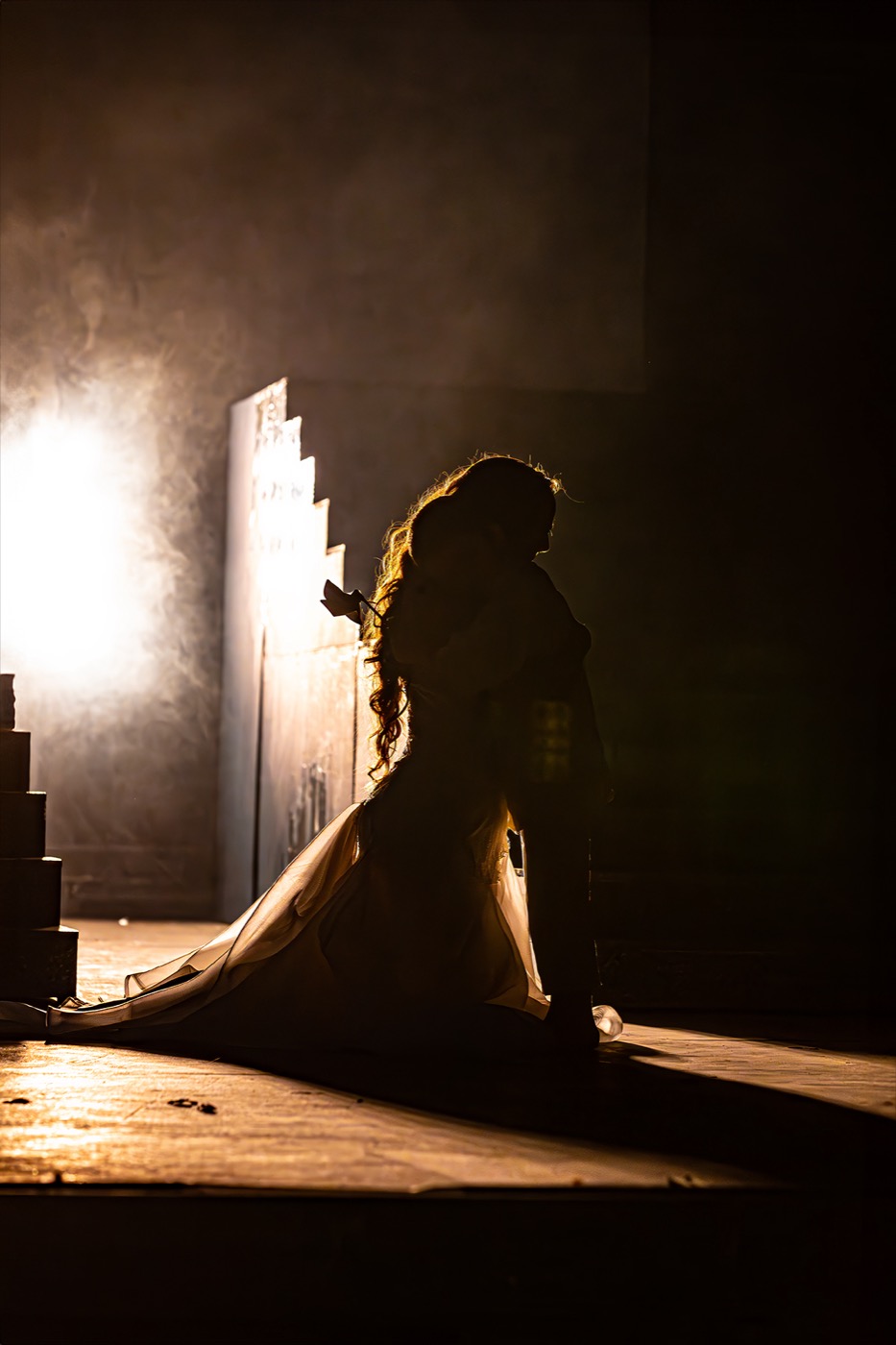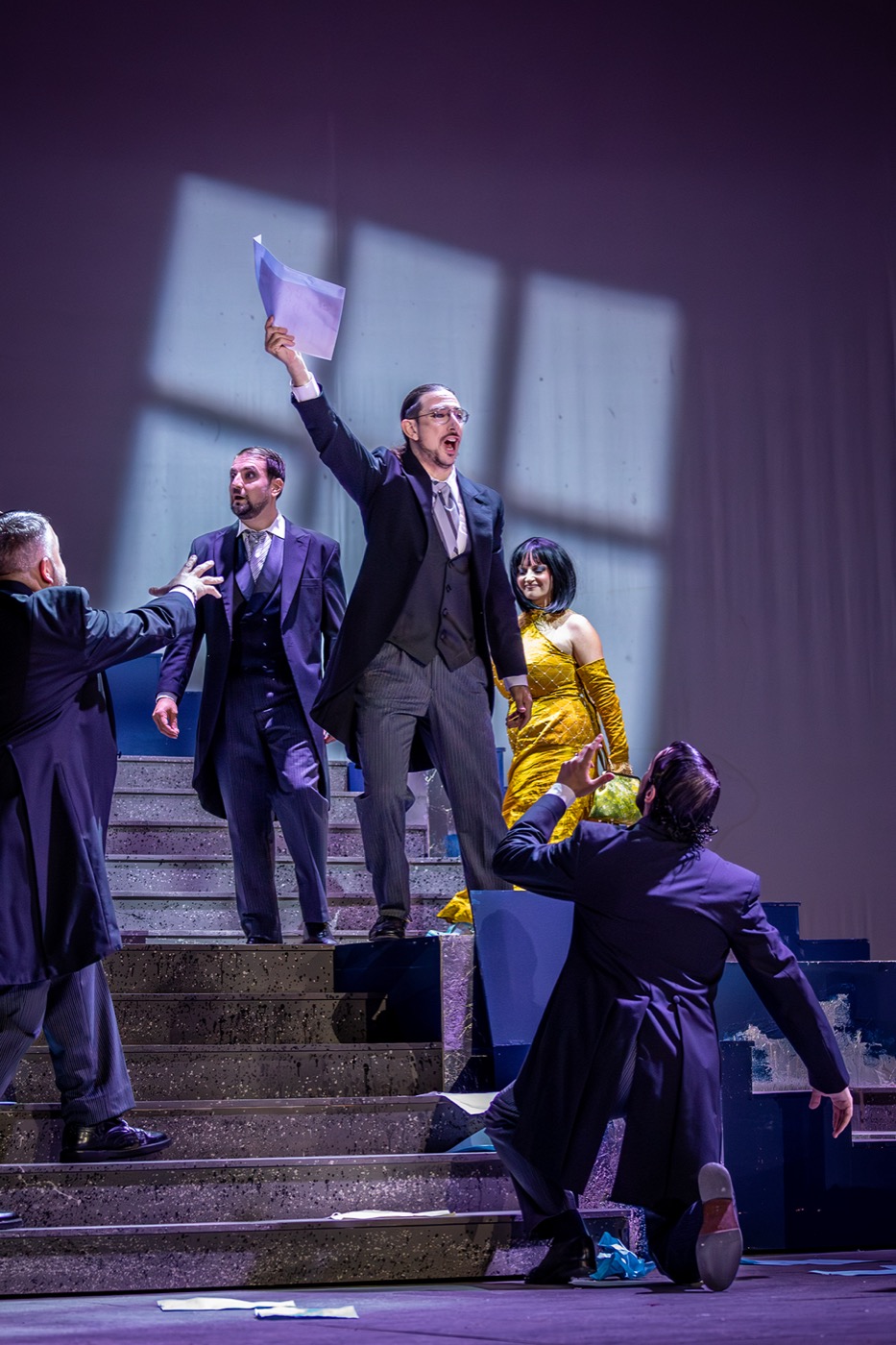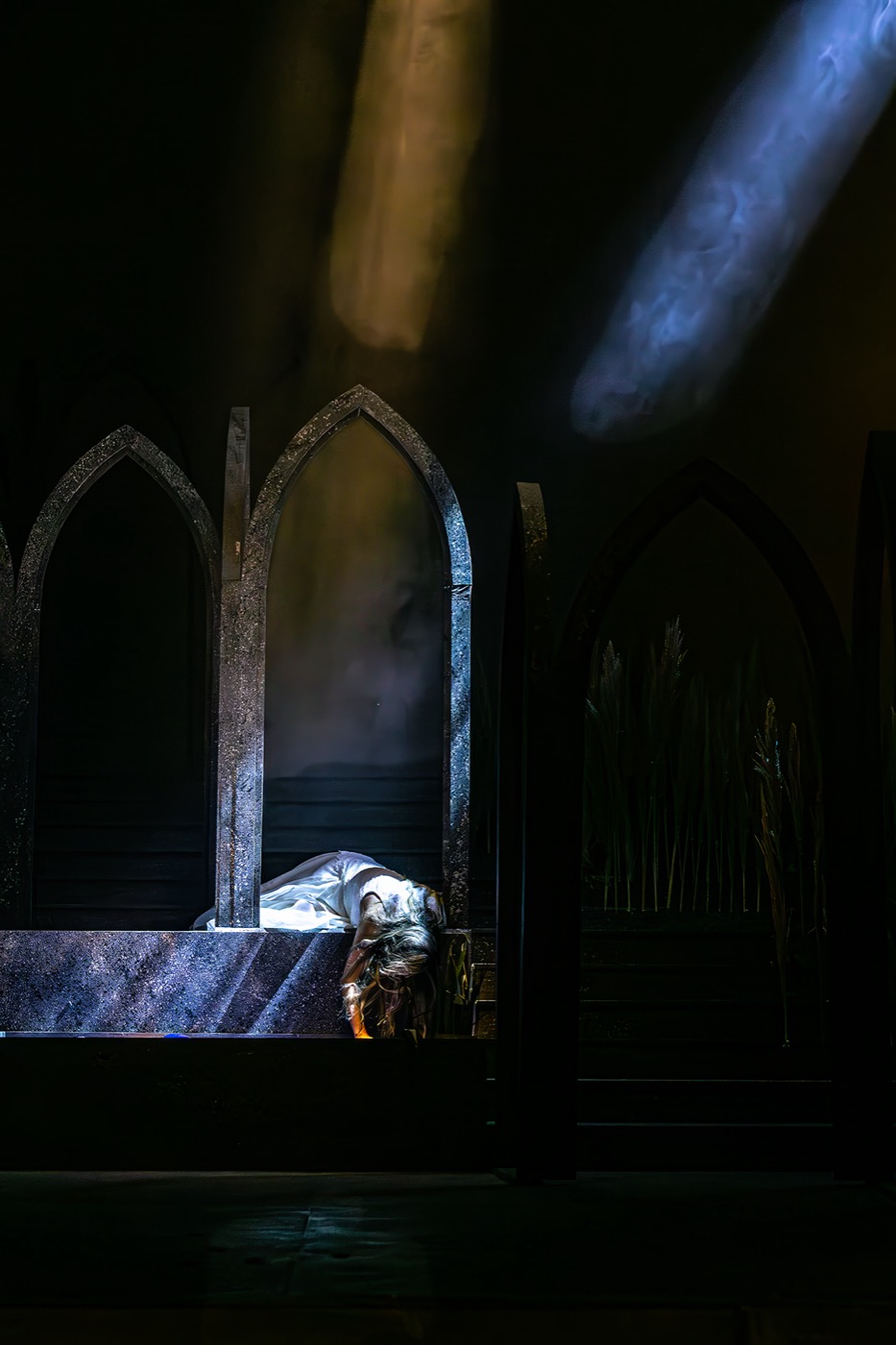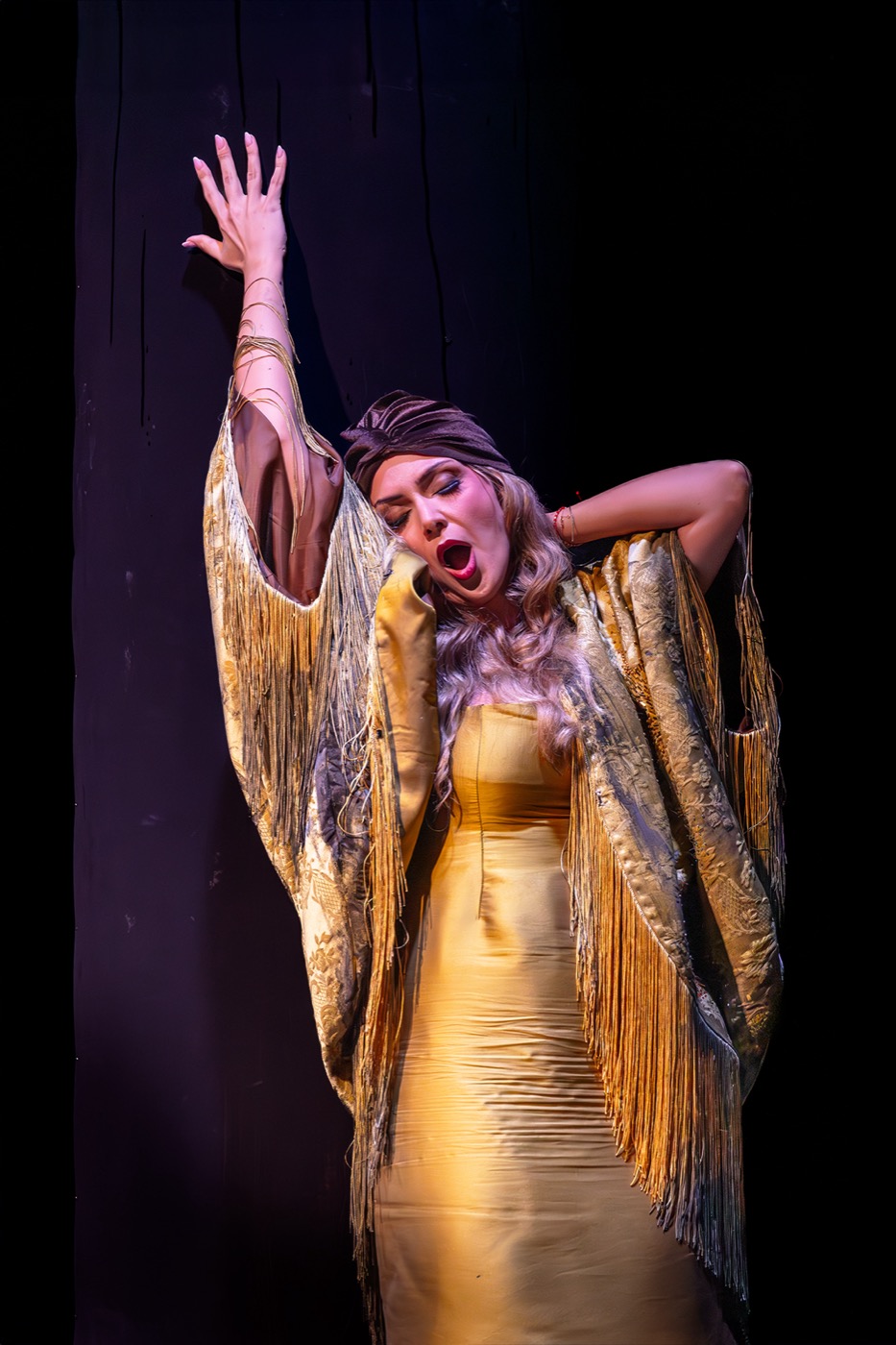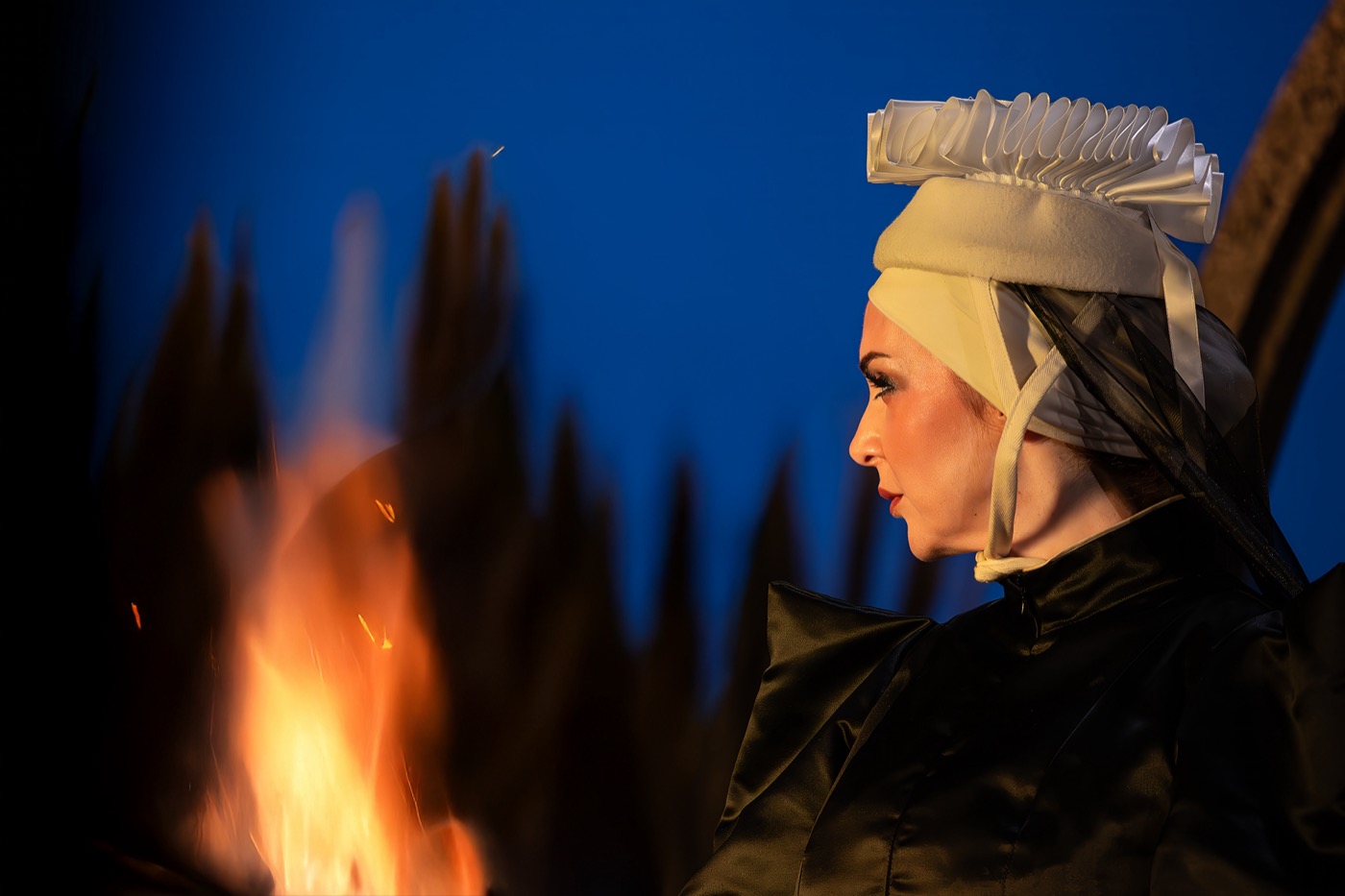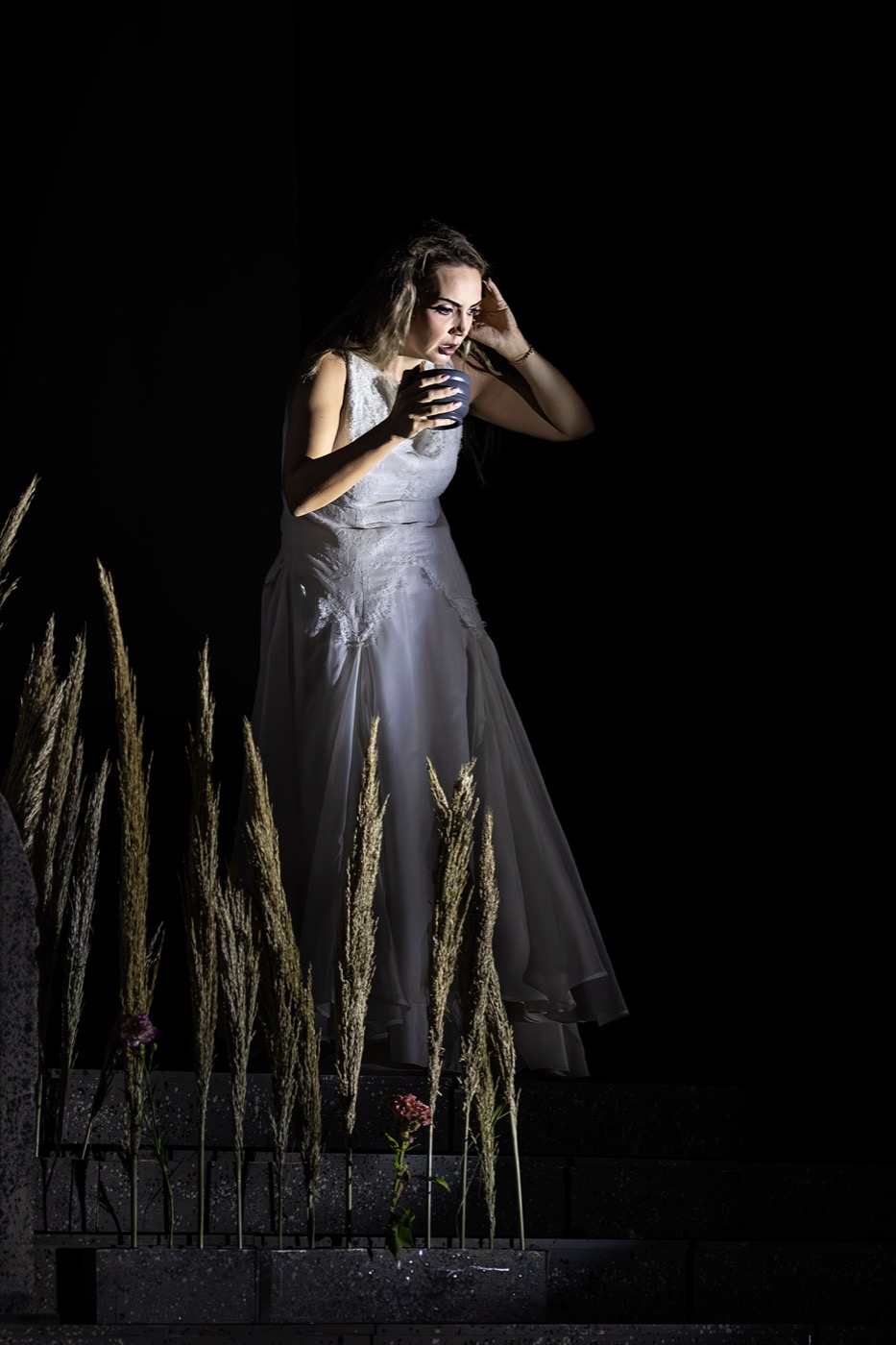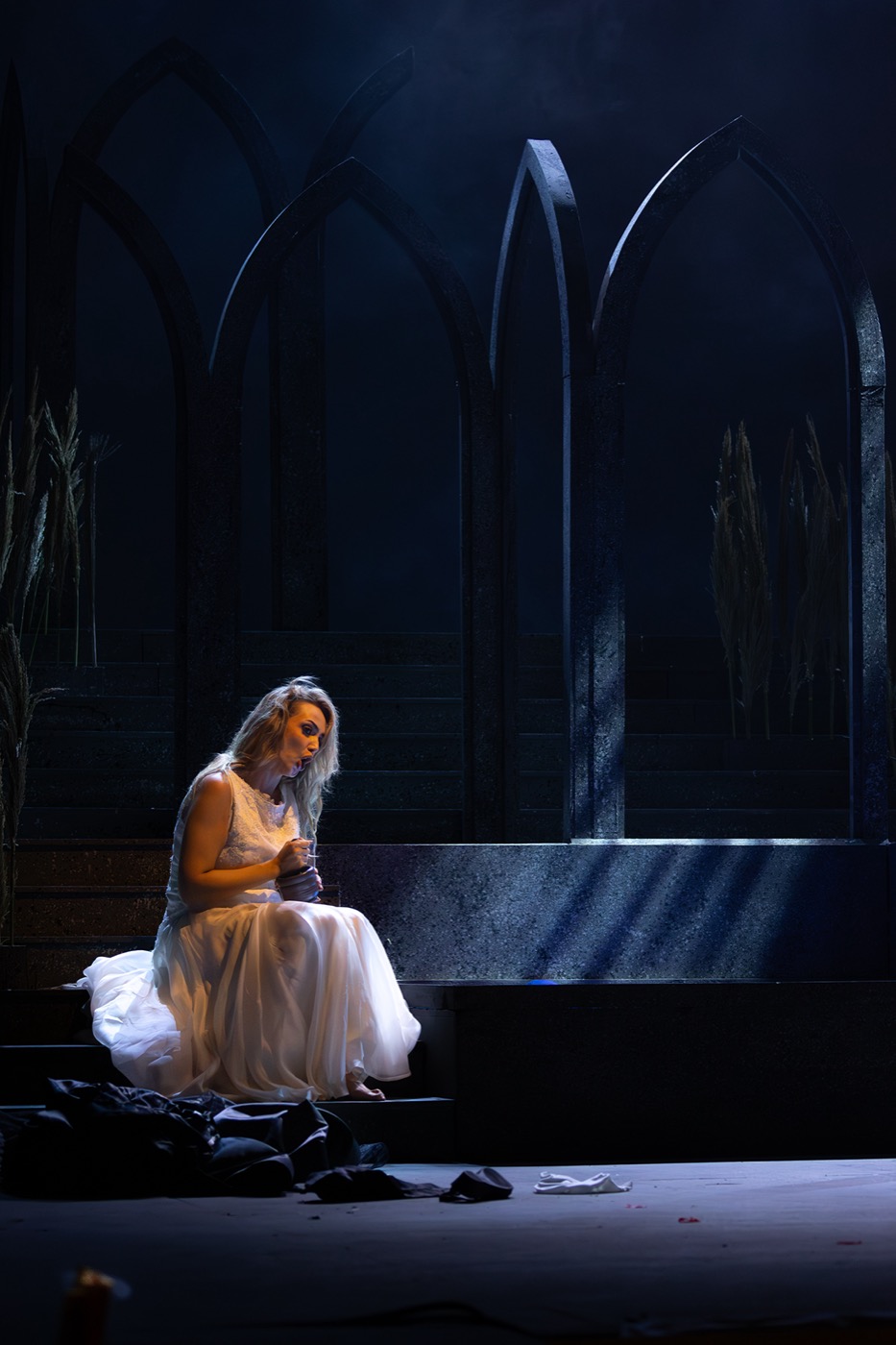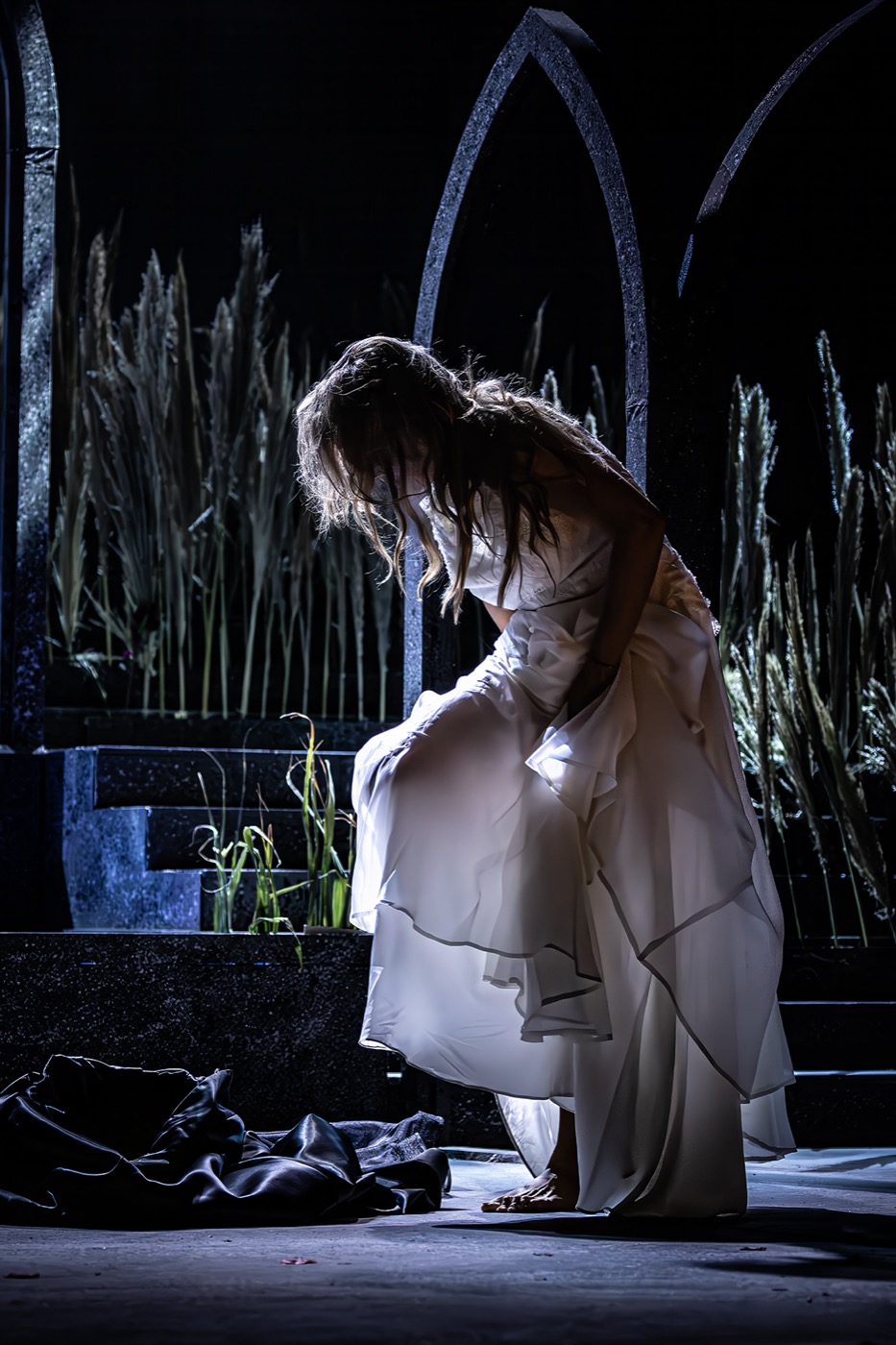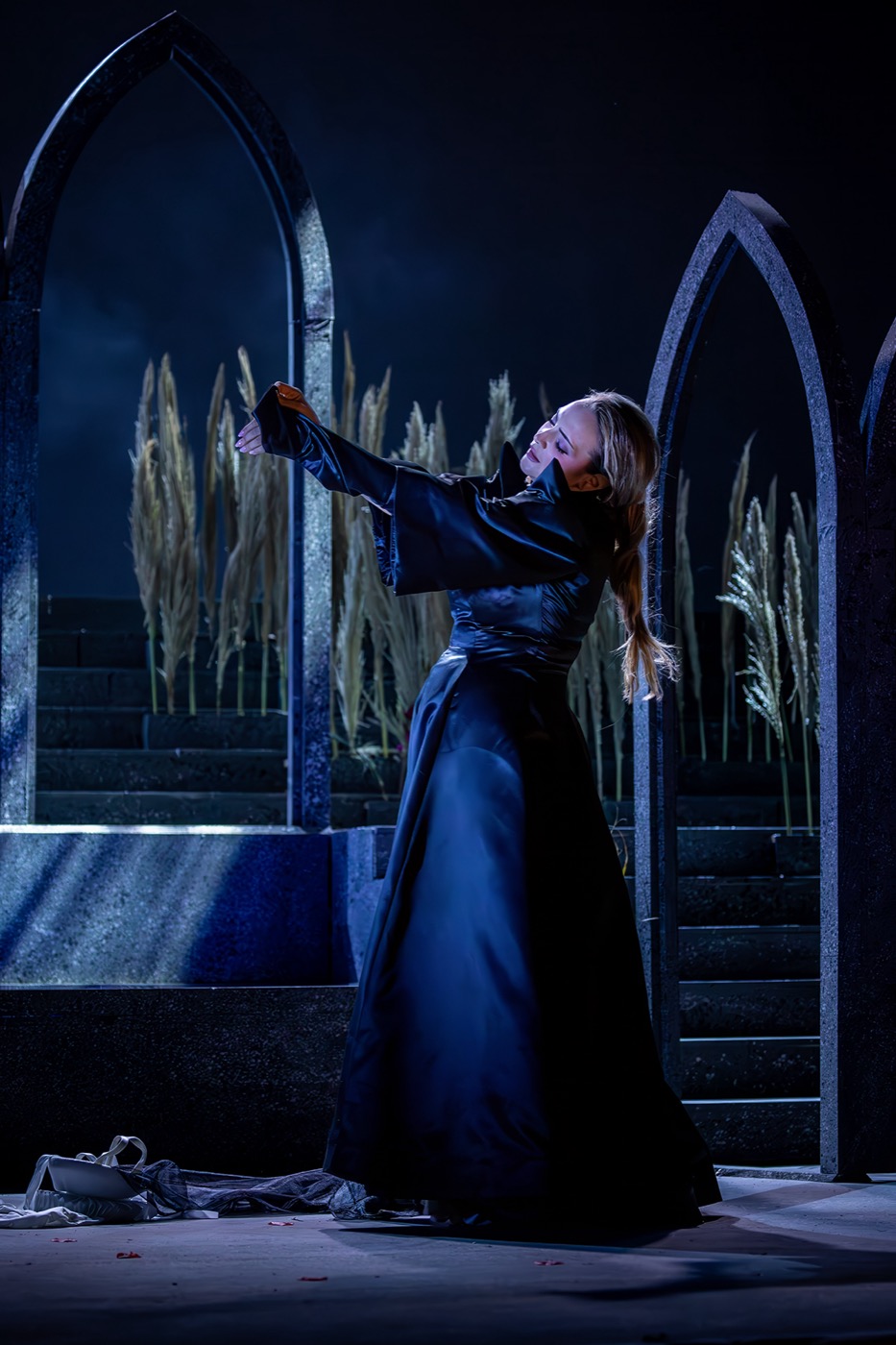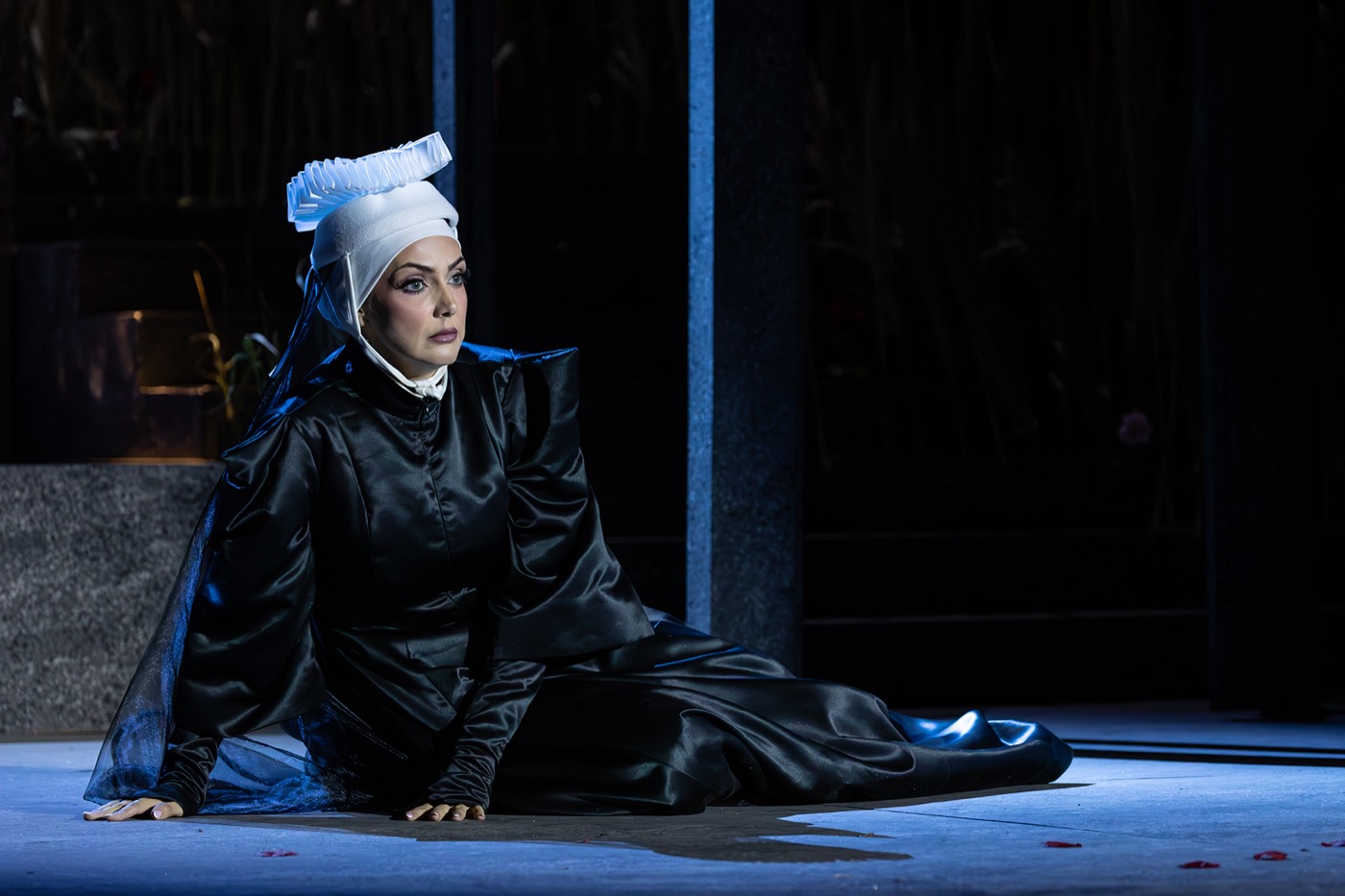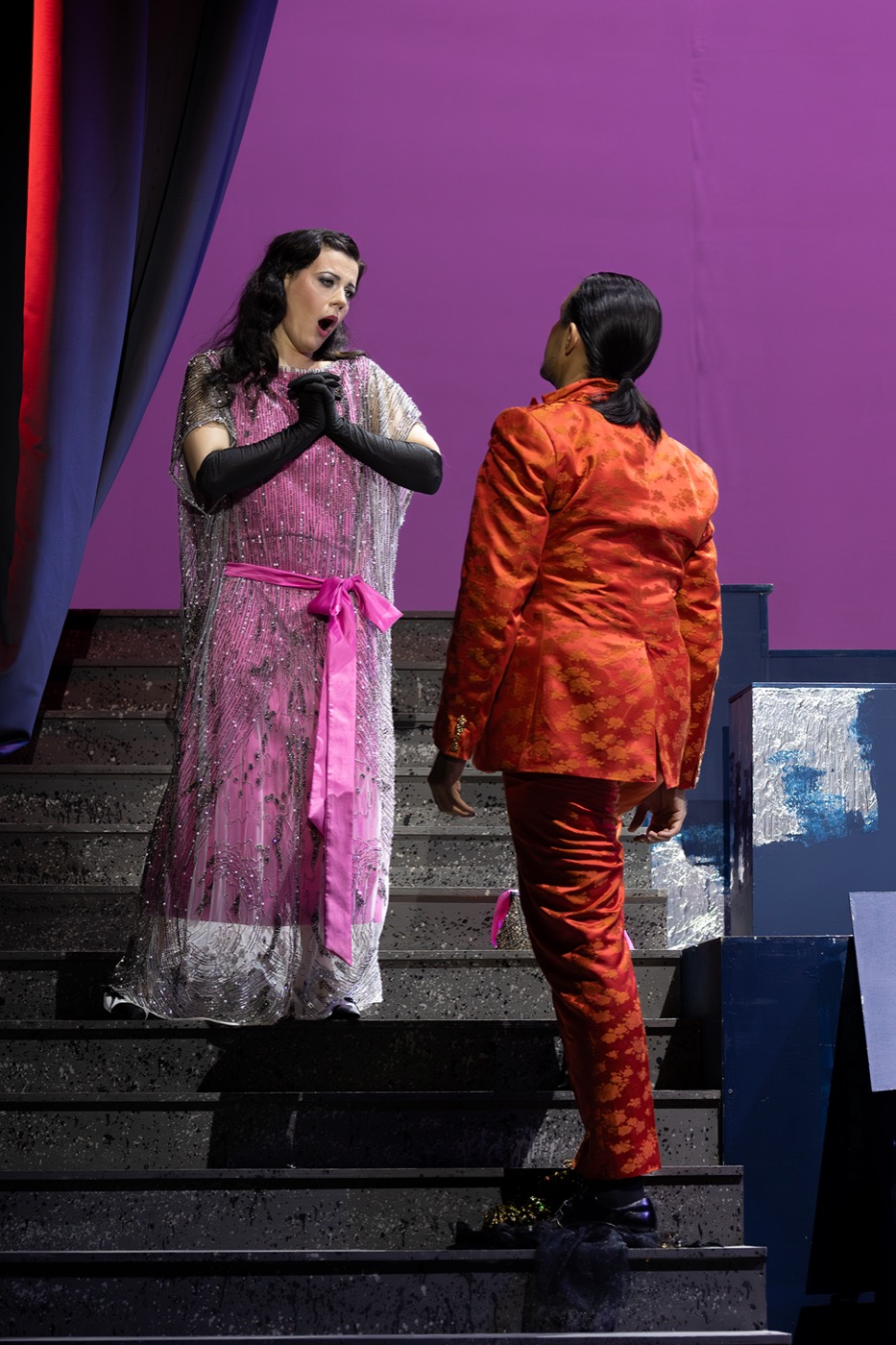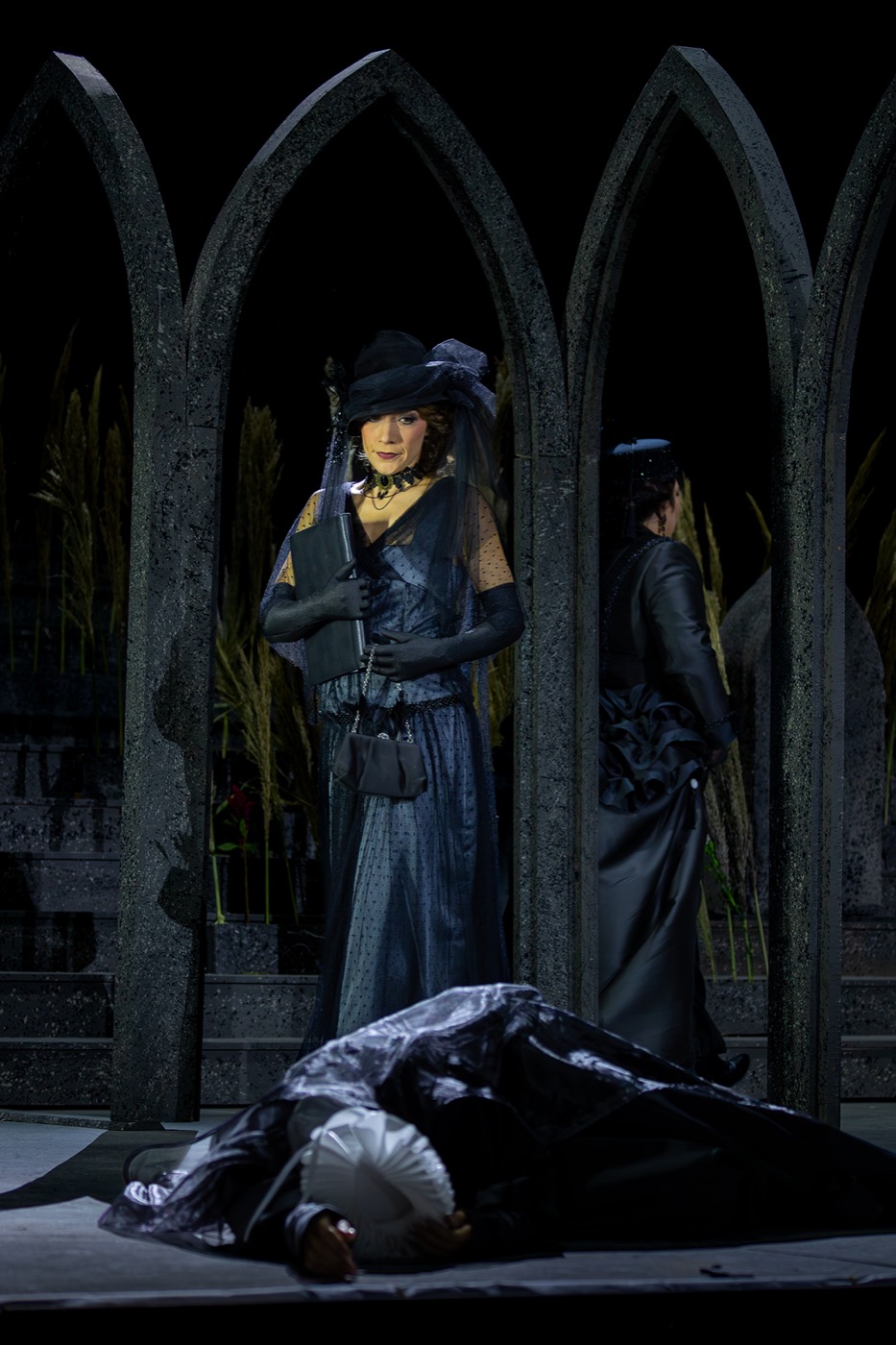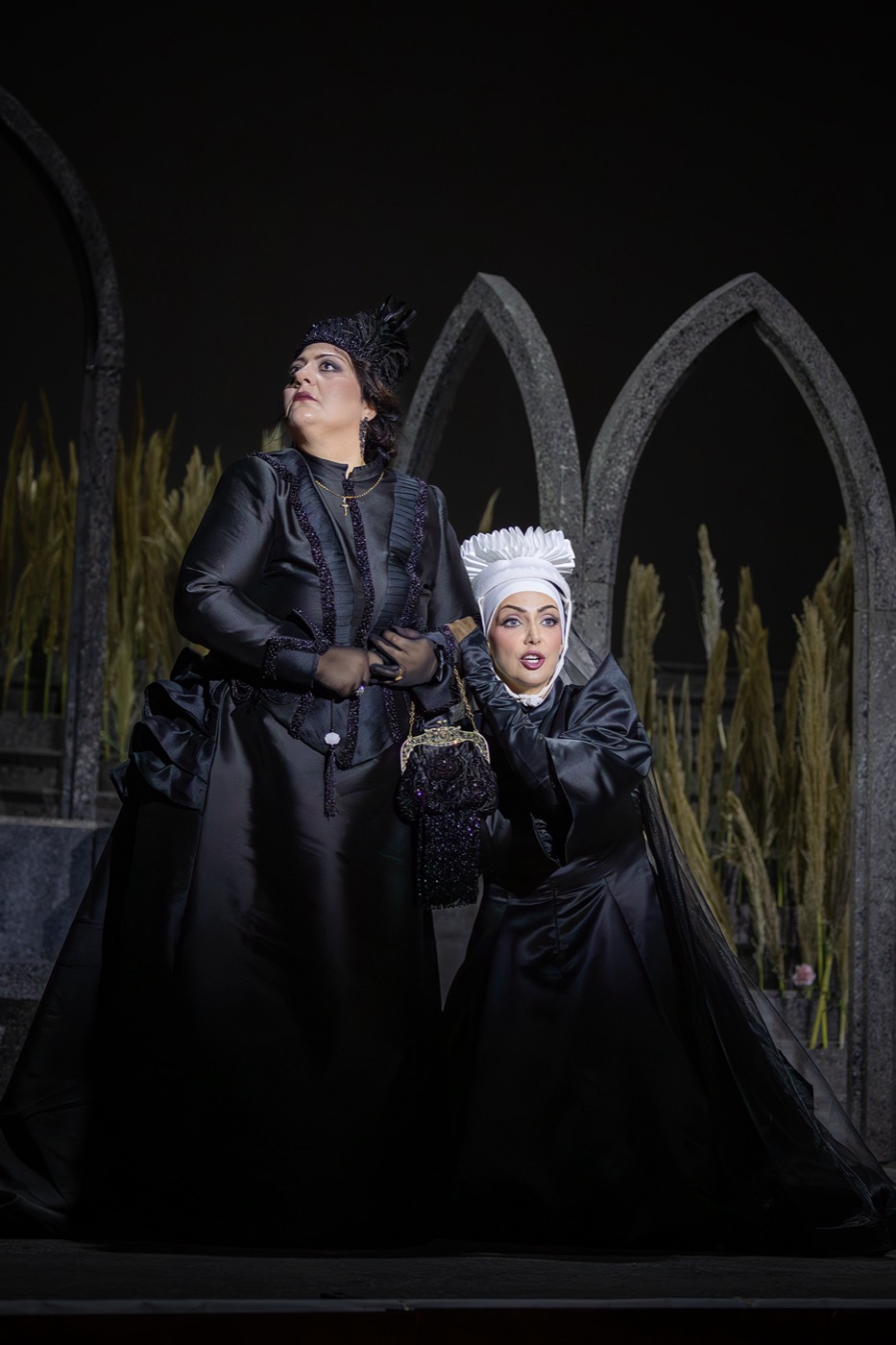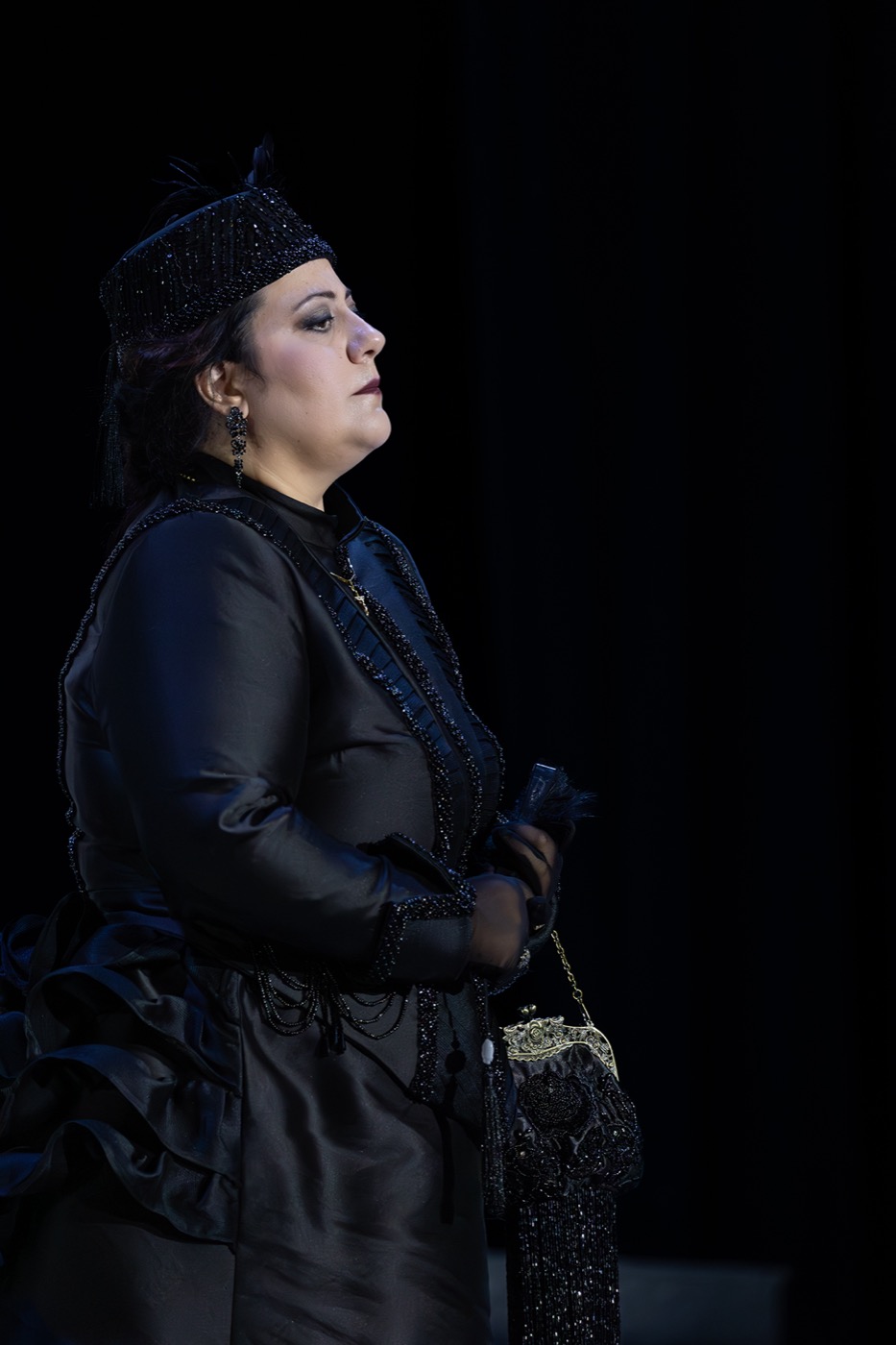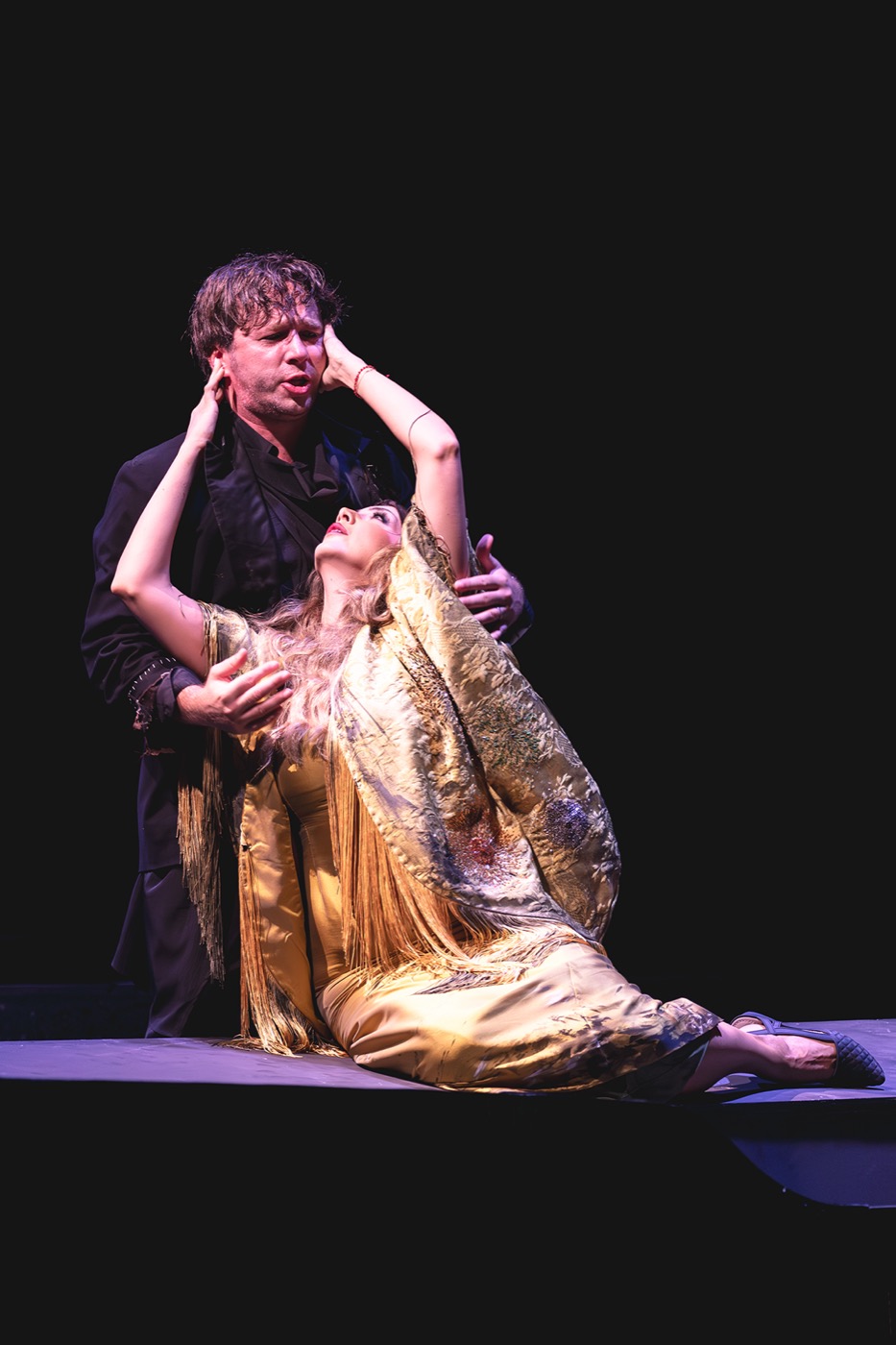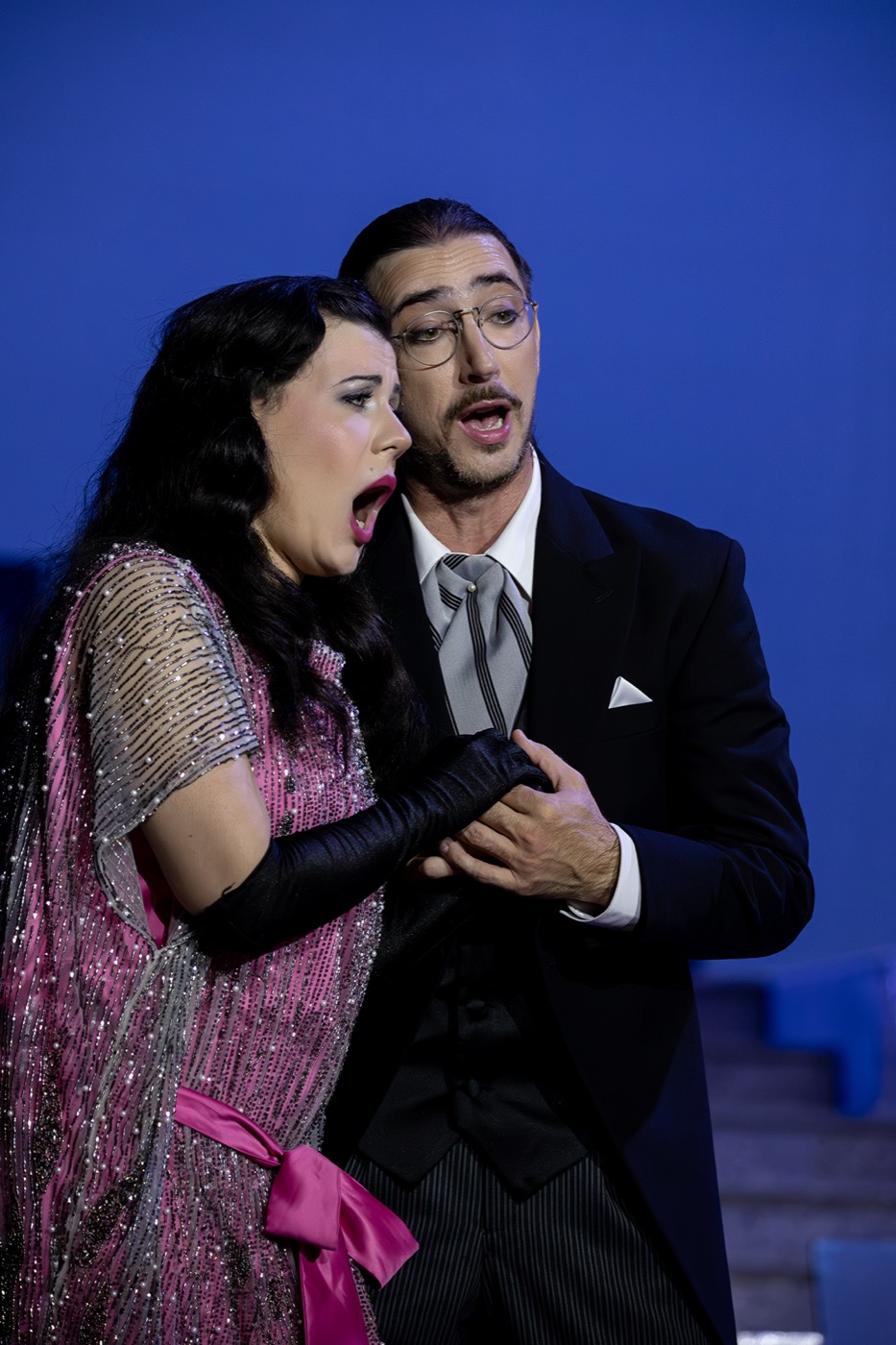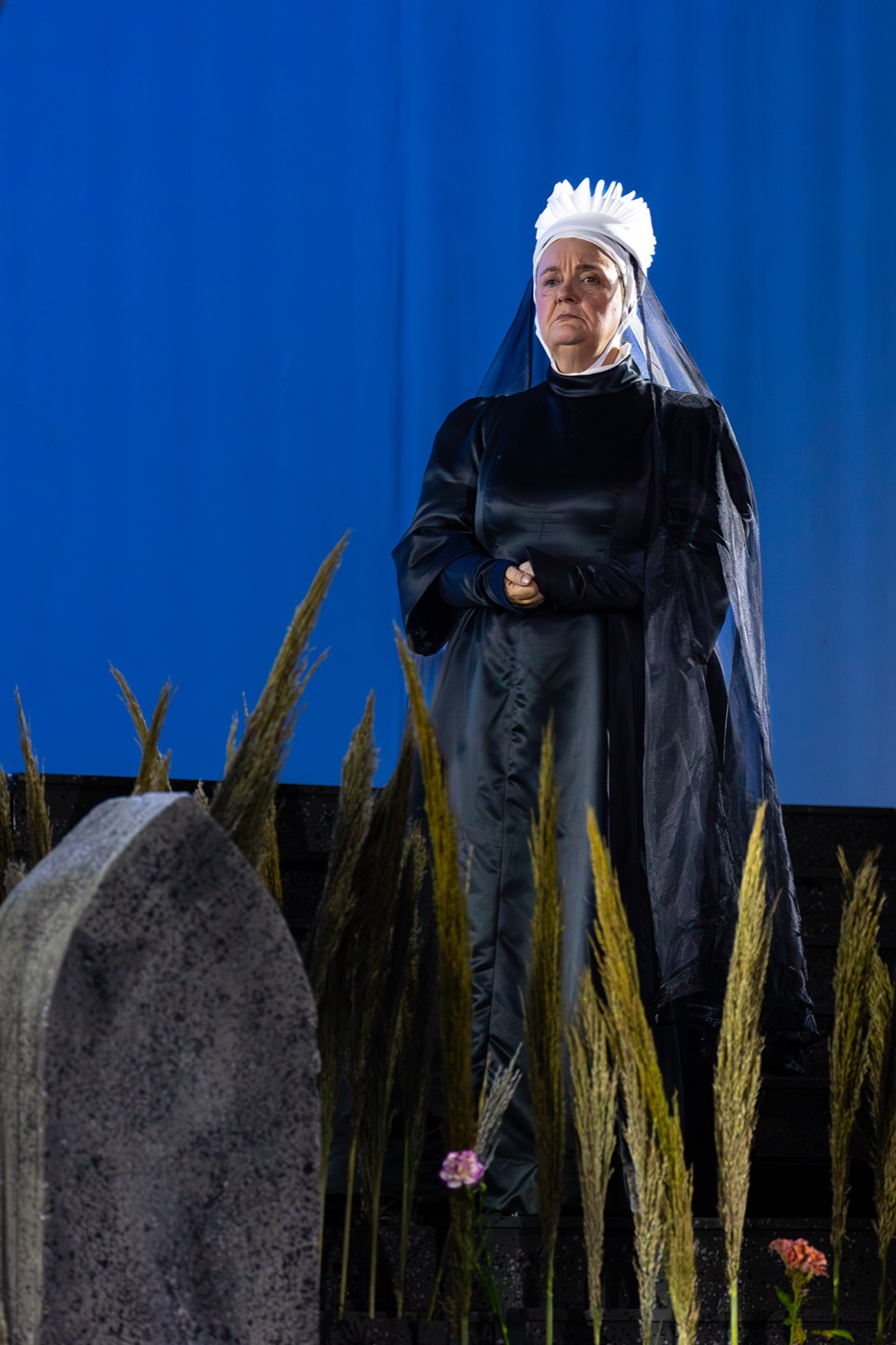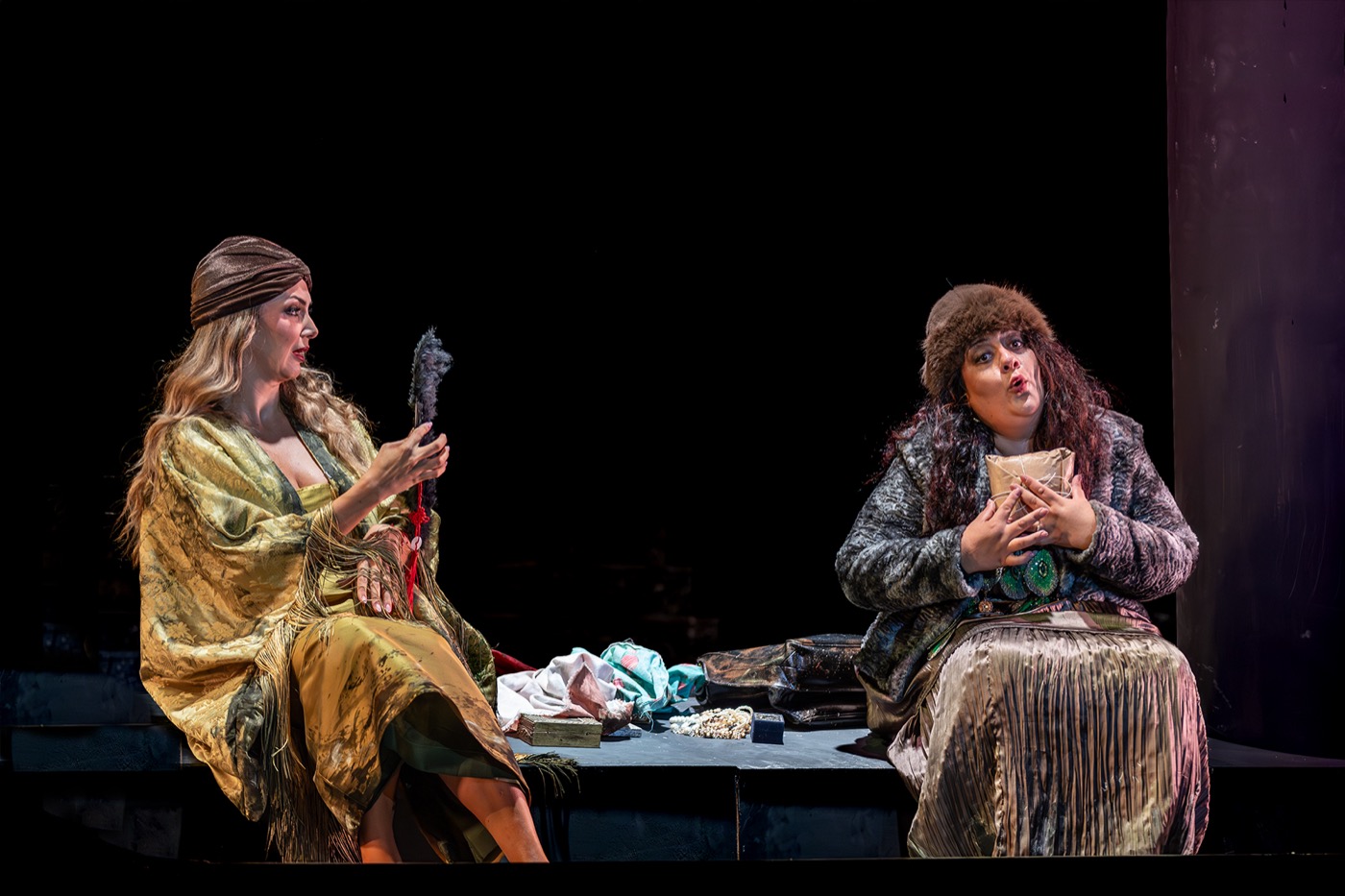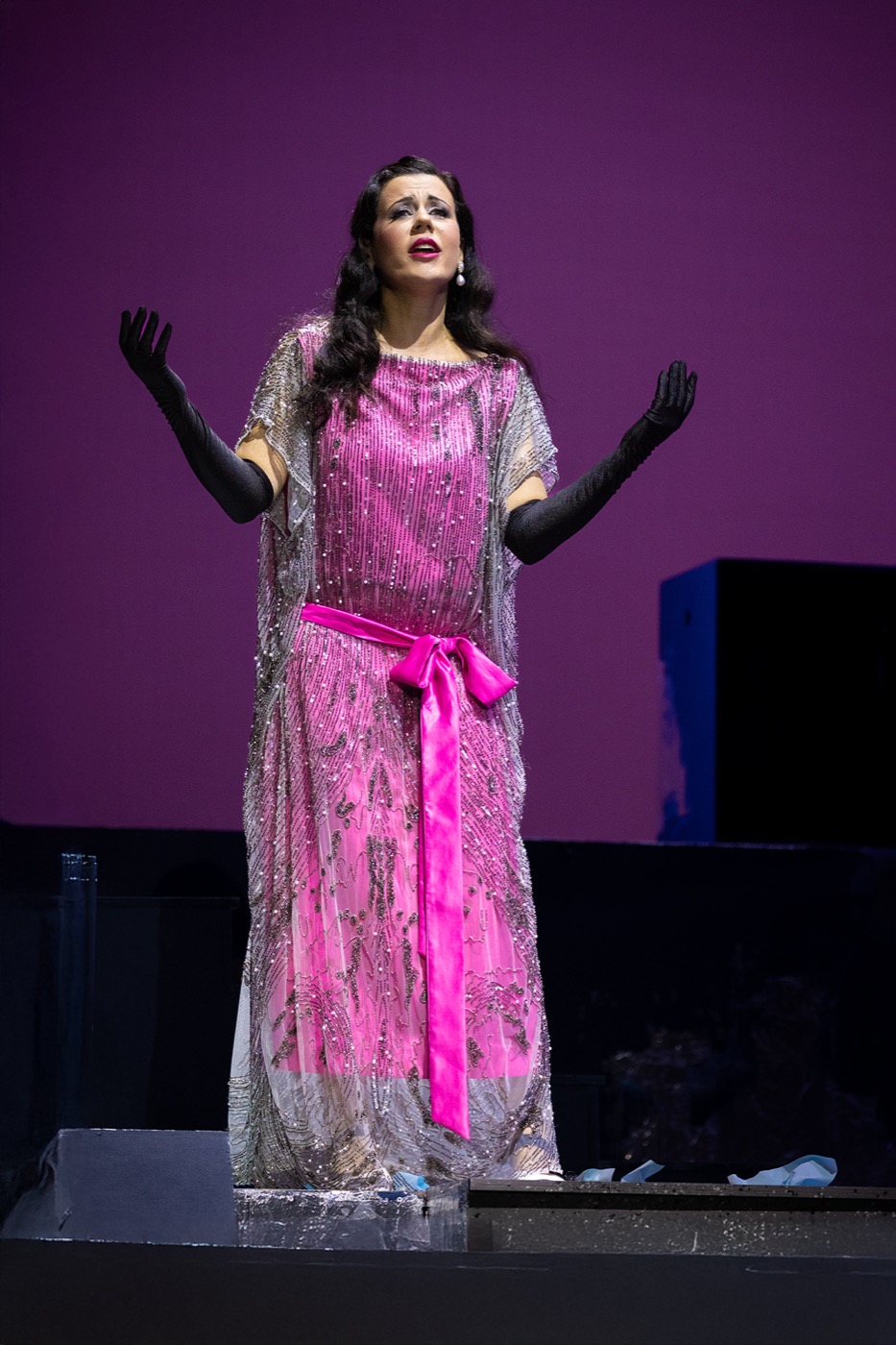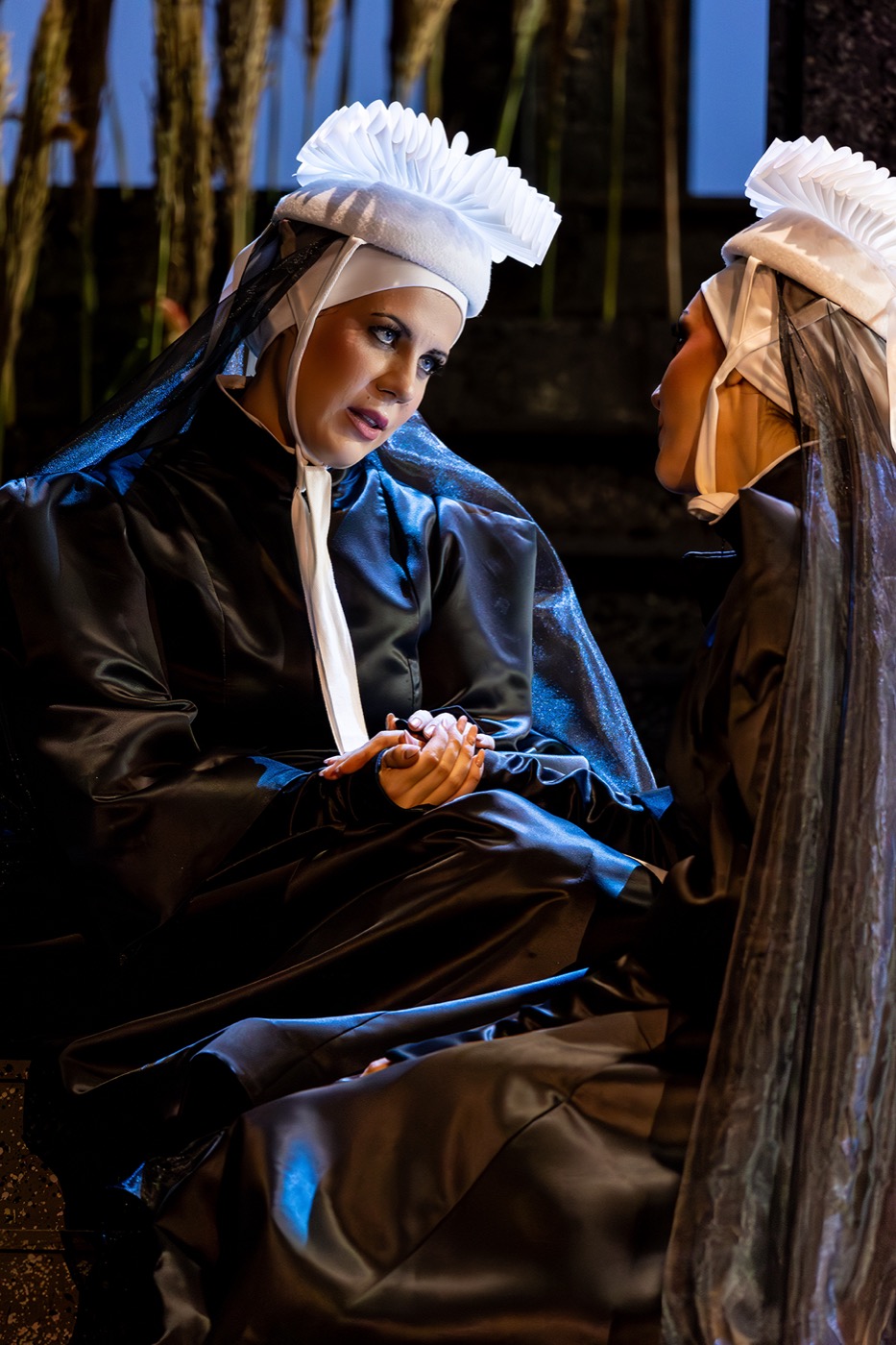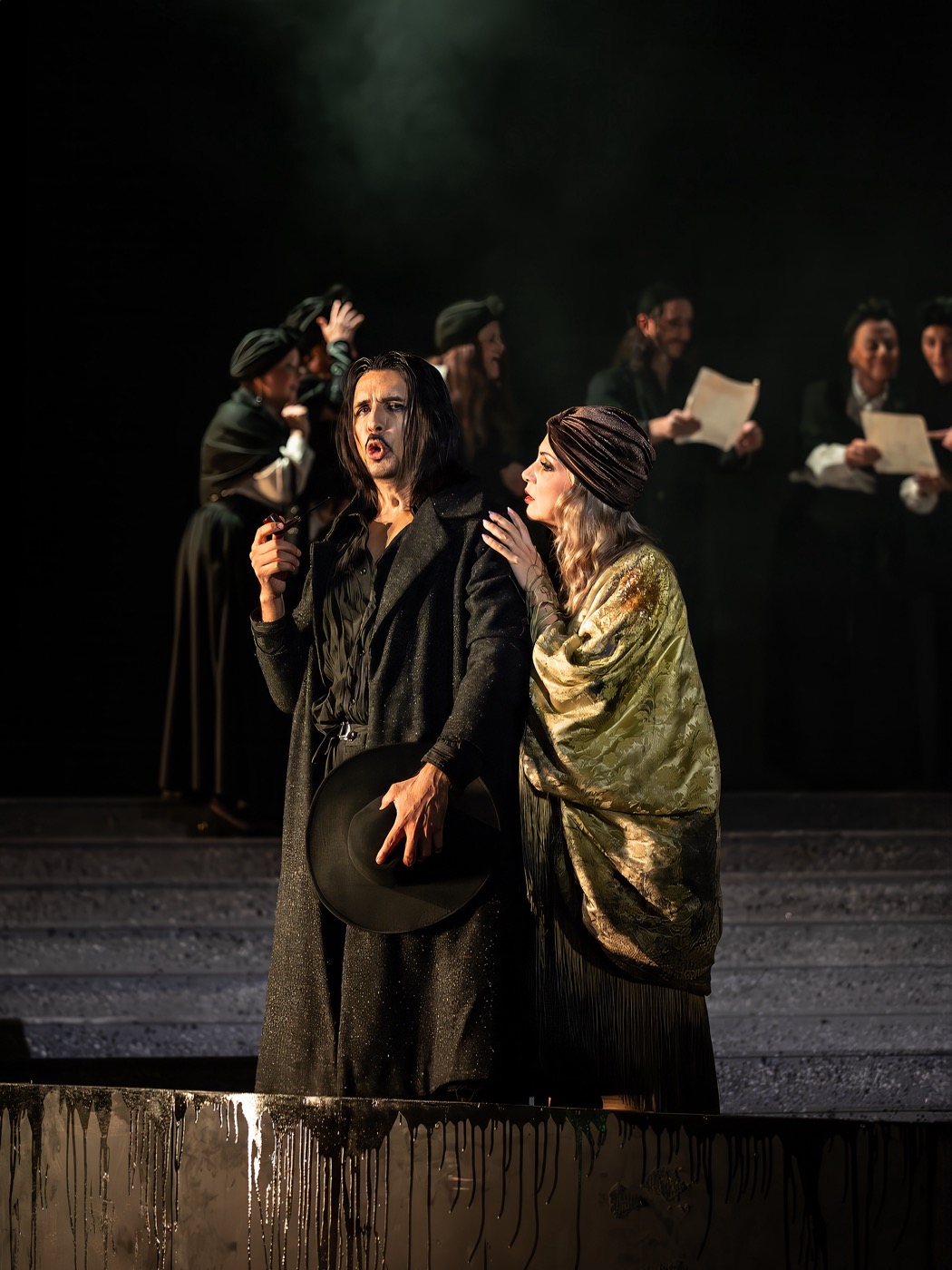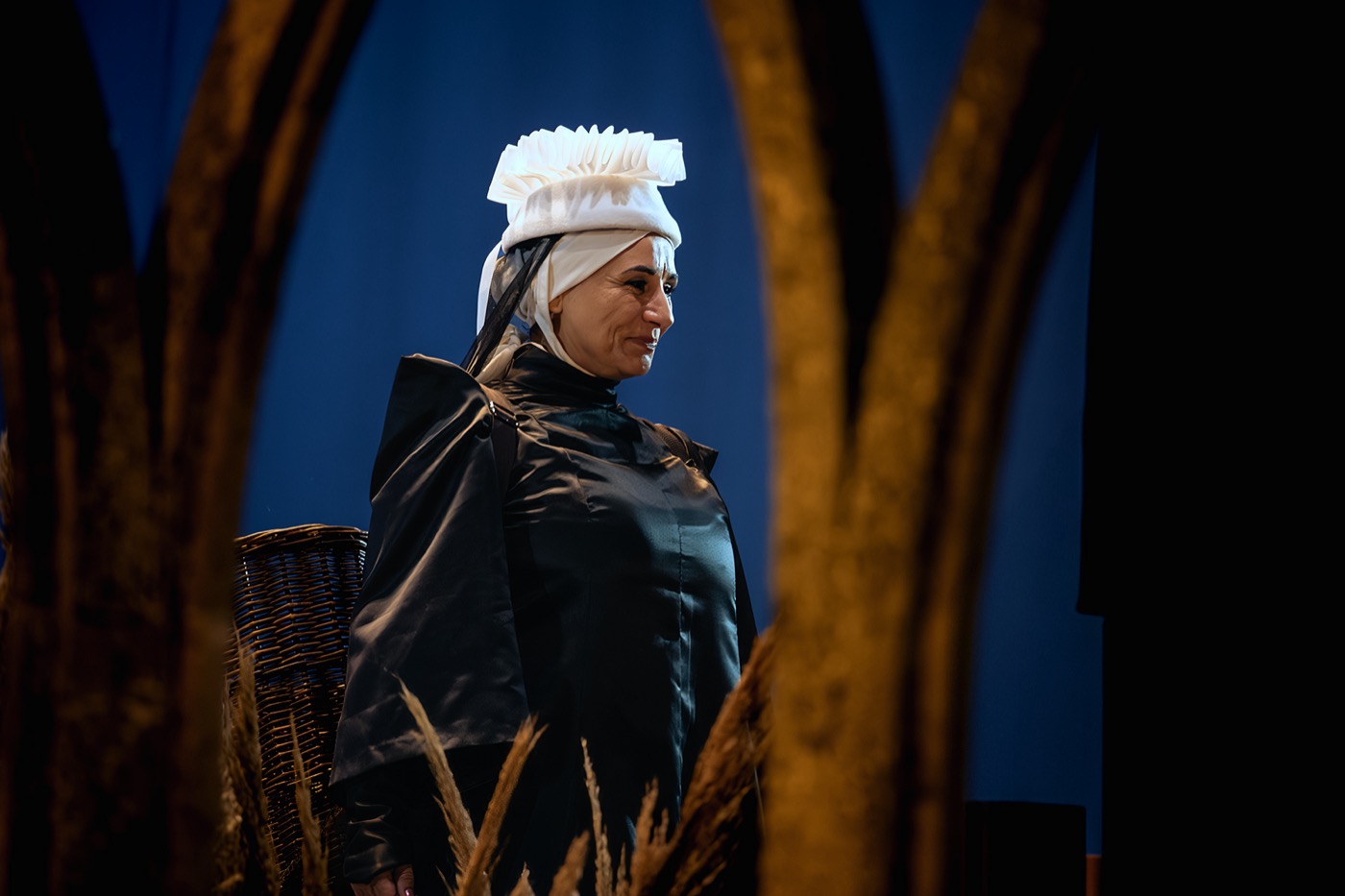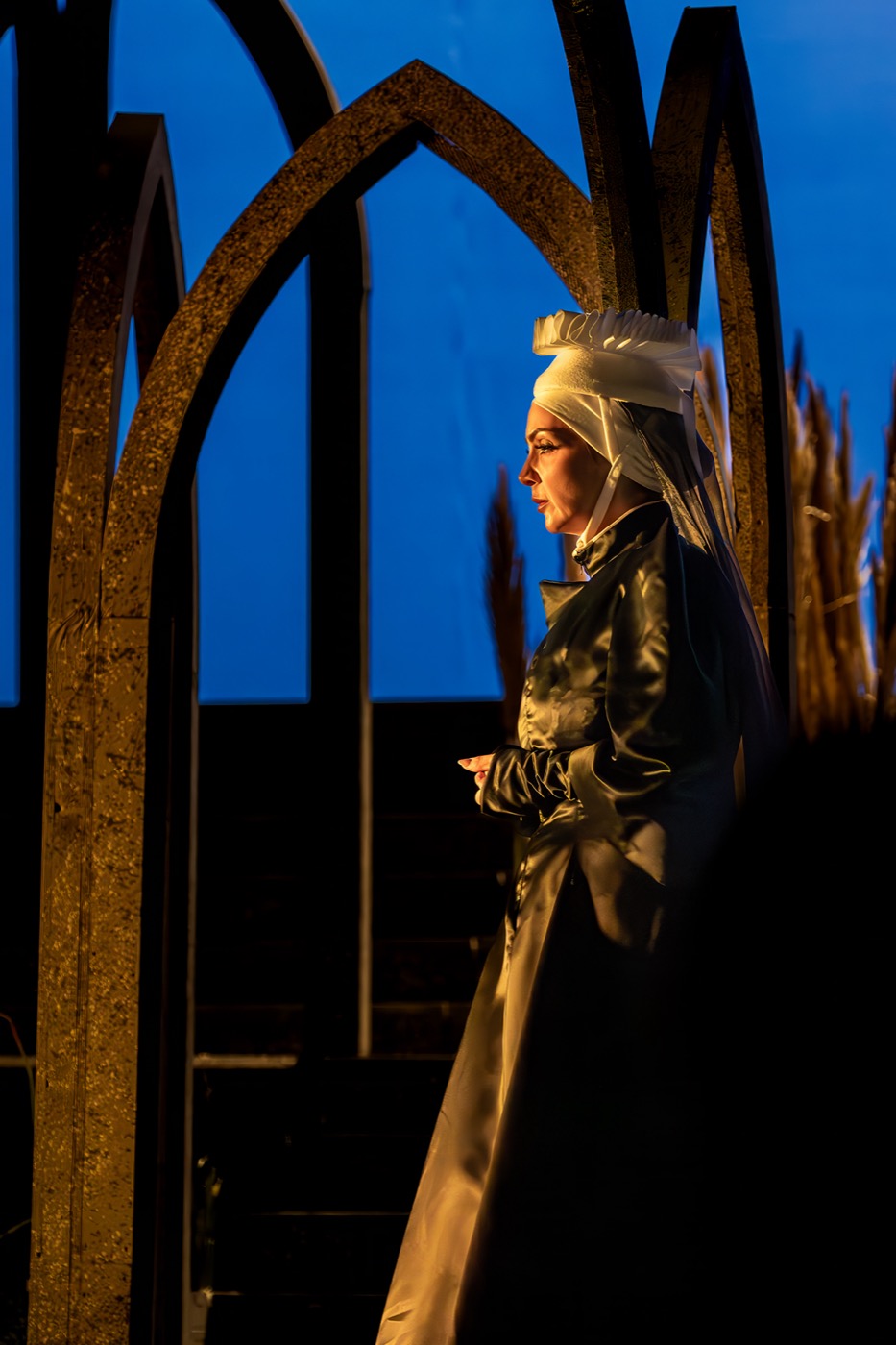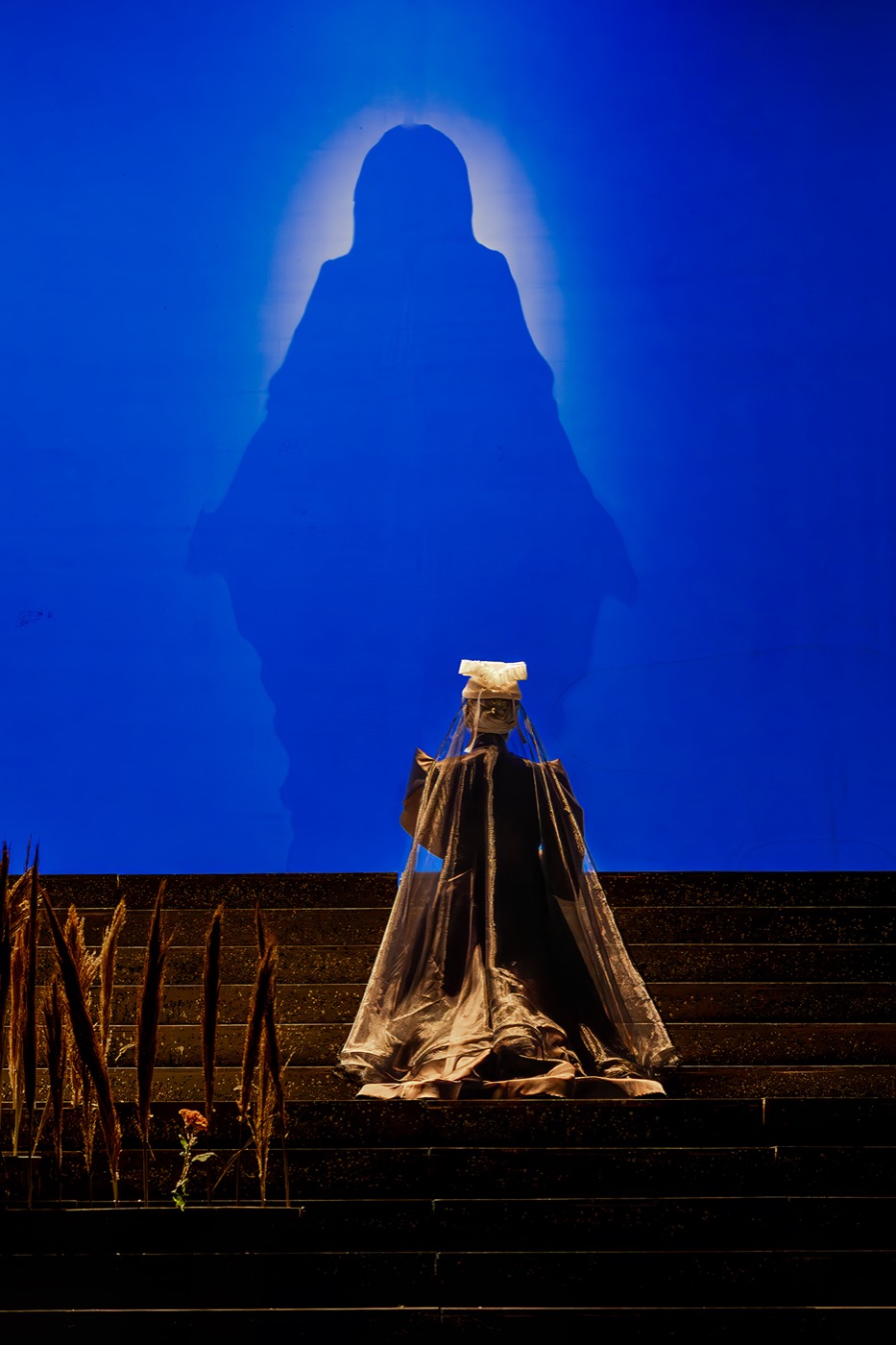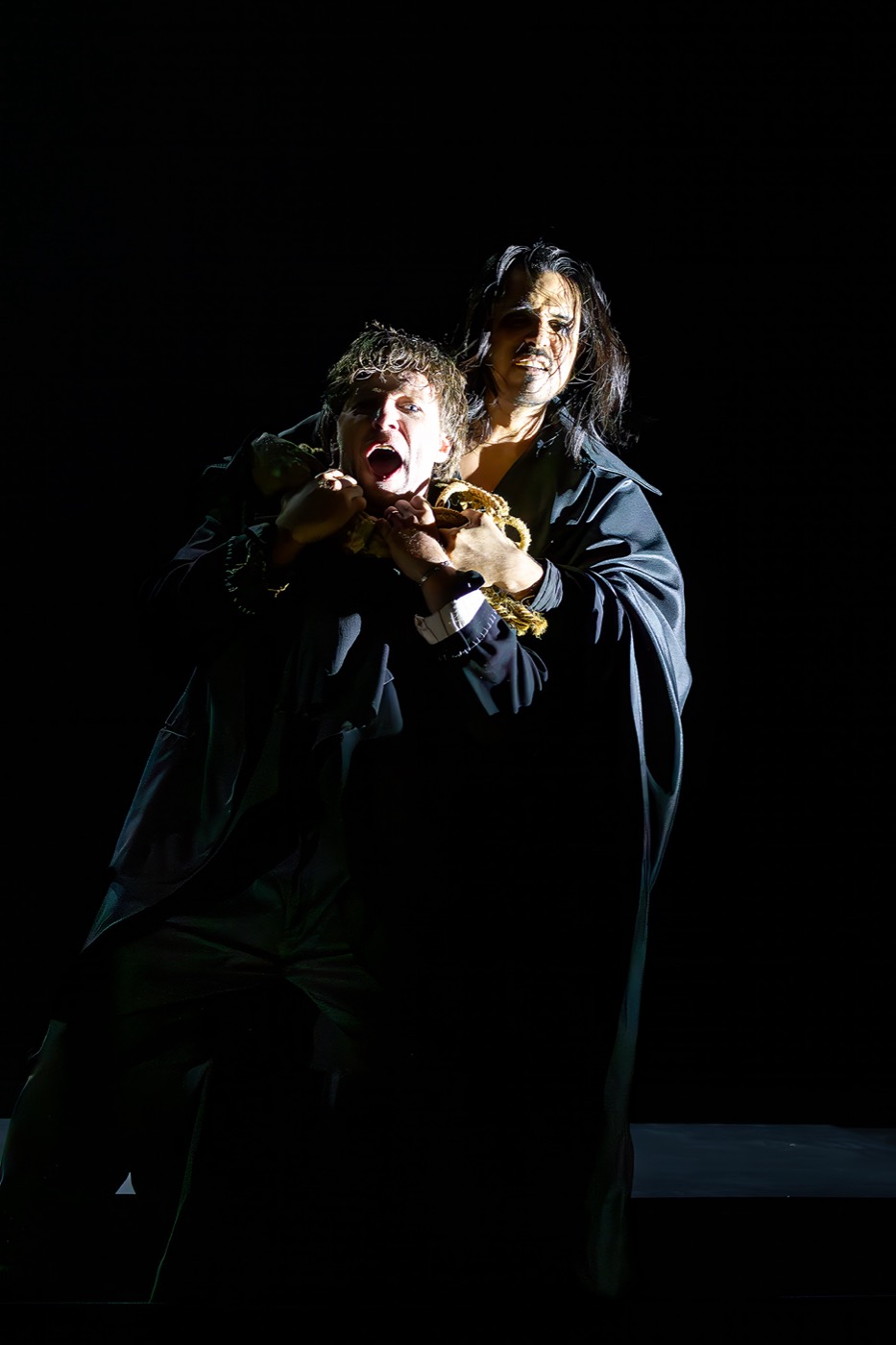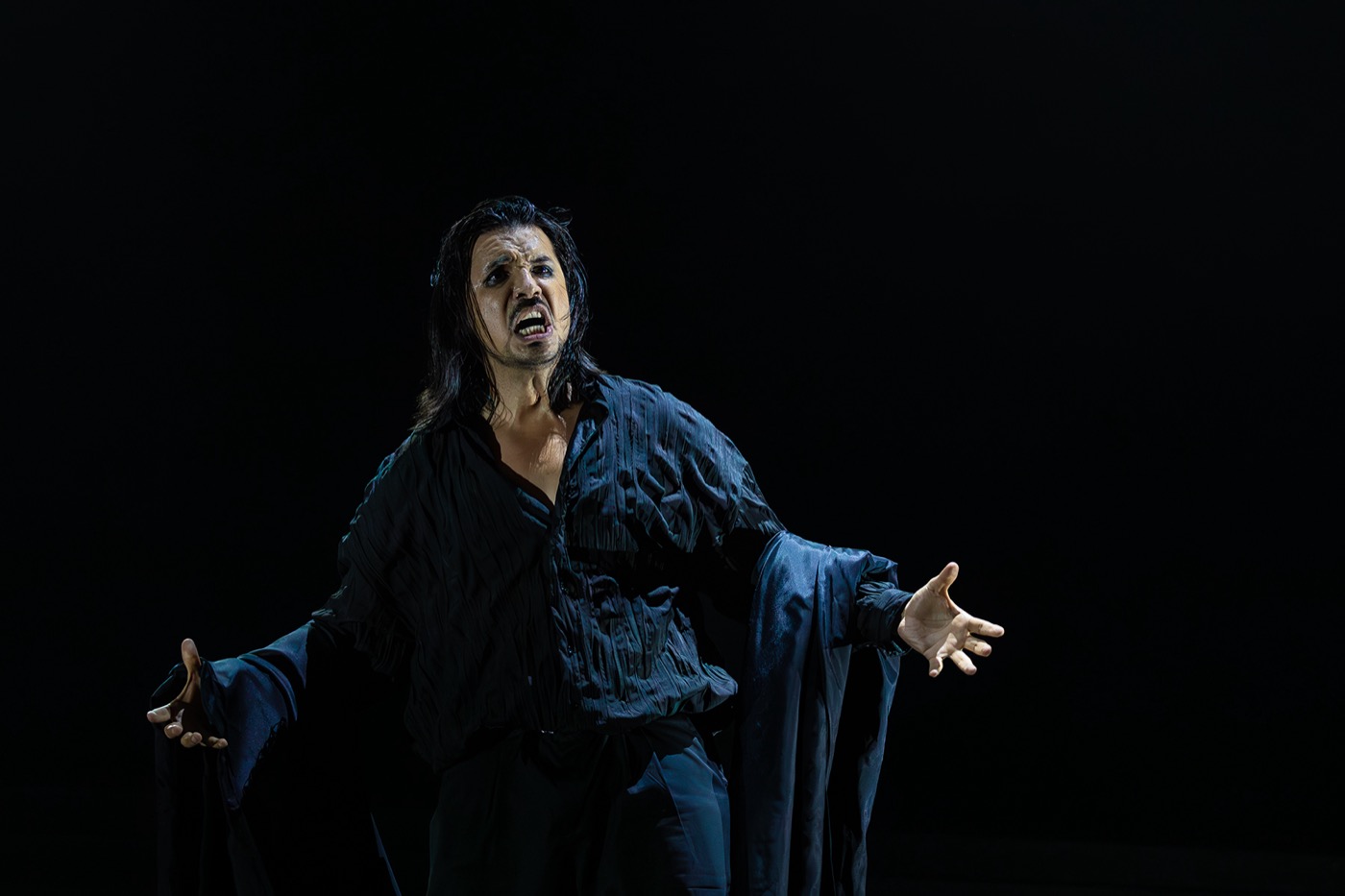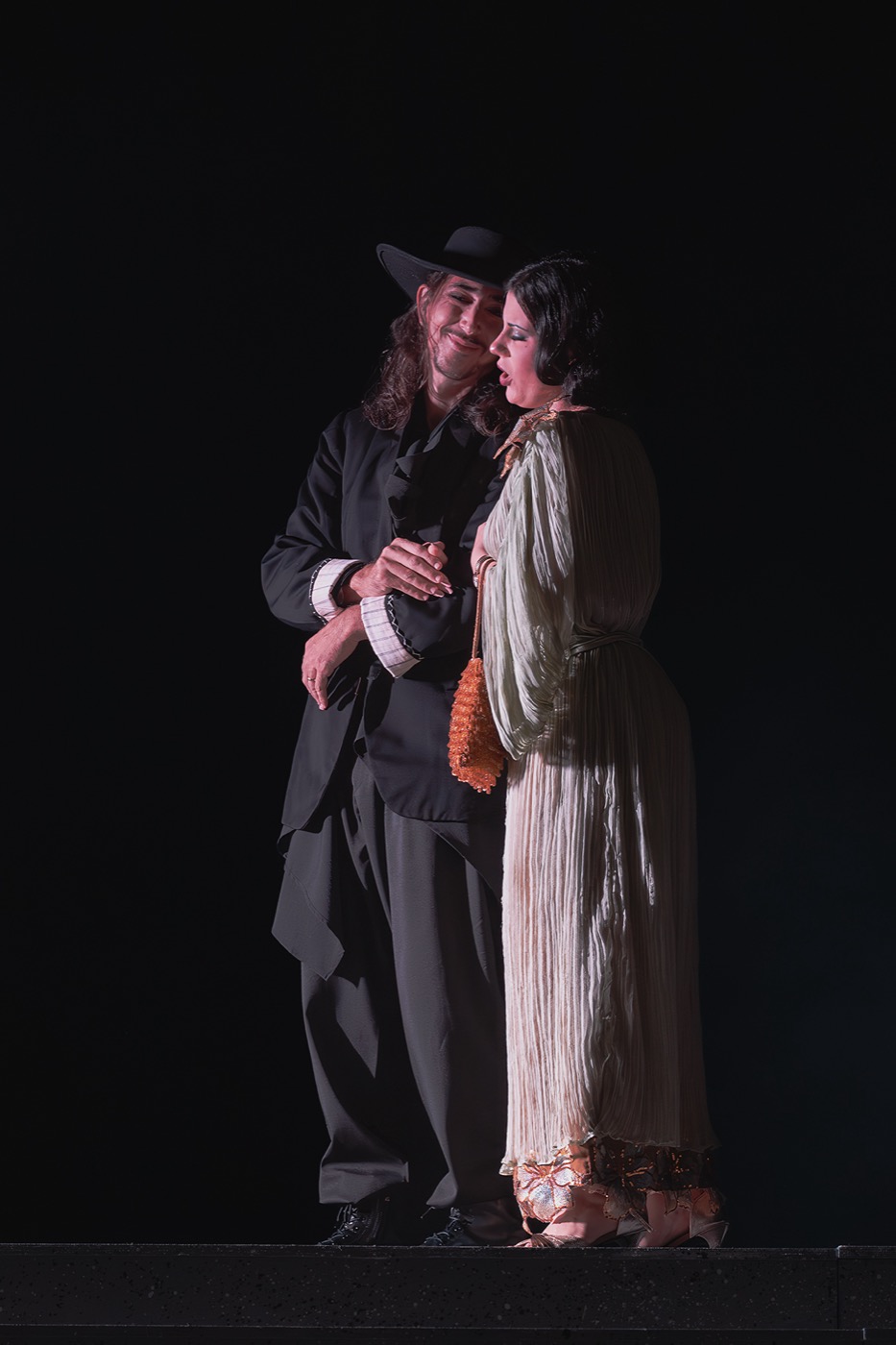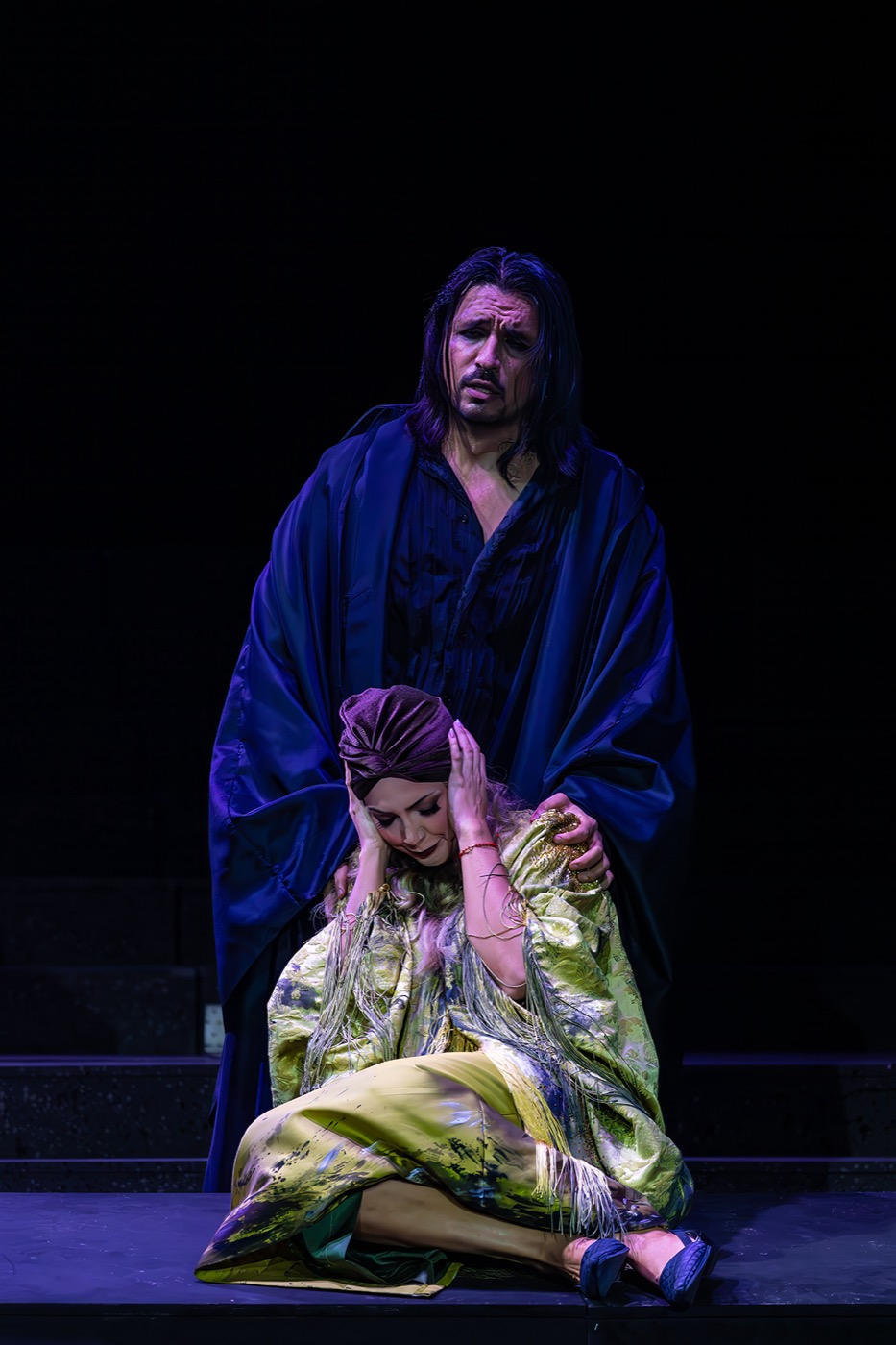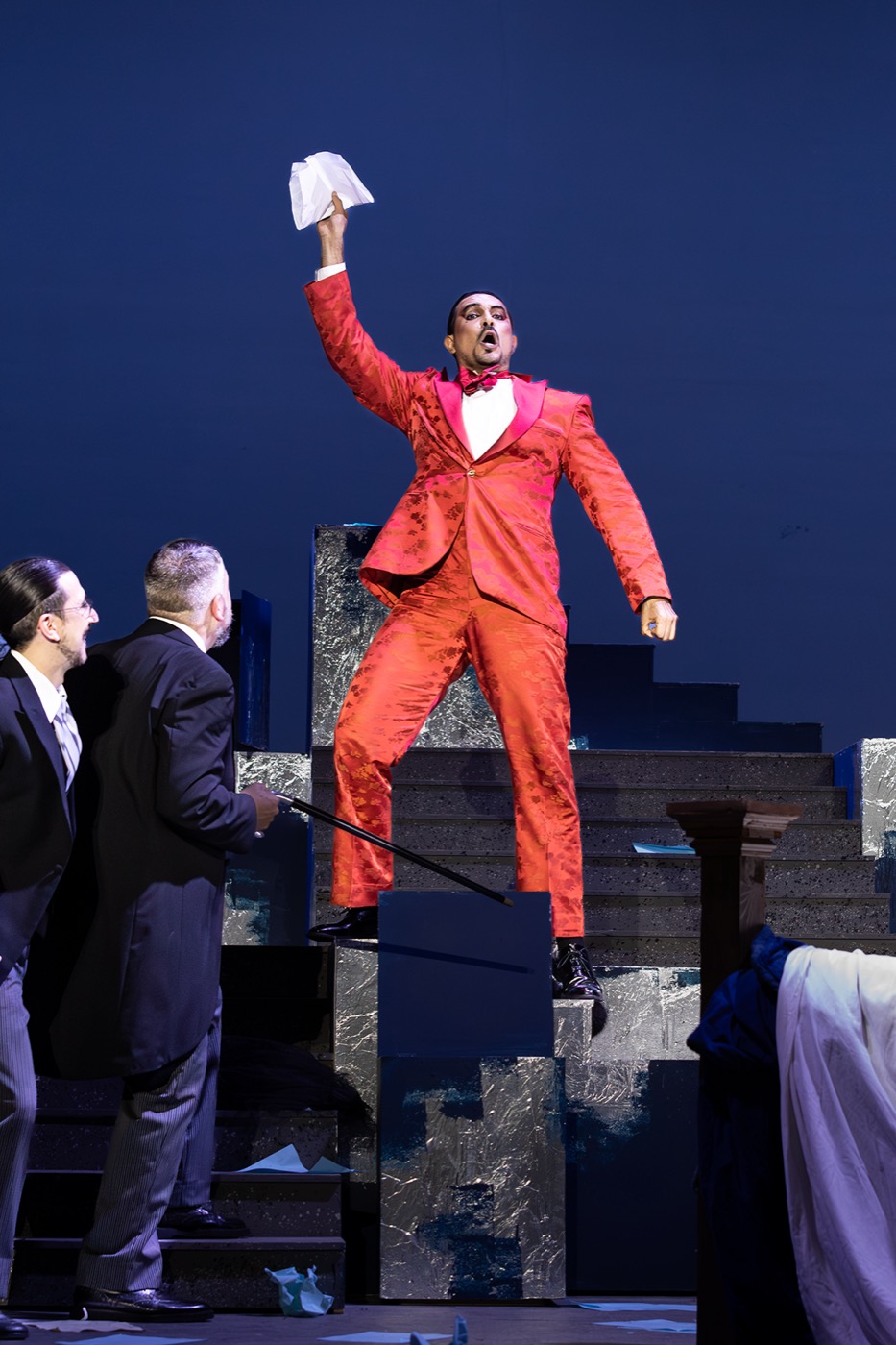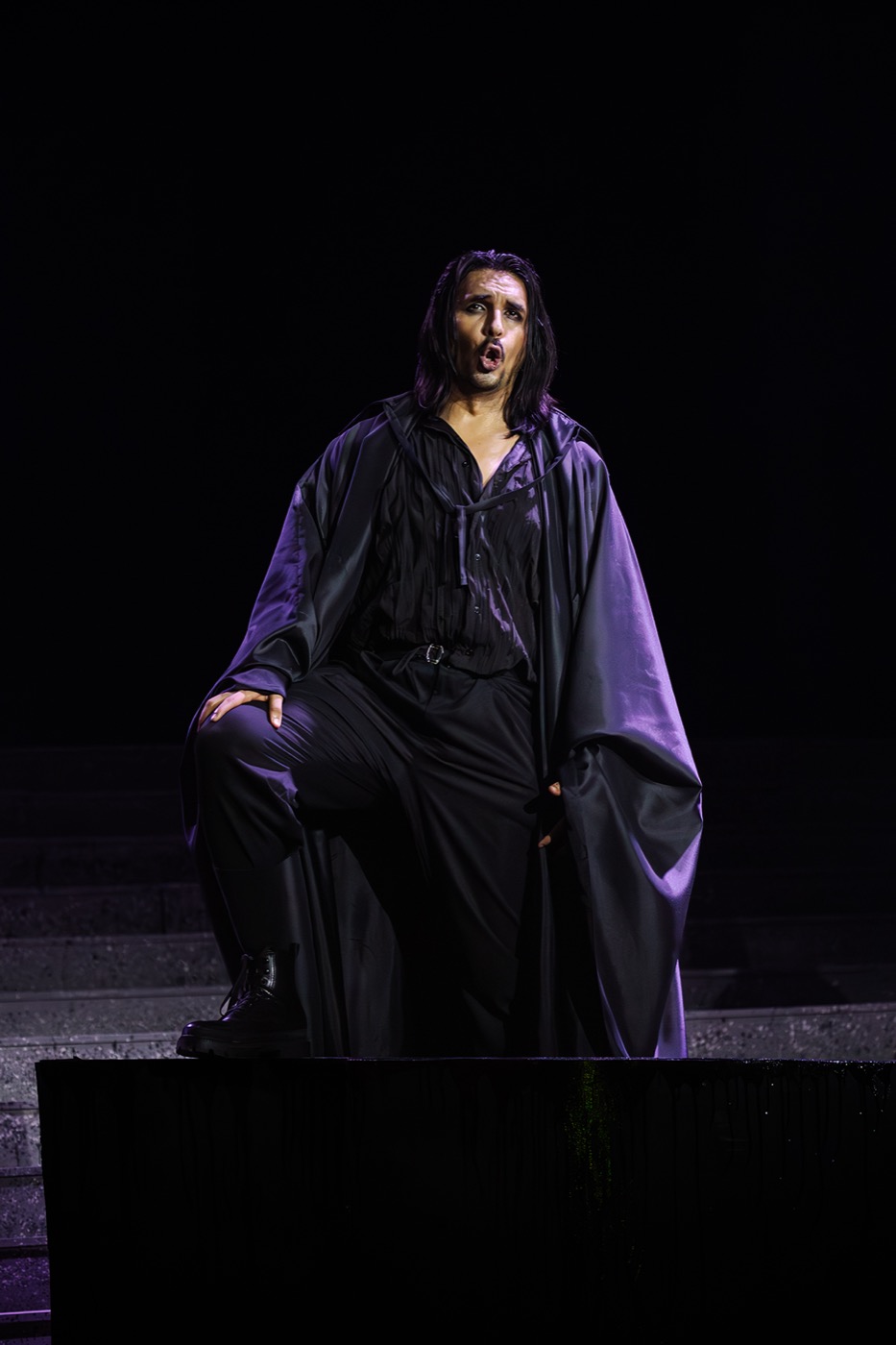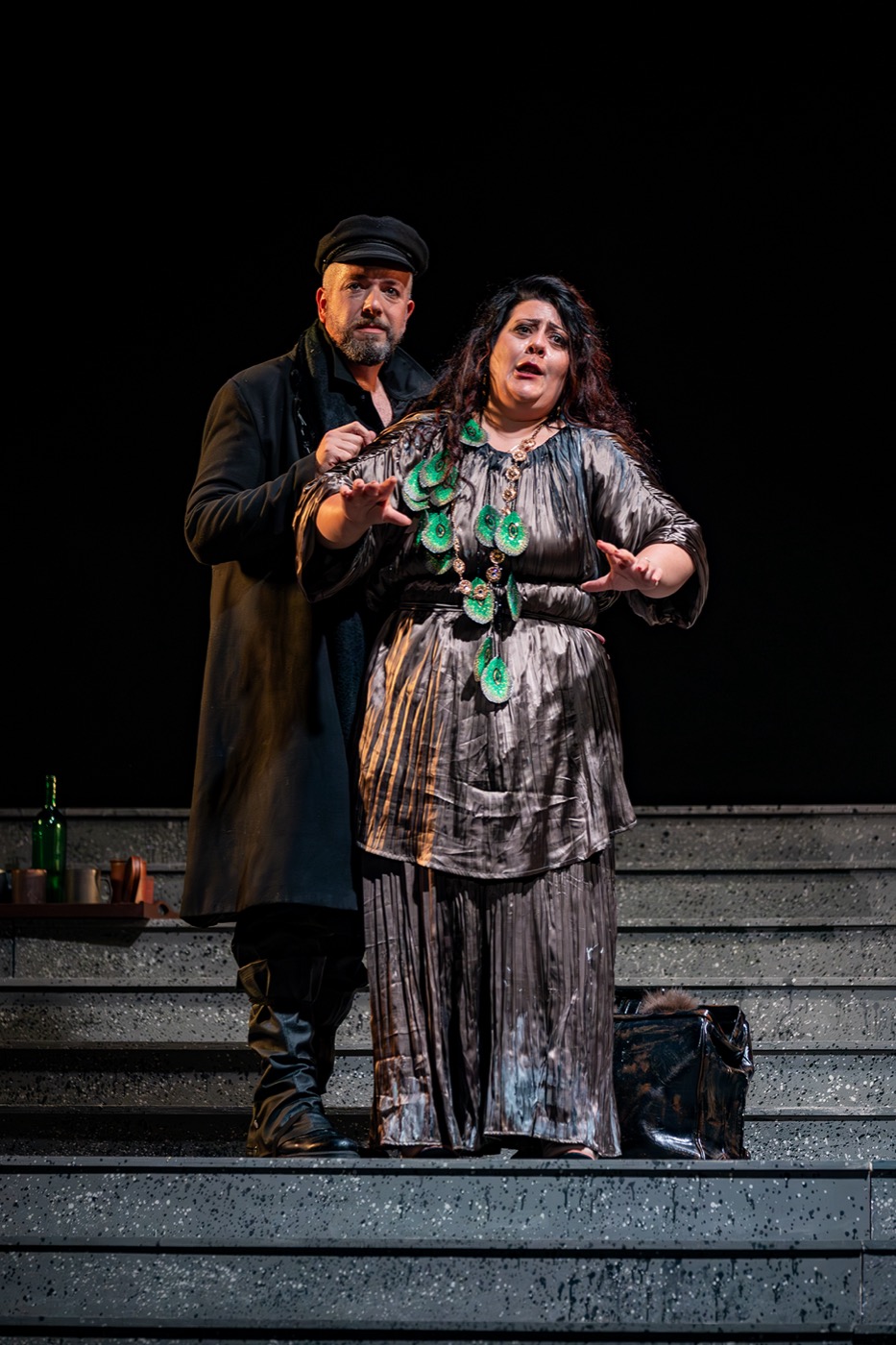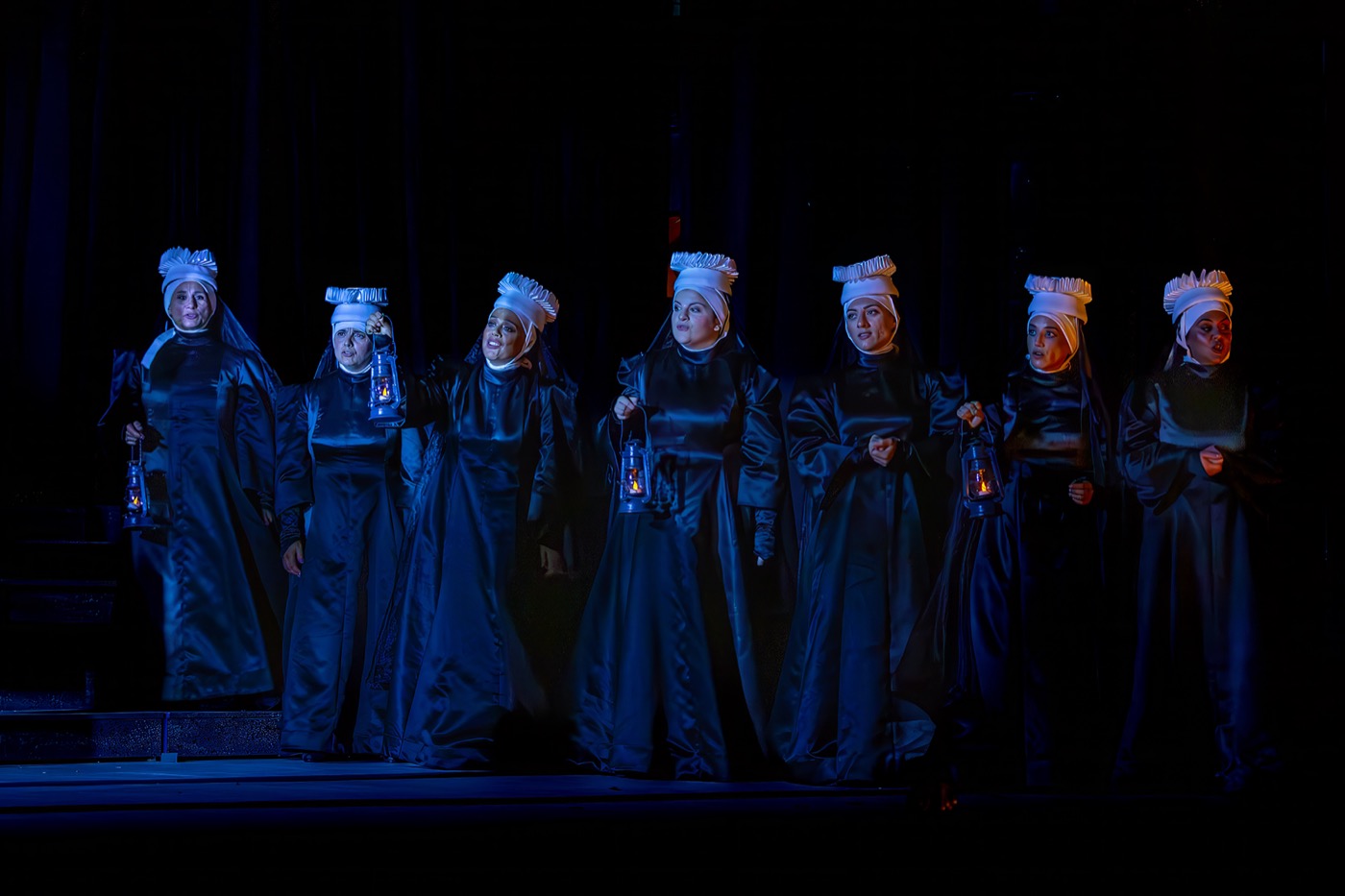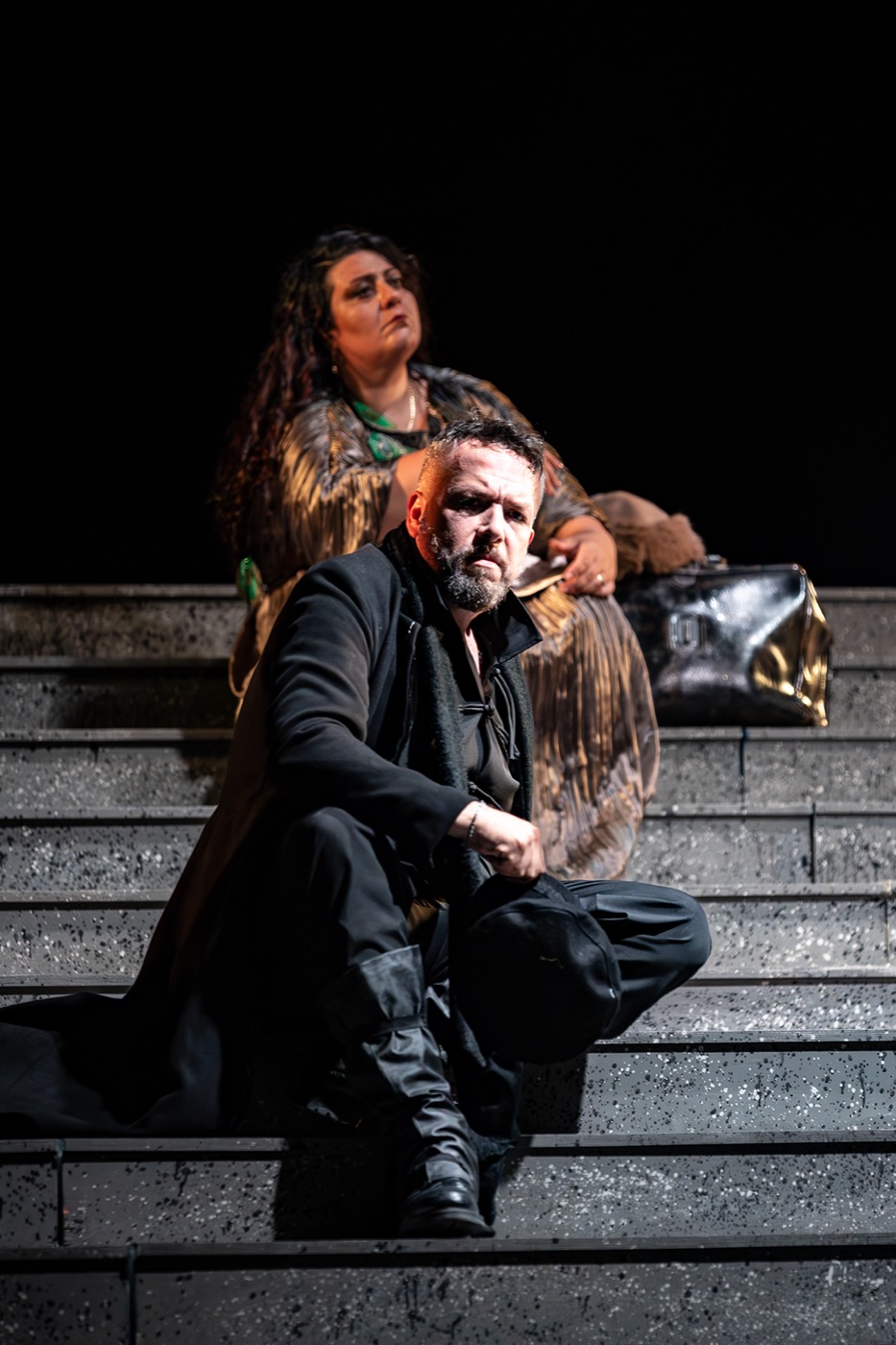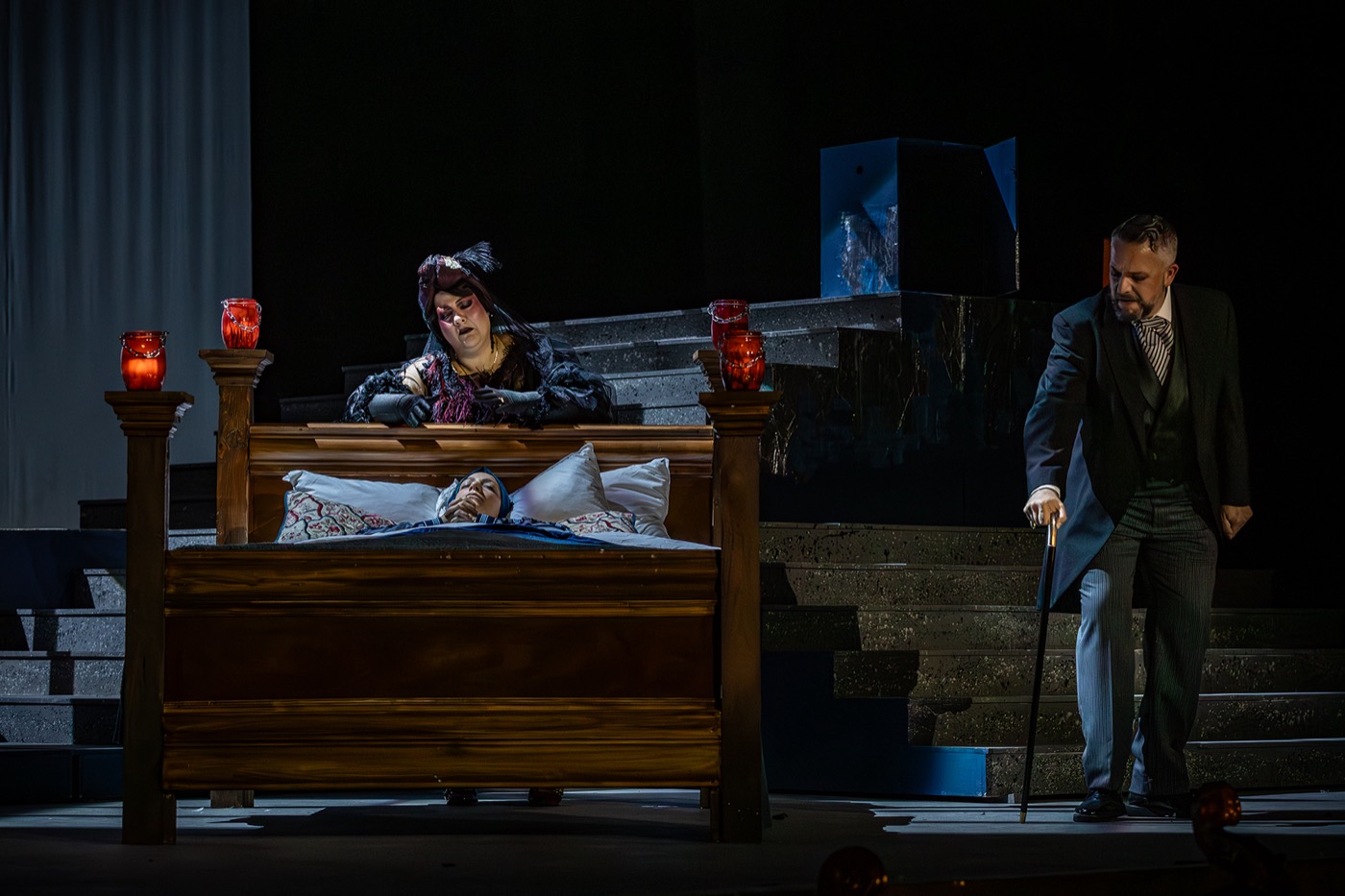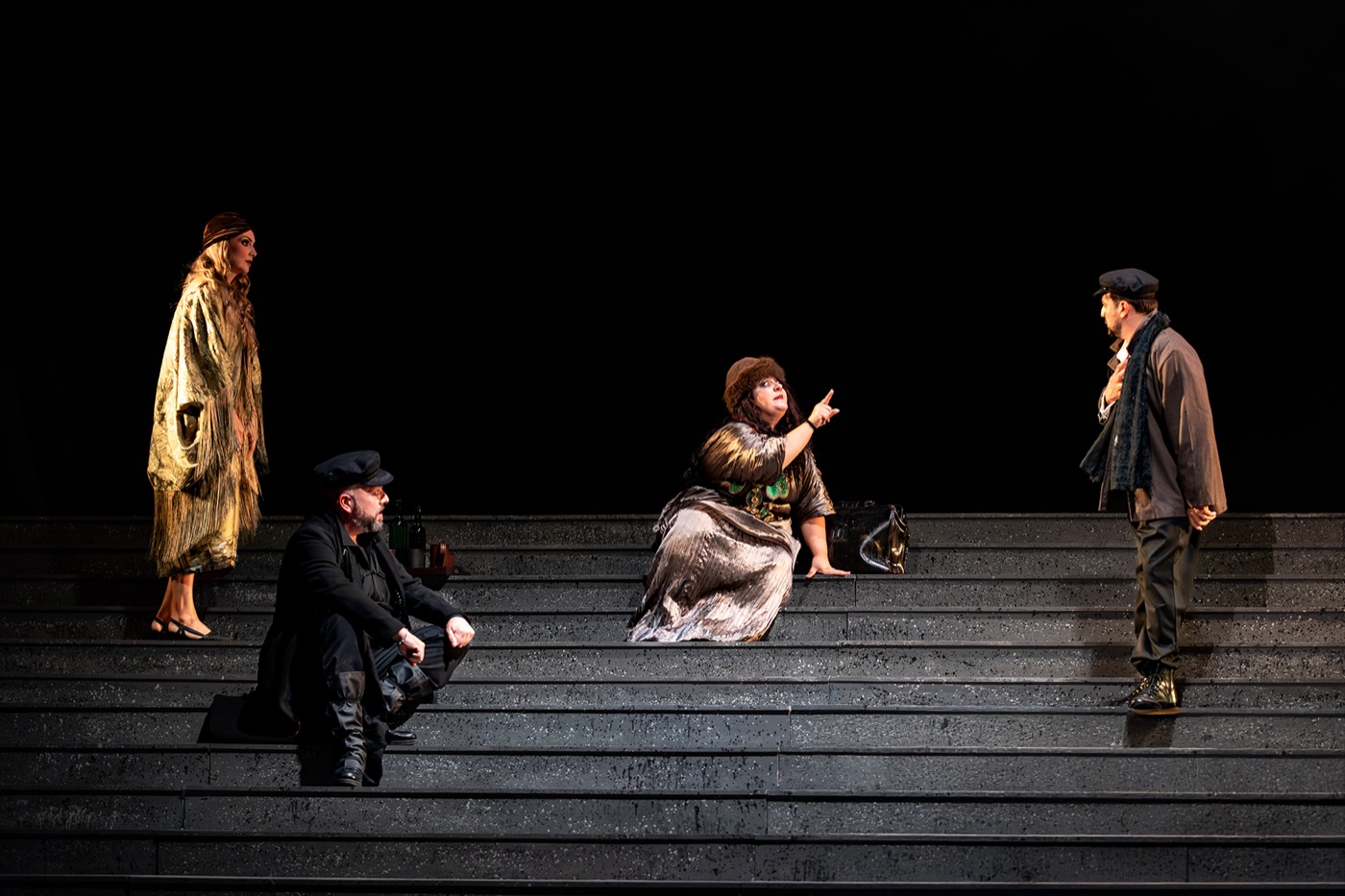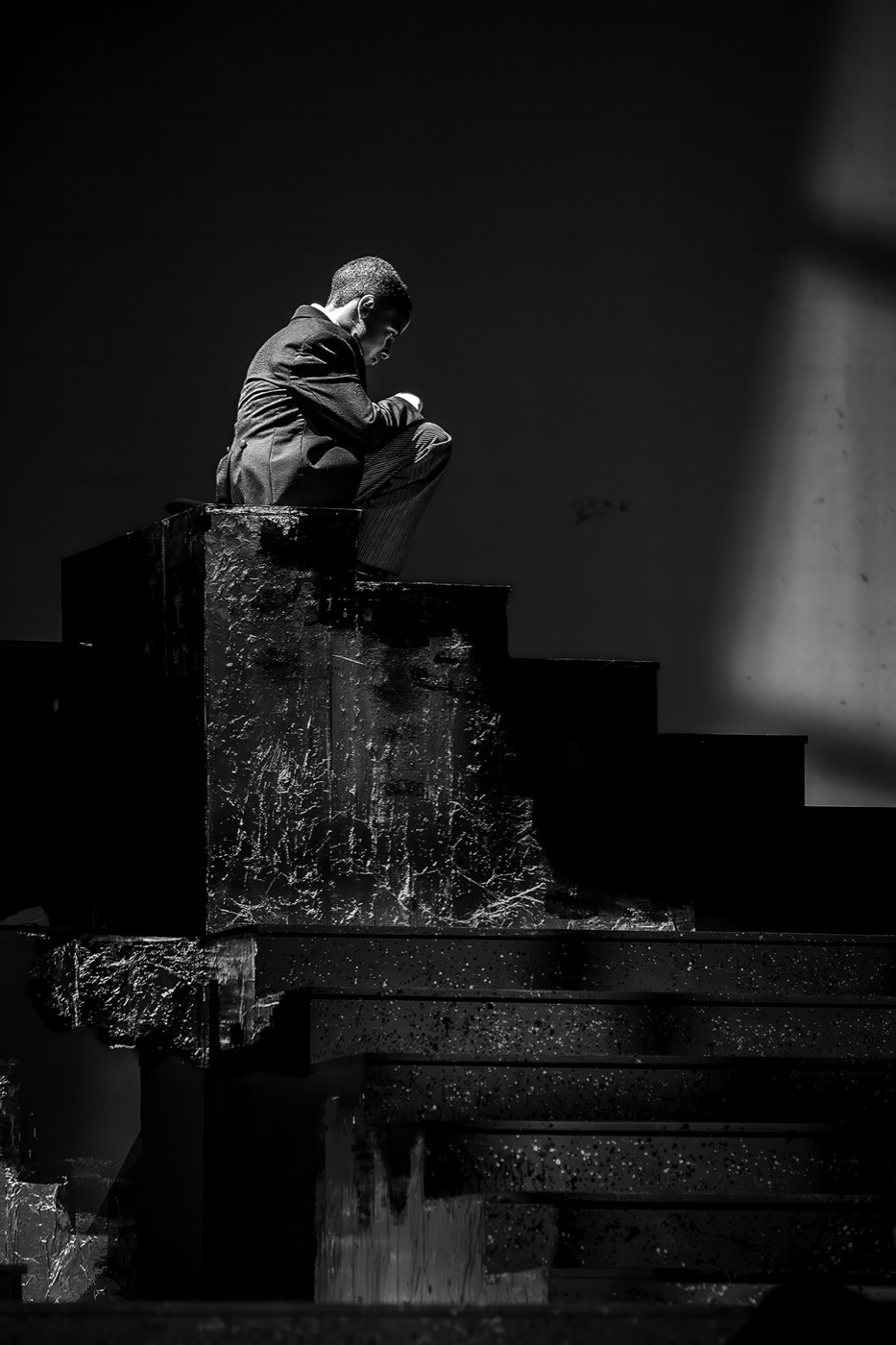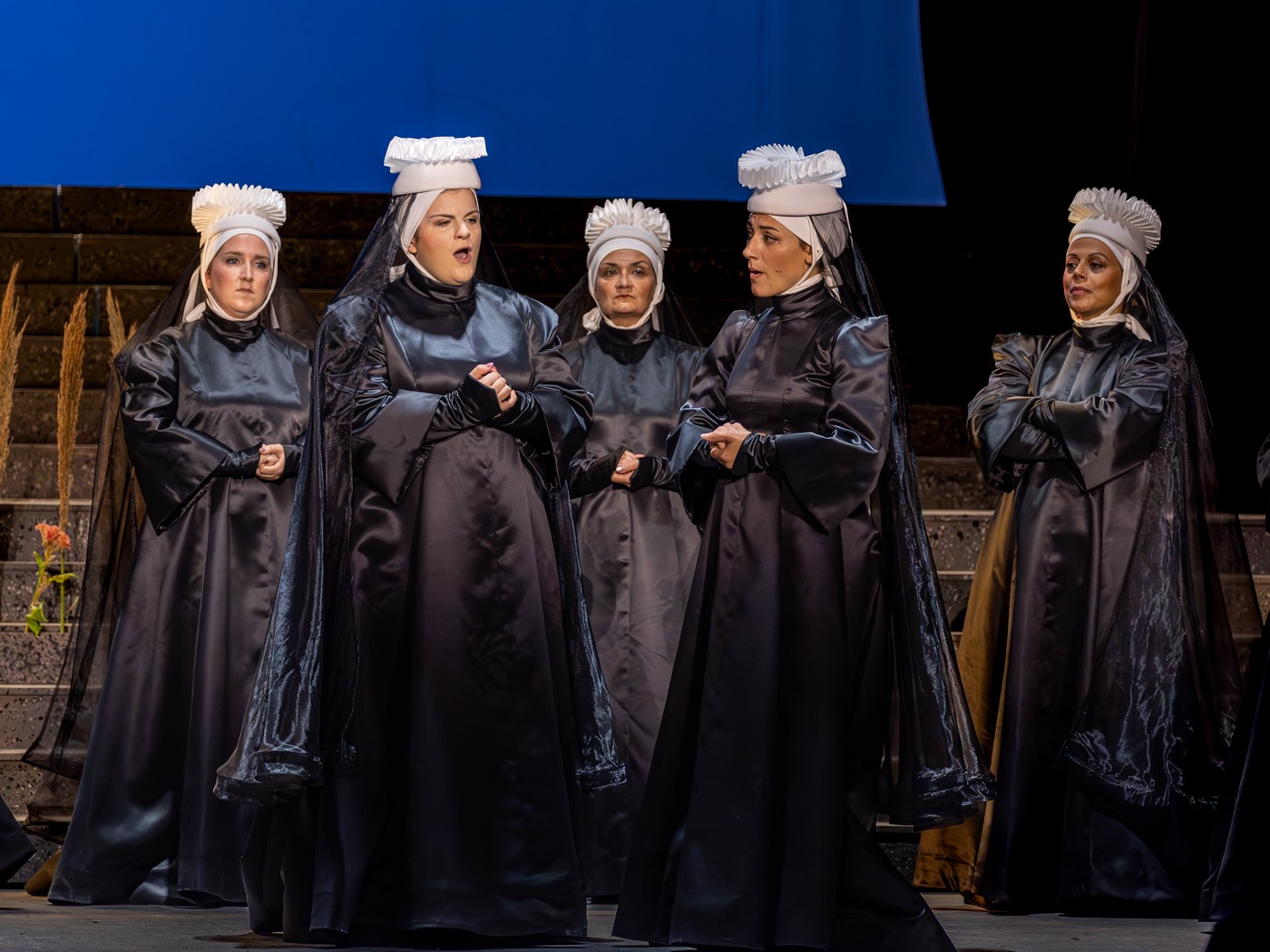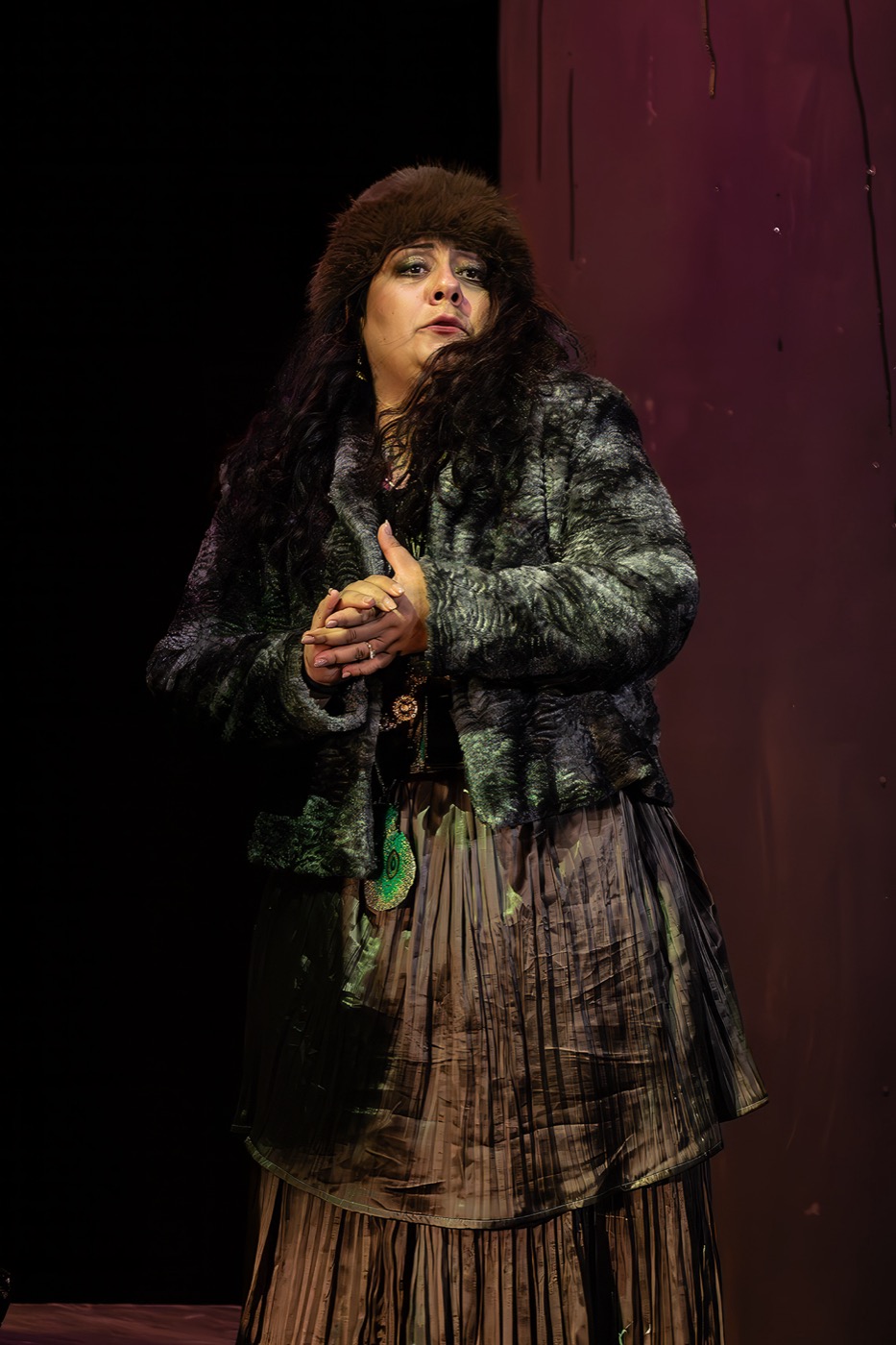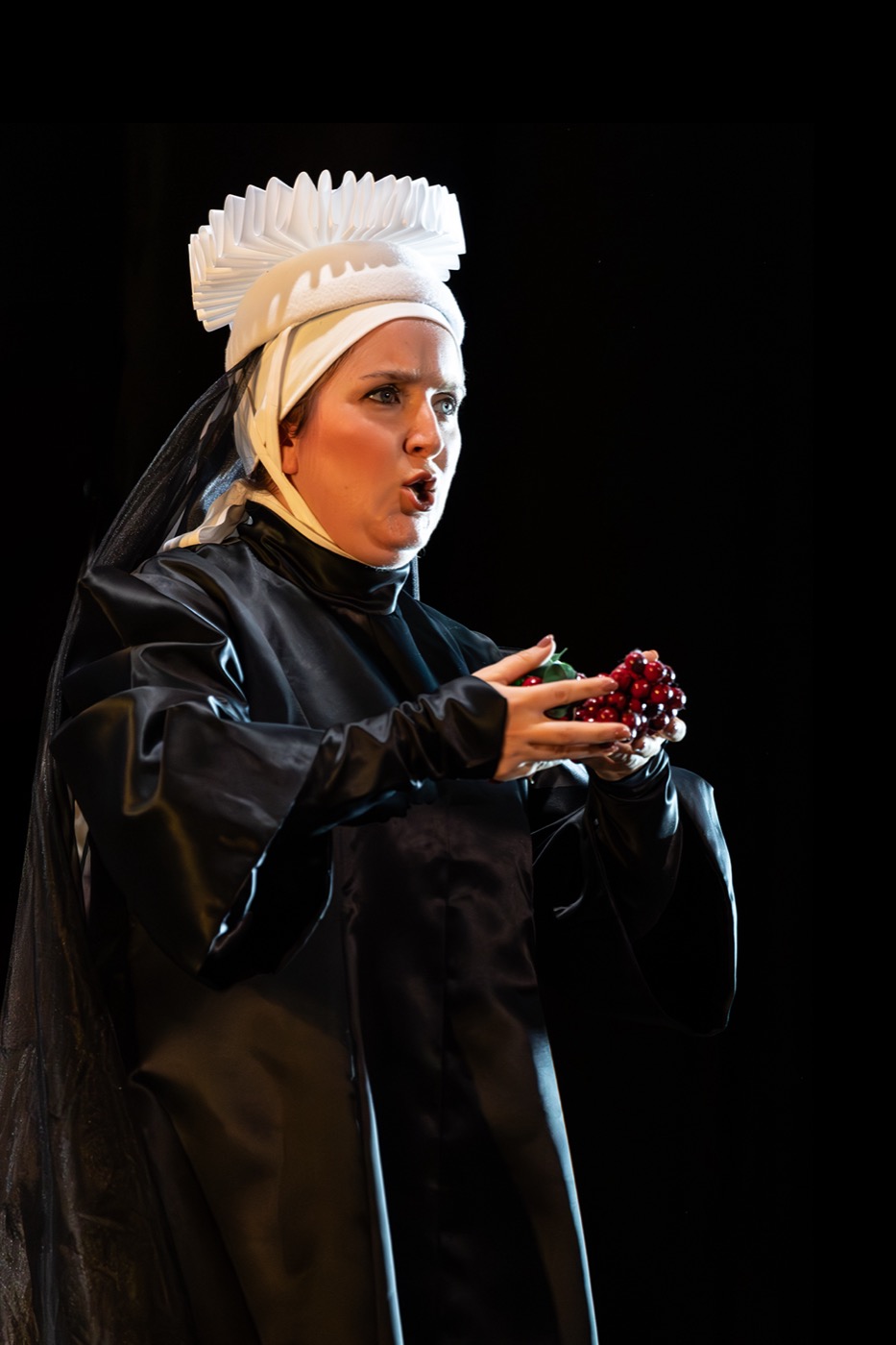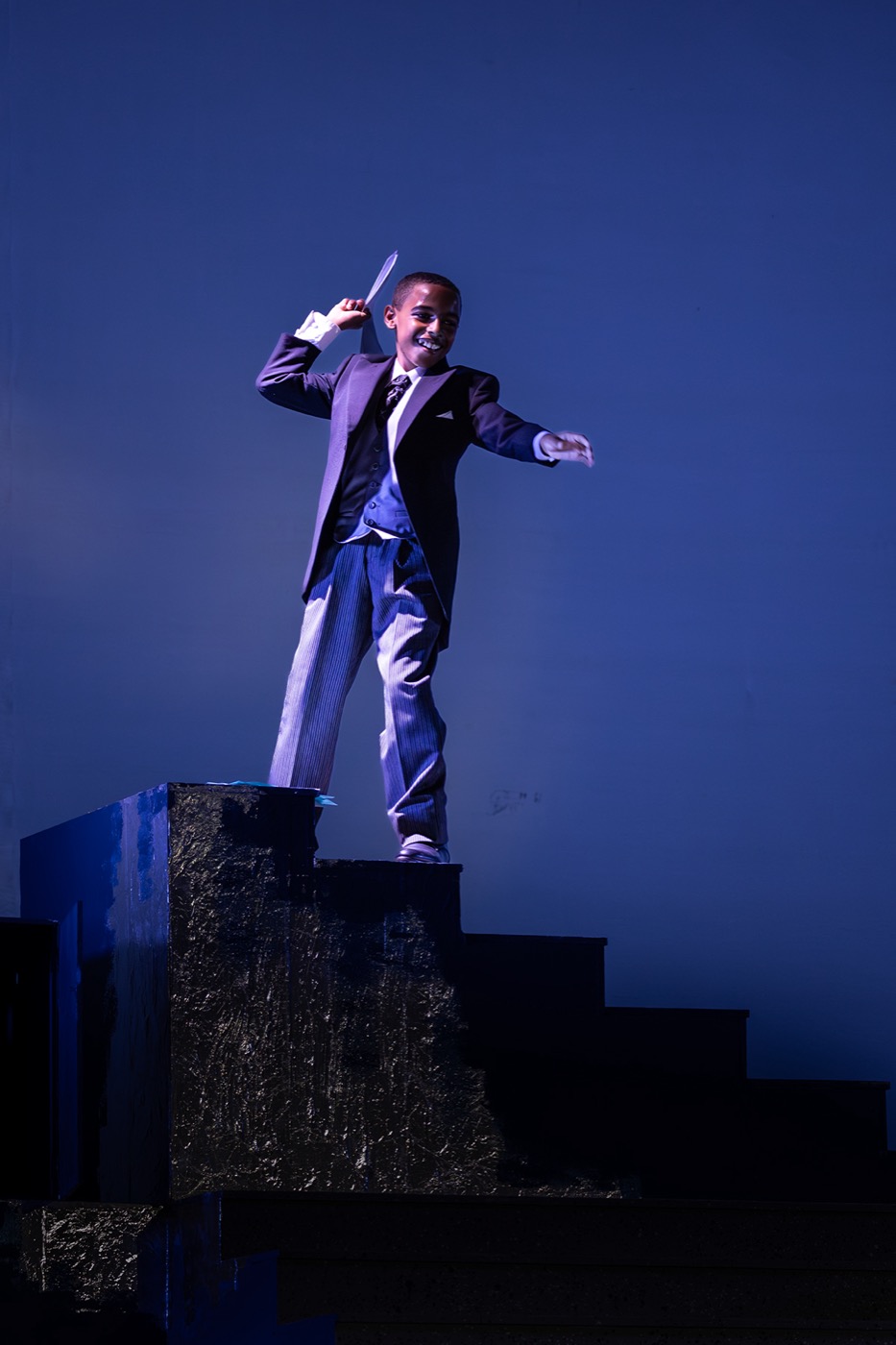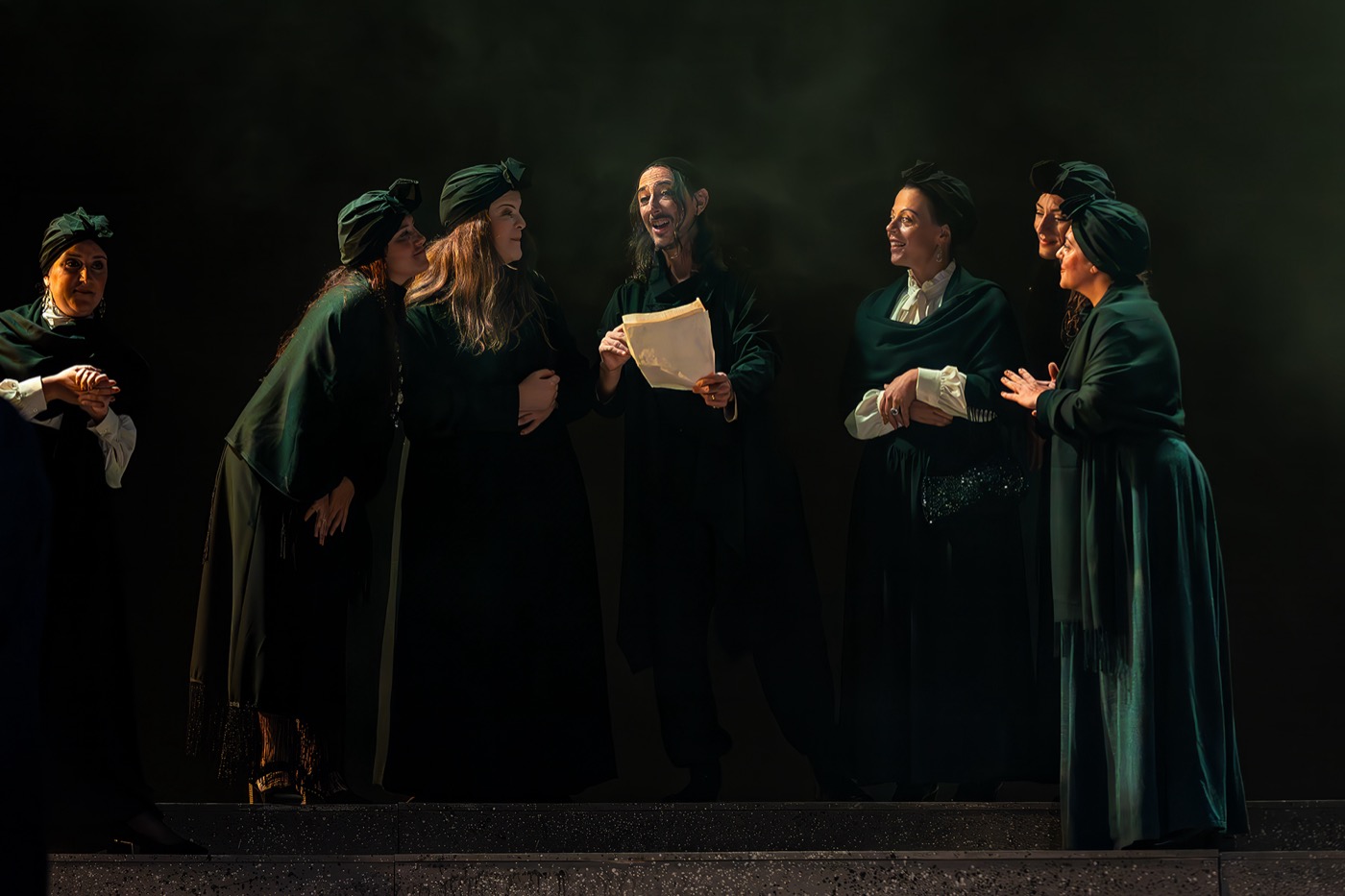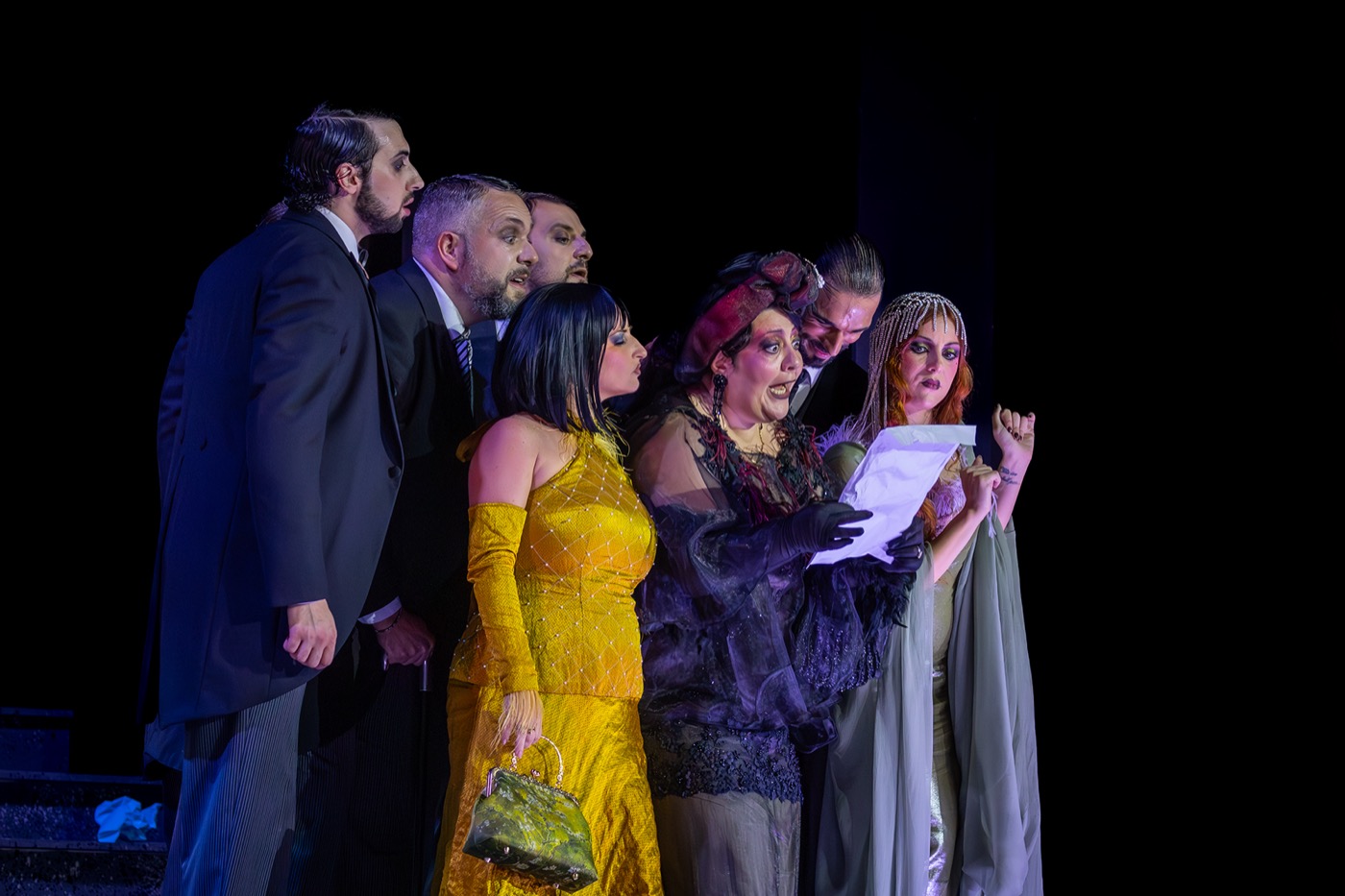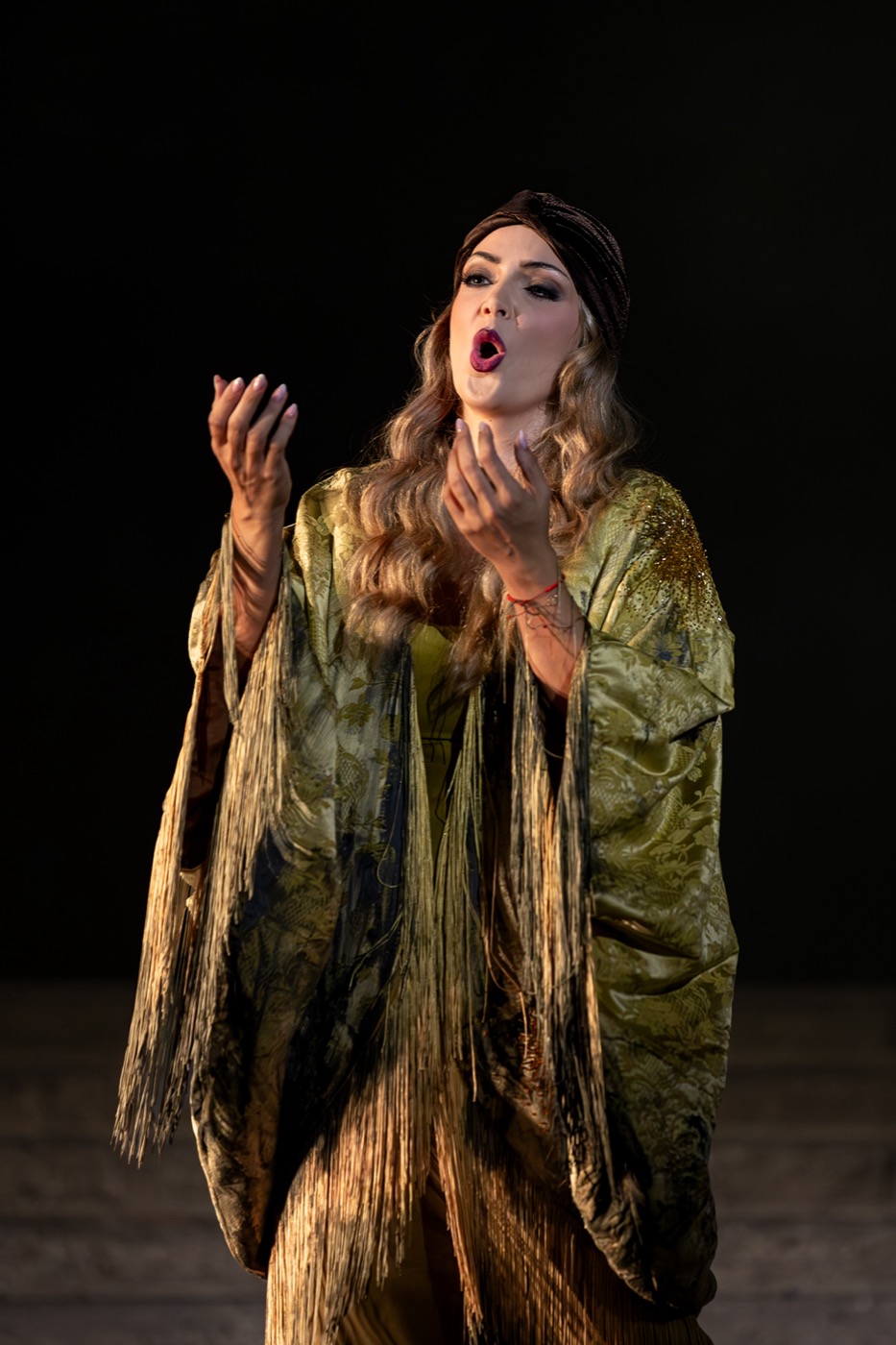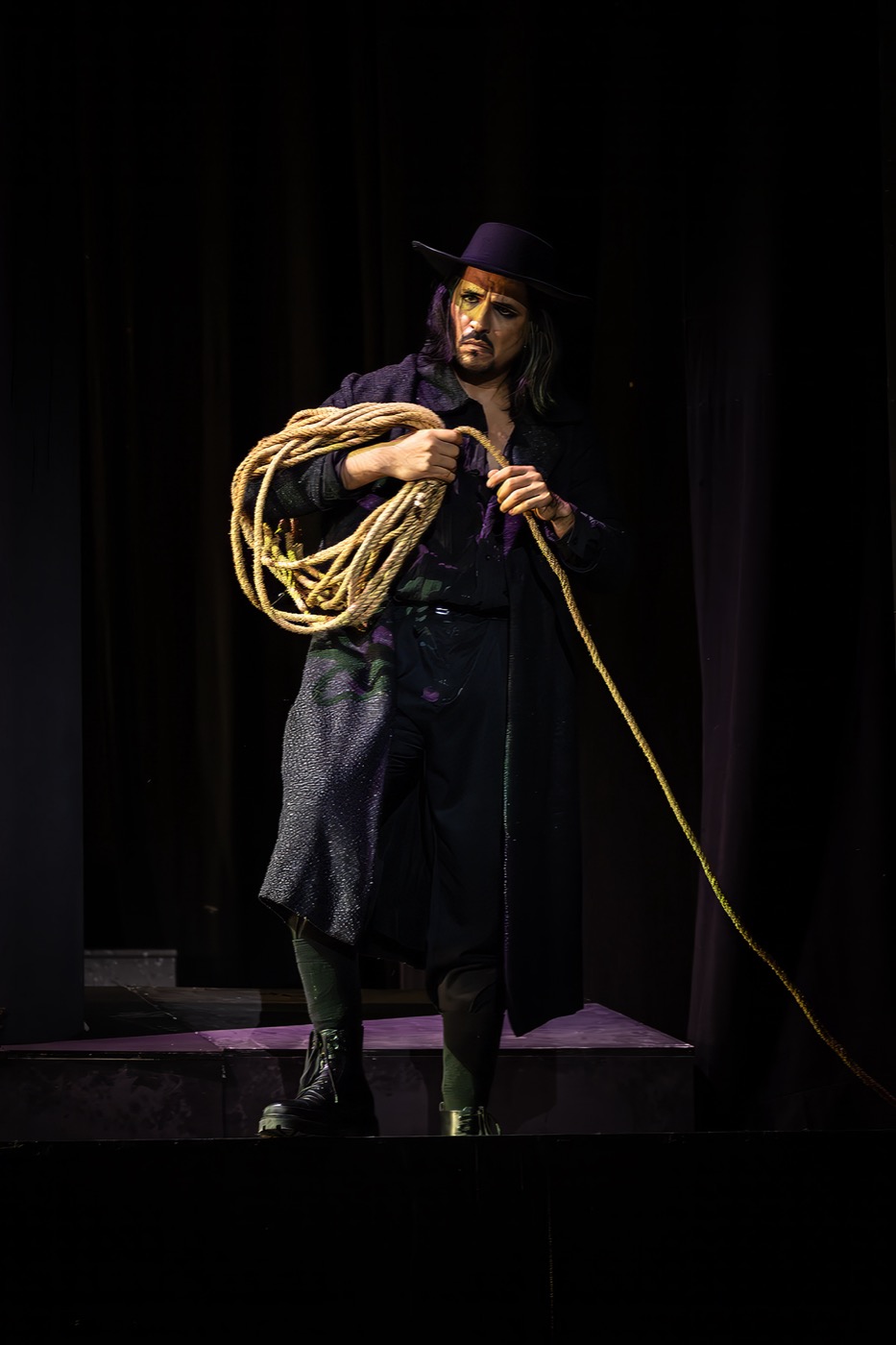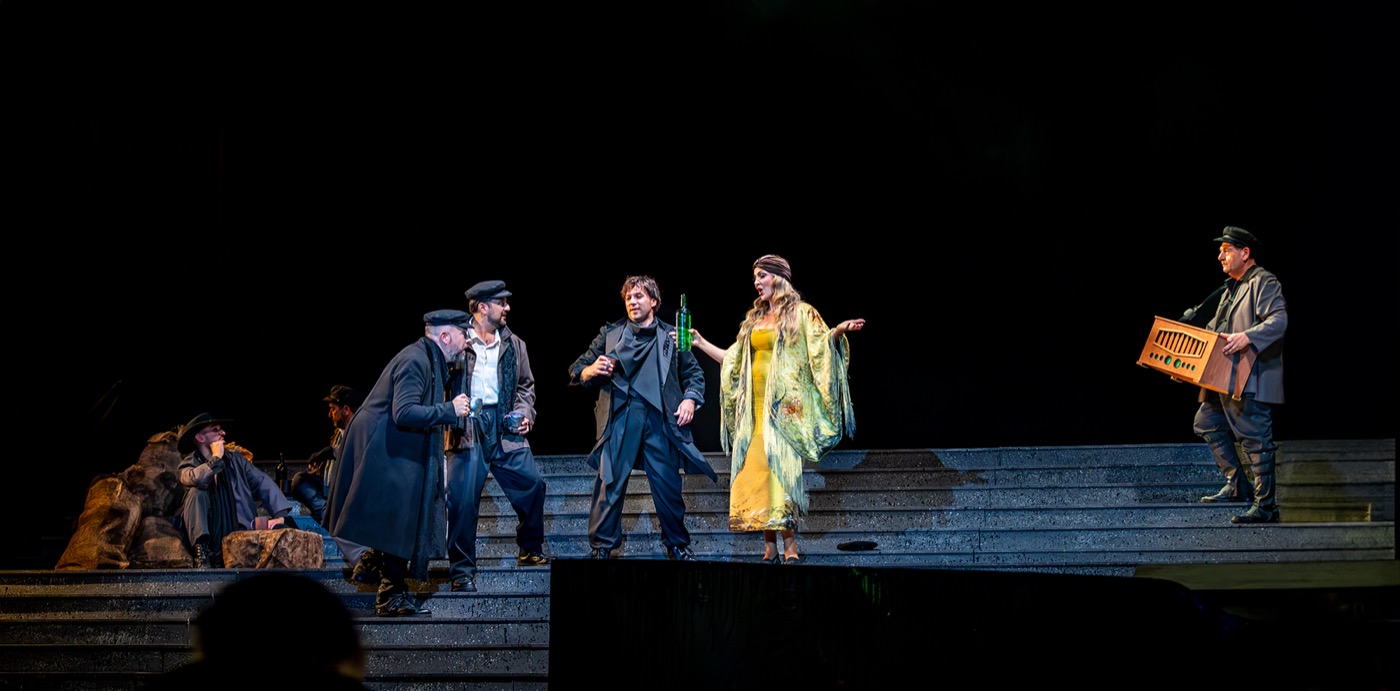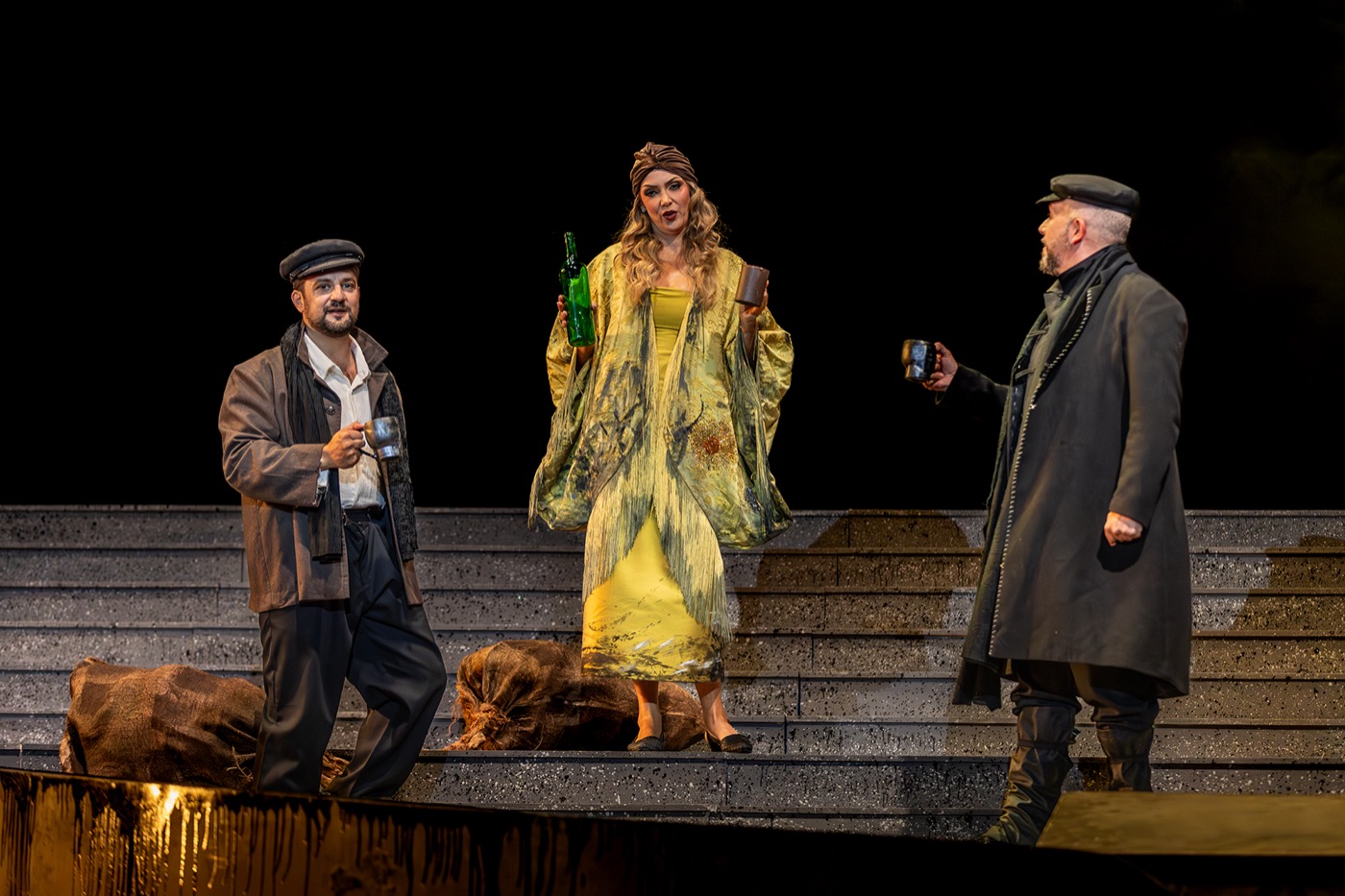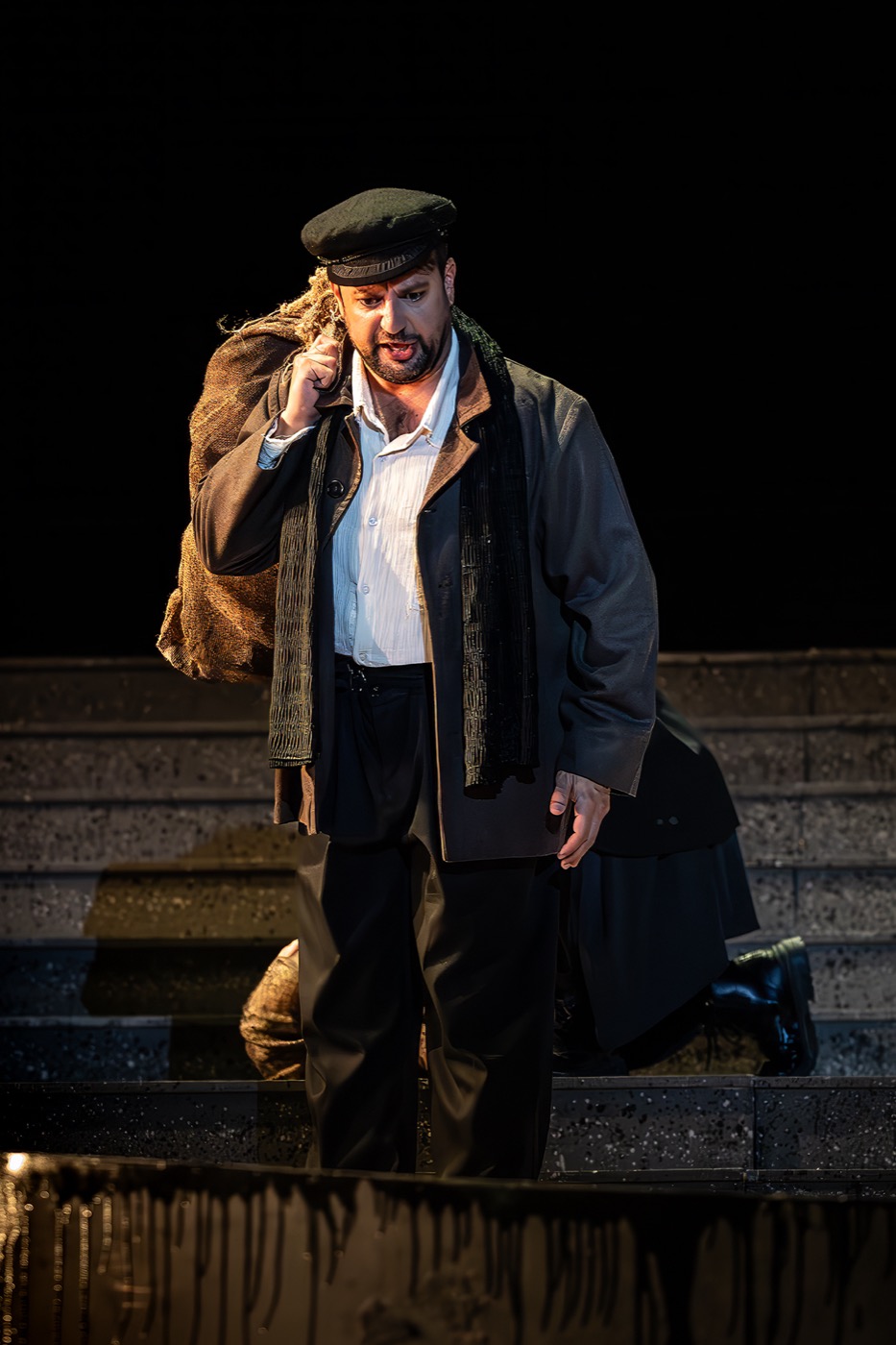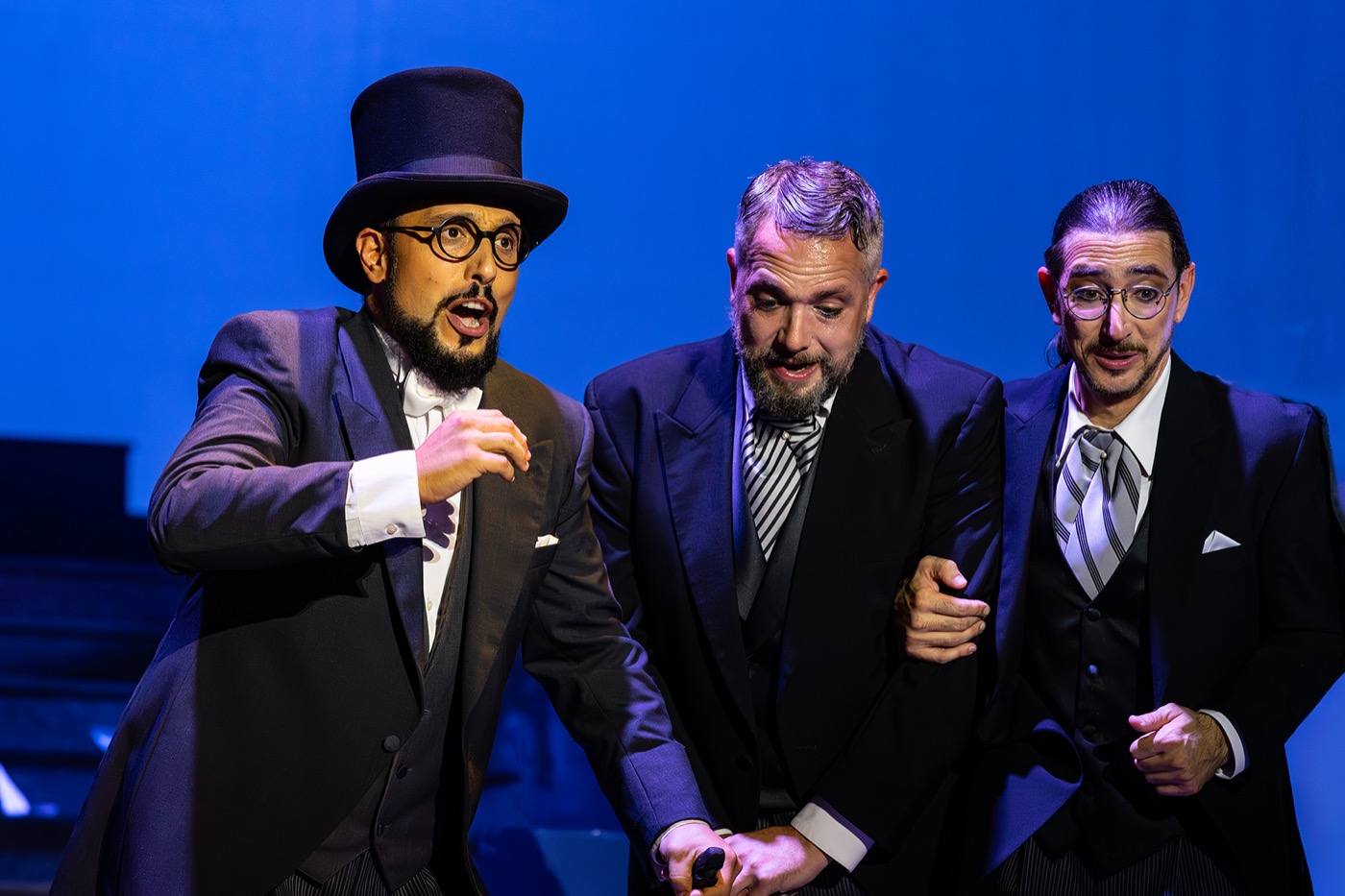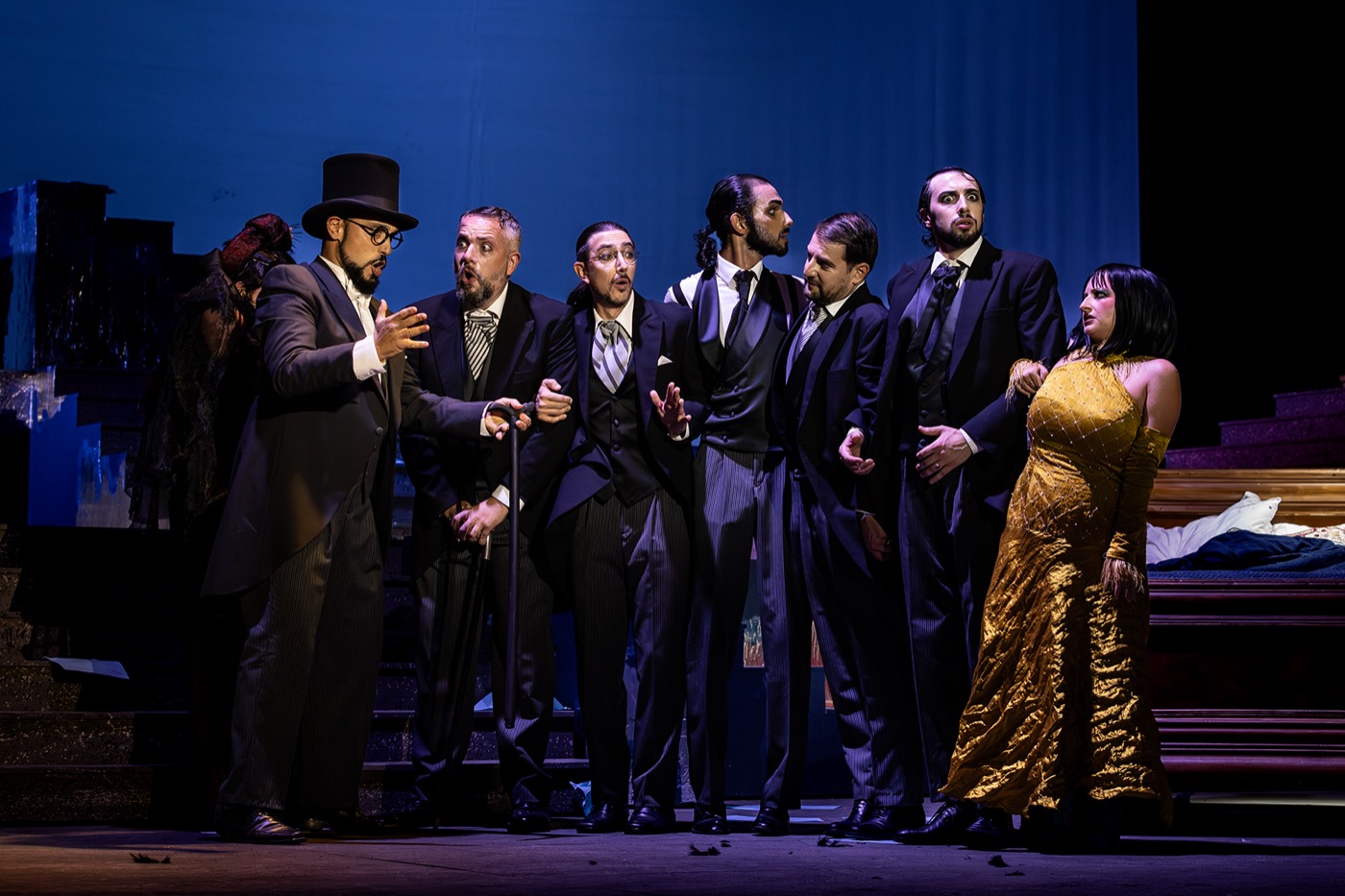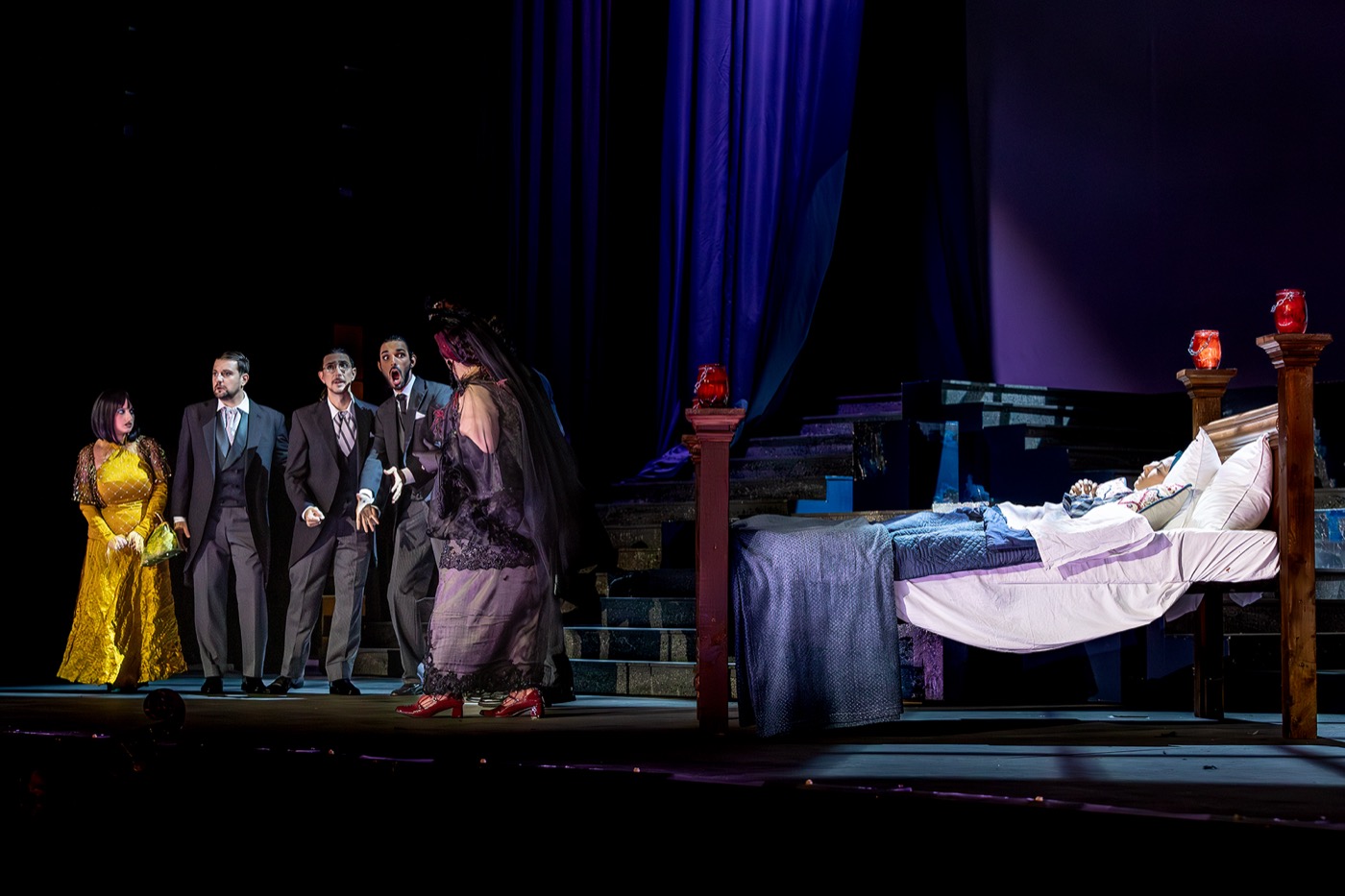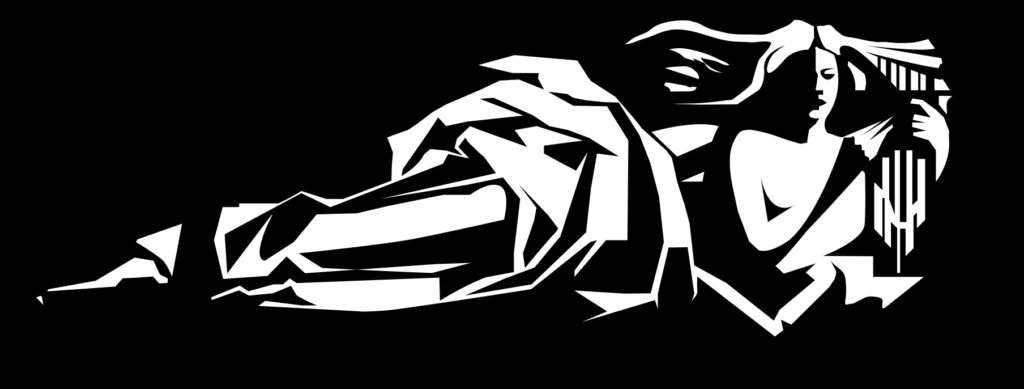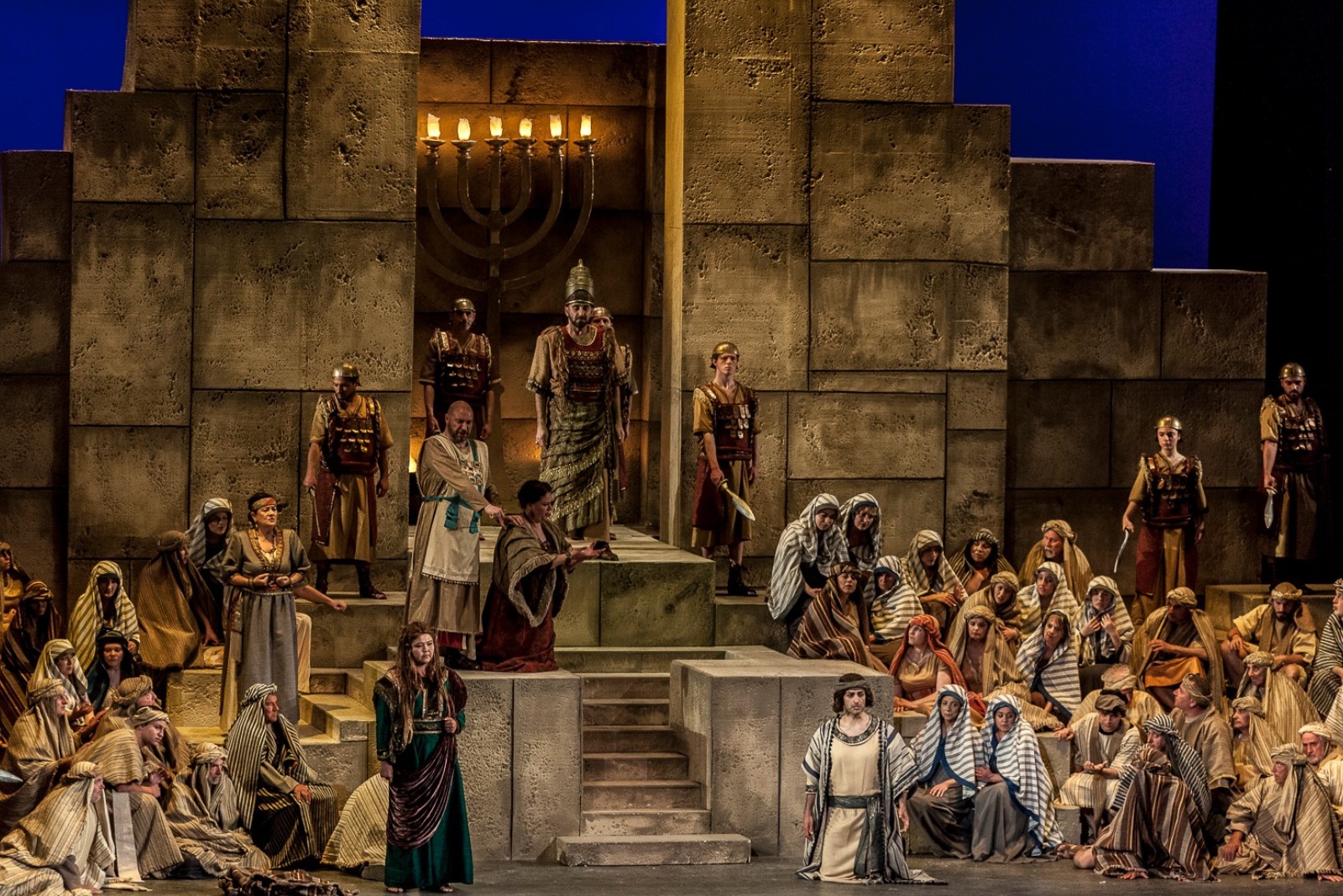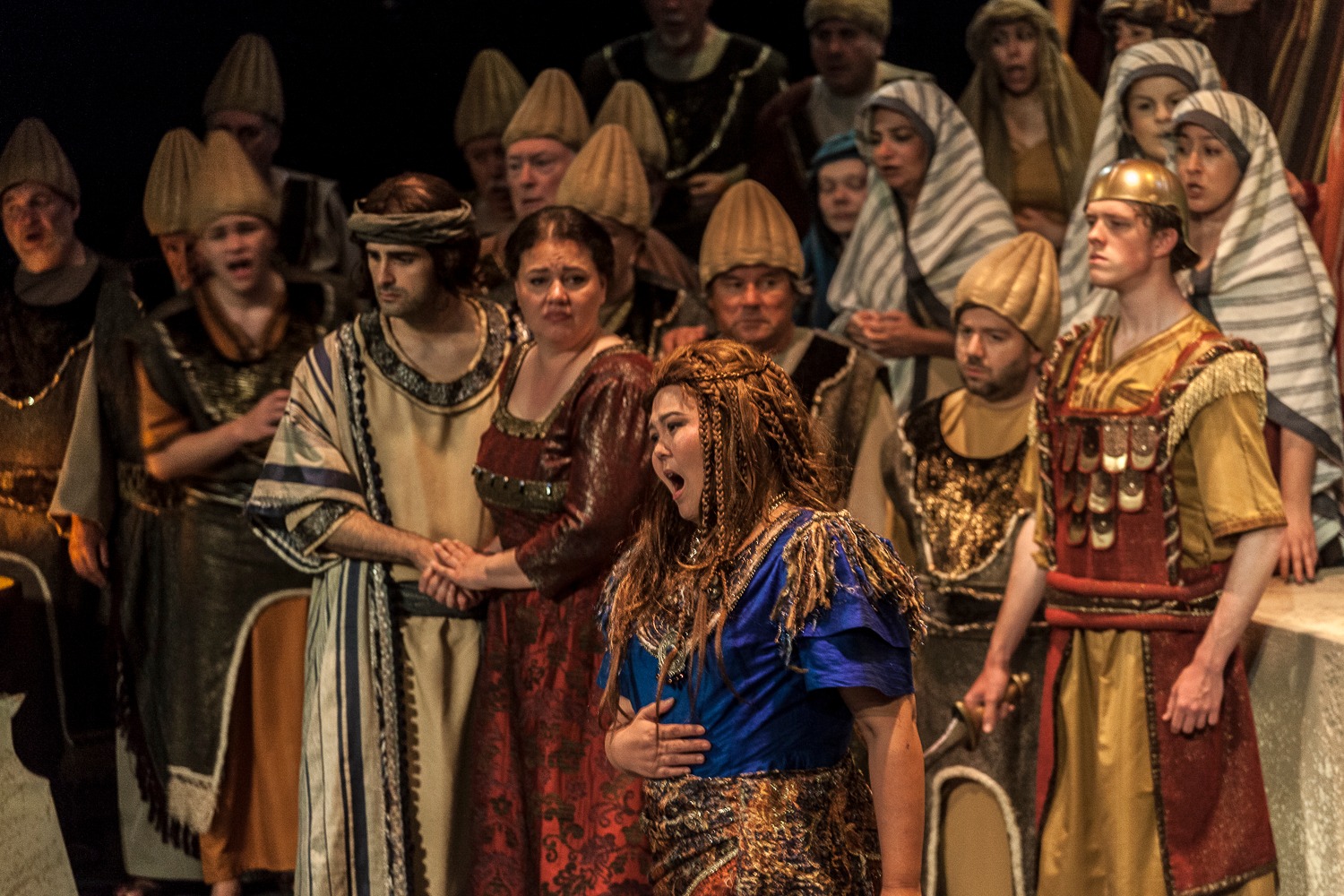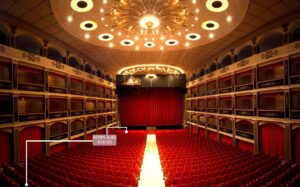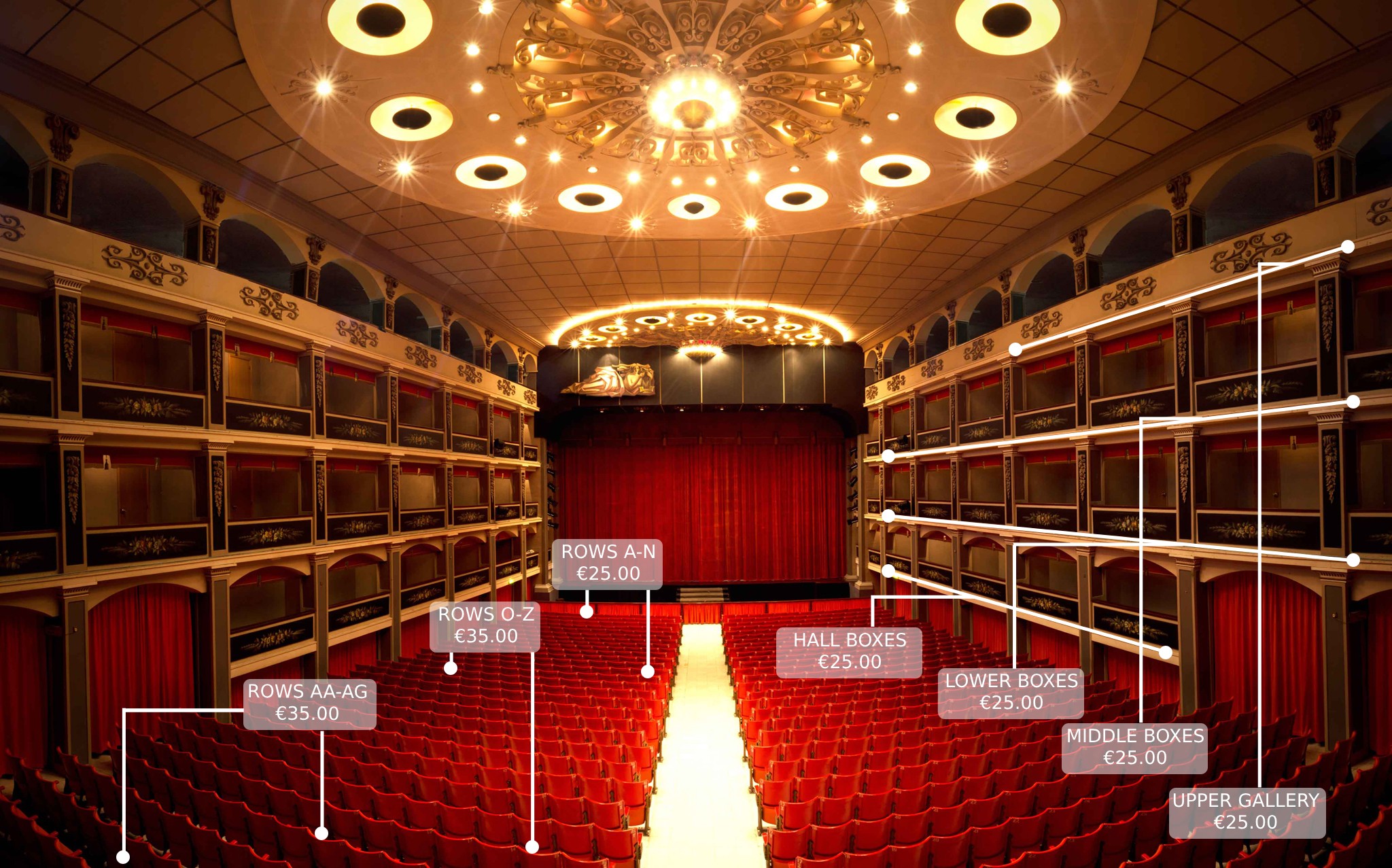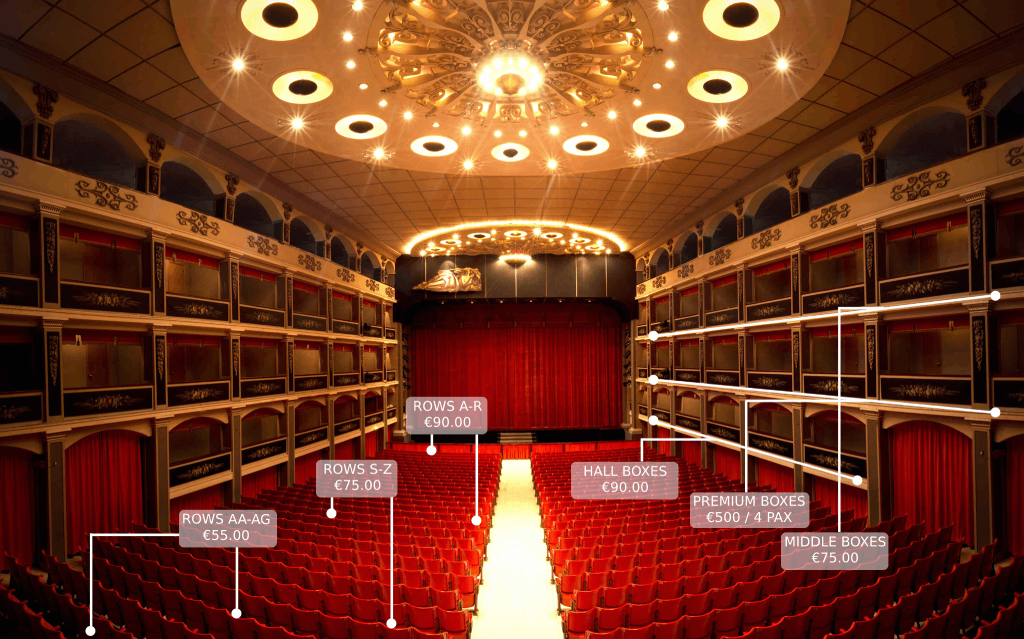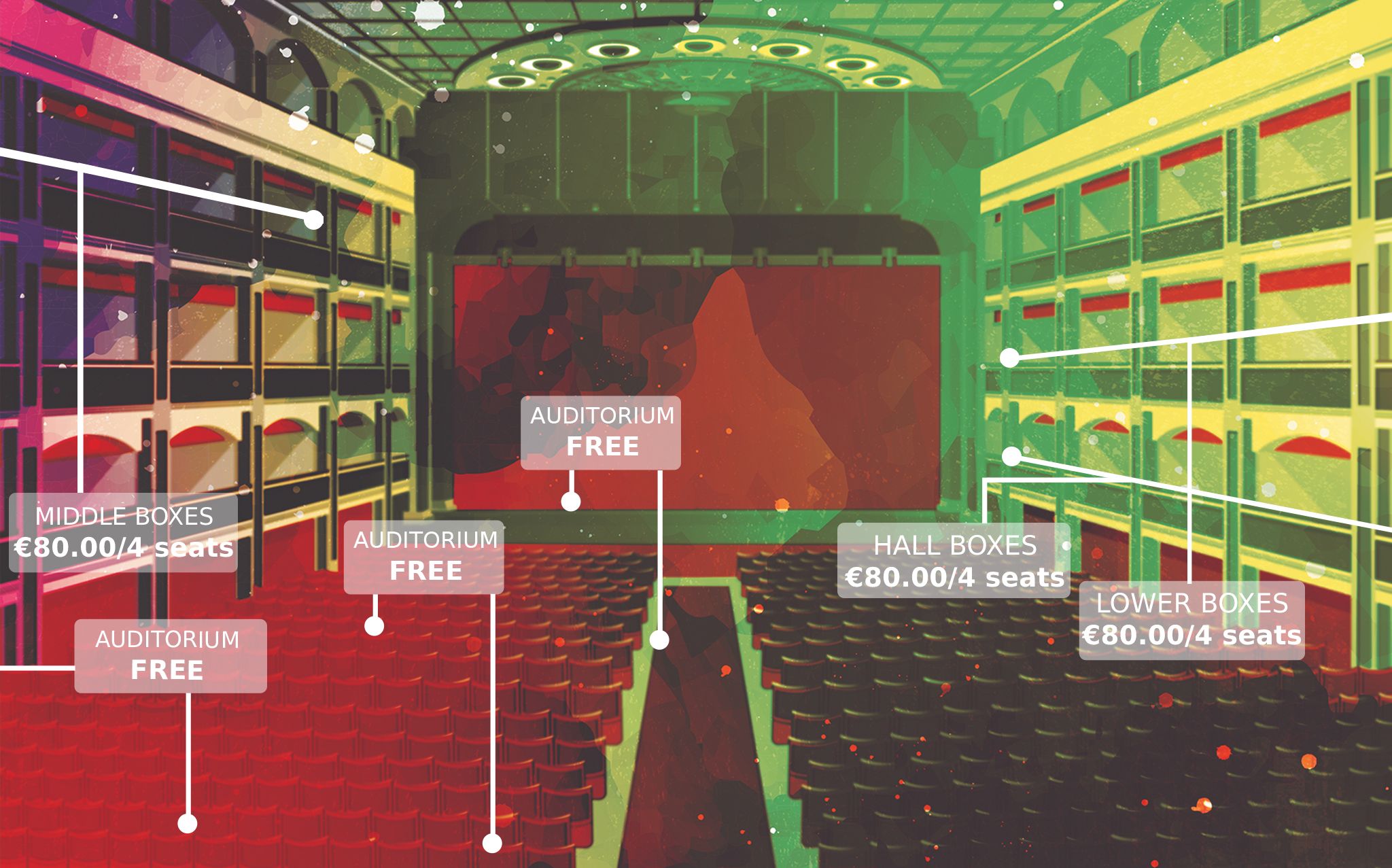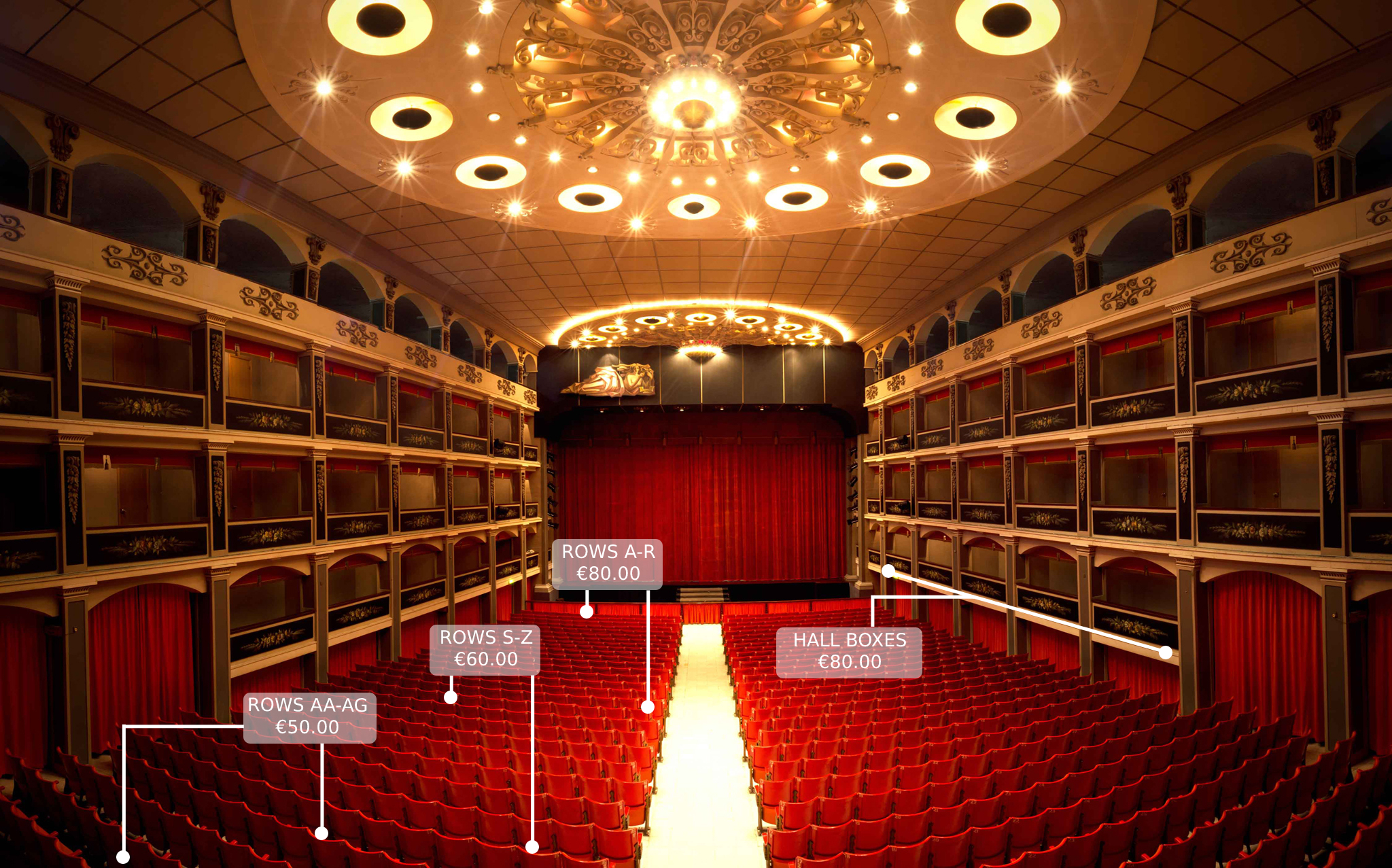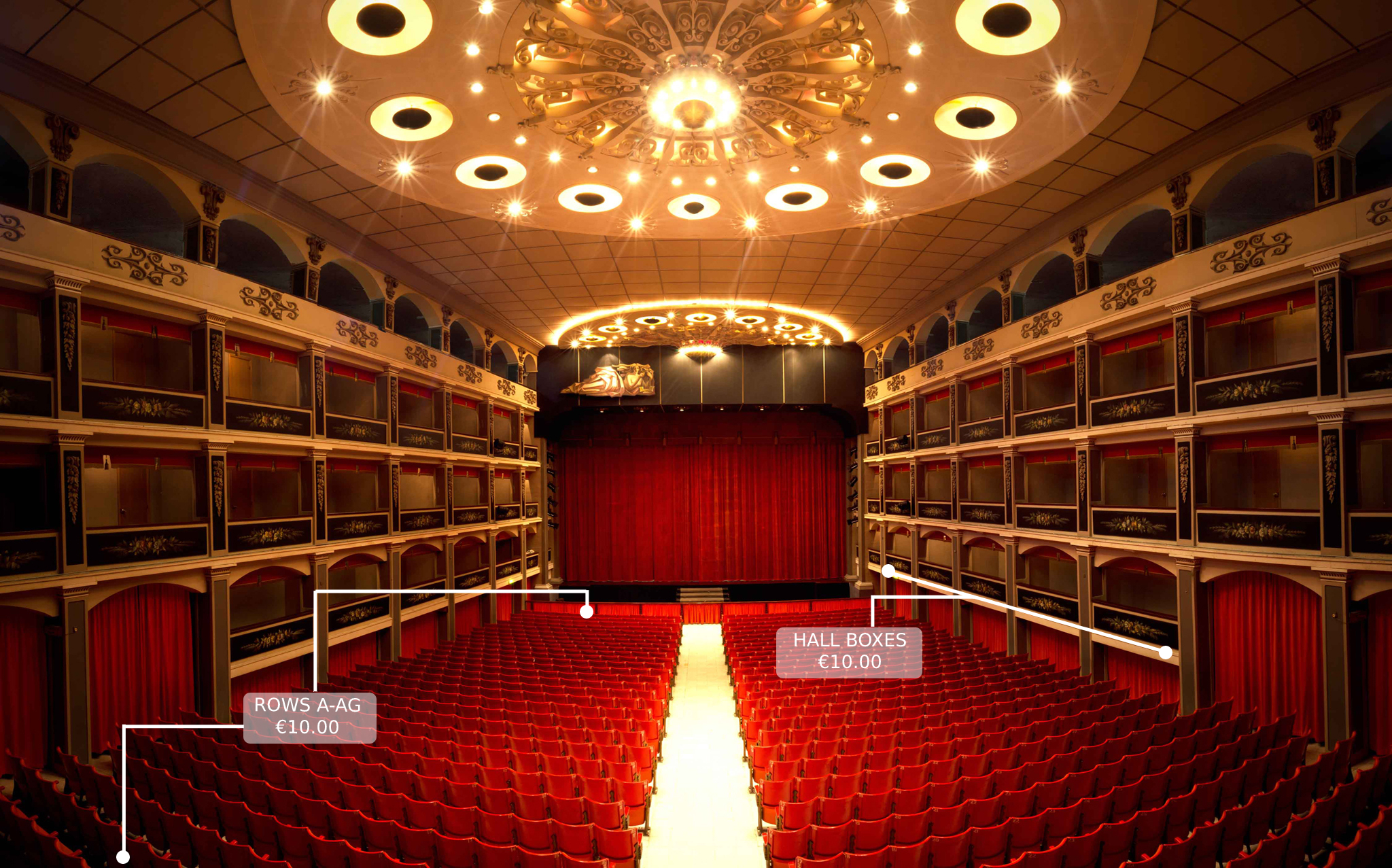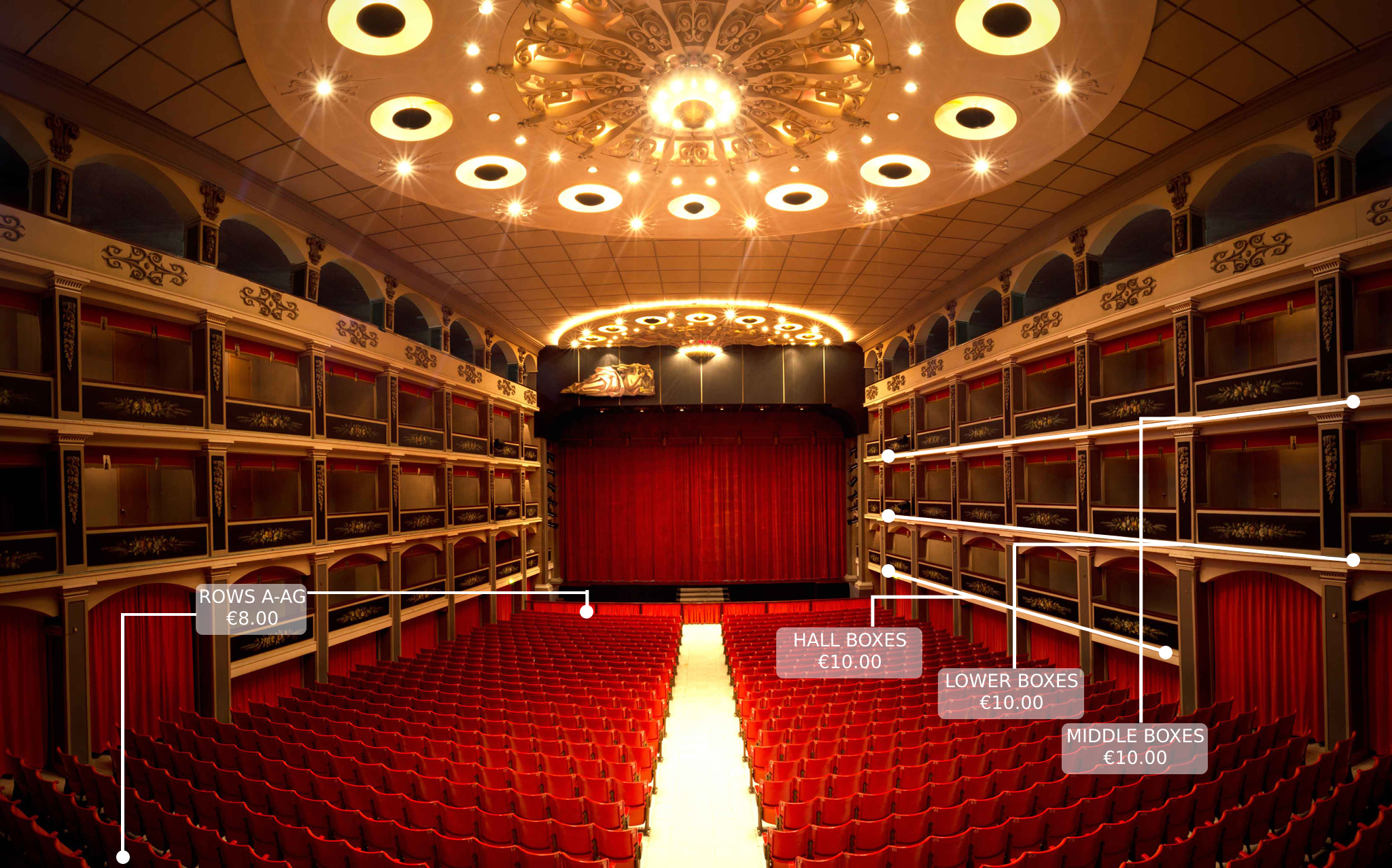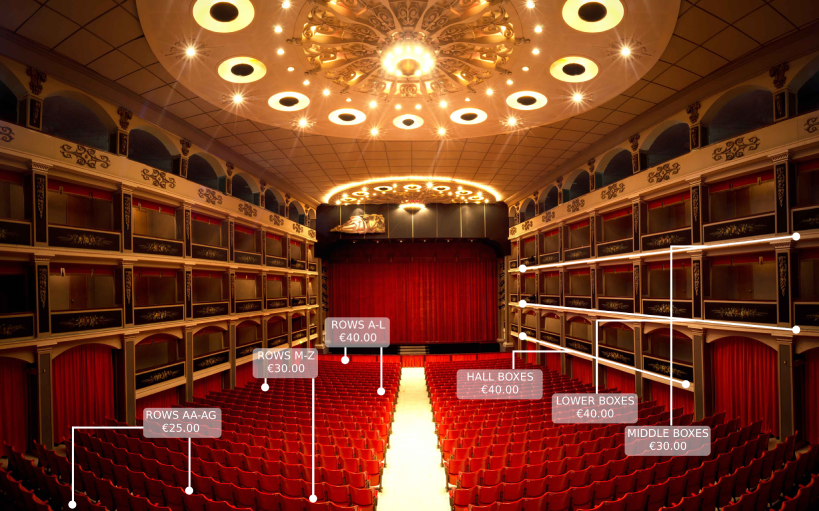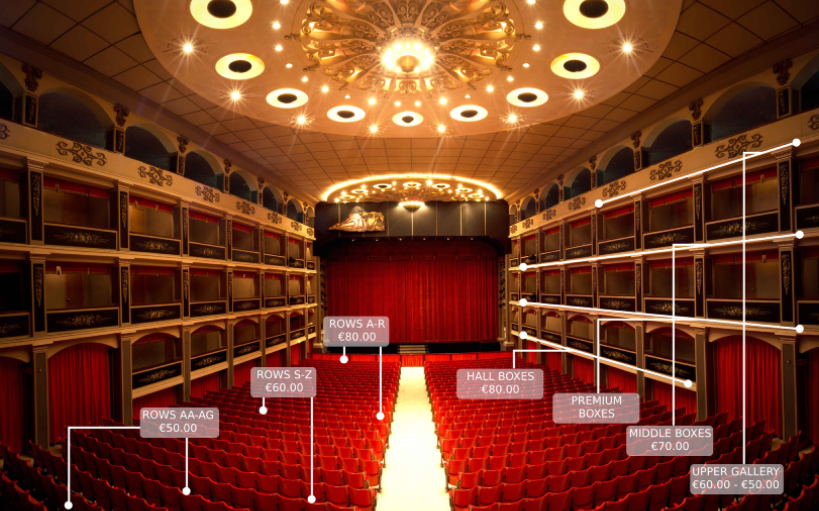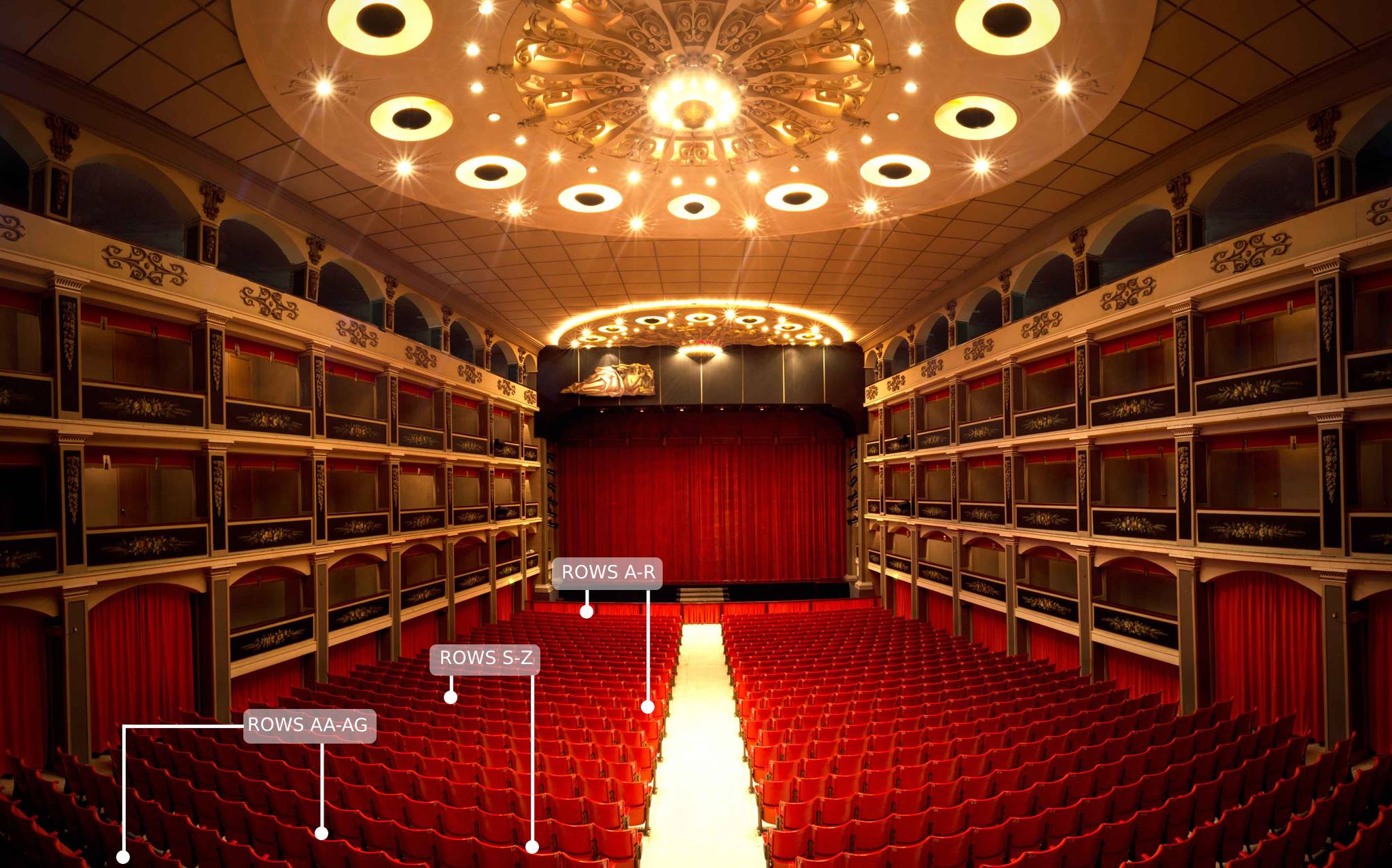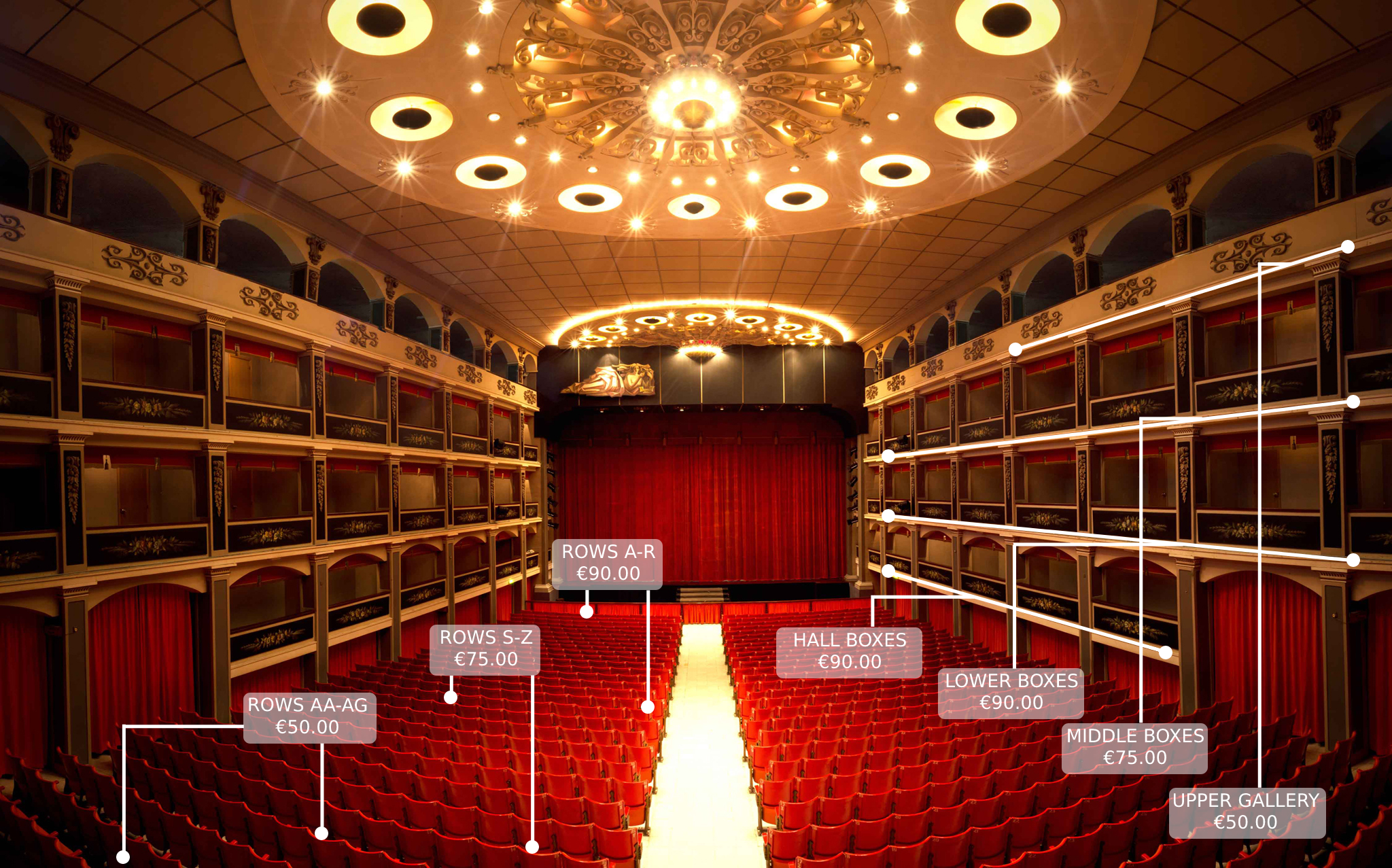Il Trittico’s Belated Premiere!
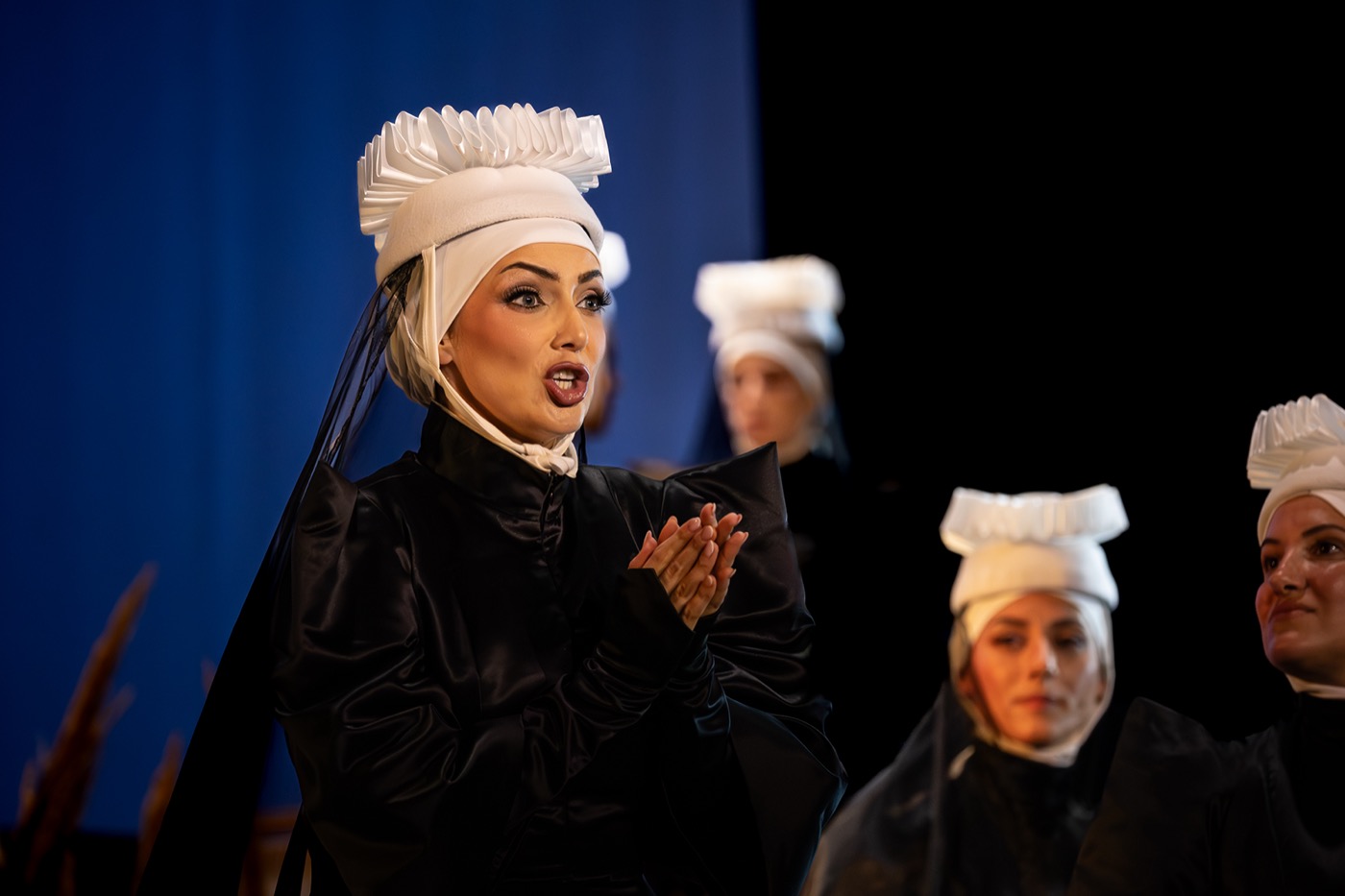
Albert George Storace reviews the Aurora production of Il Trittico, performed on 12th October 2024.
Photos by Viktor Vella
Puccini’s Il Trittico has finally been premiered in these Islands. To be precise it happened at Gozo’s Aurora Opera House on the 12th instant. It took almost 106 years after its world premiere in New York on 14 December, 1918.
I believe Il Tabarro was performed only in Valletta’s former Royal Opera House (L-Irjal). I first saw Suor Angelica in the late 1950s at il-Ħamrun’s Radio City Opera House. Once more when it was twinned with Leoncavallo’s Pagliacci at Gozo’s Astra Opera House. If Gianni Schicchi were ever performed in Malta I may have missed it by being away. I saw the whole set of three one-acters at Lisbon’s São Carlos in 1997, which featured our Miriam Gauci as a superbly unforgettable Suor Angelica.
Hats off to Autora Opera House for having scored not only the honour of putting on this marvellous triptych in a national premiere production, and also for having done it so well. Of course it required good planning and casting and nothing was left to chance.
Puccini always meant his Trittico to be performed as a whole cycle. Taken separately each of these three gems could stand on their own. On the other hand one could not plan an opera evening having one 60-minute long work. The nature of the three operas is such that they could still be linked as a journey dealing with different human conditions and emotions.
There is first the bleak, partly chiaroscuro and heavy-handed darkness of mind and soul of Il Tabarro; poverty of a section of Parisian low life, unrequited love, failed dreams, jealousy and adultery leading to murder. It is underscored by very strong music, the strongest before Turandot and a strong taste of music drama.
In Suor Angelica, Puccini highlights the predicament of a young woman “guilty” of bearing an illegitimate child at a time when mores were different. One has no hint that the man involved was ever punished too. Hers was virtual life imprisonment. The harsh and relentlessly unforgiving Aunt shoots a poisoned dart at Angelica. The boy died two years back she casually said. Angelica despairs and commits suicide, seeks forgiveness and is redeemed, joining her son in a finale which left few dry eyes.
Thirdly, one had the well-organised chaos in Gianni Schicchi, Puccini’s only comic opera, and the last one he completed. He dresses up human weaknesses in delightful music. Greed, snobbery, love and even well-planned social climbing with Schicchi’s successfully fraudulent scheming. It does however earns him a place in Dante’s Hell.
Well, three hours of music and two intervals totalling an hour was a bit too much for some and heat in the House was taxing for others. Still, I think it was worthwhile and an event to be always remembered.
There was a large cast of singers all of whom acted their part very well bar very few exceptions. Some even played double roles. For example baritone Armando Pina López made an excellent Michele in Il Tabarro and he was the perfect schemer in the title role of Gianni Schicchi. Alto Graziella Debattista had a triple role. First in a relatively secondary role as La Frugola in Il Tabarro. However she was to make a magnificent Zia Principessa in Suor Angelica, the only great alto role Puccini ever wrote. In Gianni Schicchi she was one of the most vociferous relatives as Zita. During one chaotic sequence she tripped up but was very quickly helped back on her feet. This was done in such a smoothly nonchalant way that it seemed it had been planned – which it was not.
Another double role was that of soprano Renata Vari as a very good Giorgetta and an equally fine Suor Angelica. Her duet with Vitaly Kovalchuk’s Luigi was a highlight of Il Tabarro. As Suor Angelica her Senza Mama was heart-rending as it continued to be for the rest of the opera.
Laura Esposito was a credible and creditable Lauretta as Gianni Schicchi’s daughter. She was much applauded when she sang the much awaited O mio babbino caro, this opera’s hit aria. She did well too in her big duet with Rinuccio, the greedy, snobbish Zita’s nephew. Rinuccio was performed by tenor Federico Buttazzo. This was unfortunately not a happy casting as the voice was too reedy and at times barely audible.
Among the “vultures” avidly yearning for Buoso Donati’s property are two married couples. One couple are Marco performed by baritone Marco Guarini and La Cesca (soprano Nadia Vella). The other couple are Nella (soprano Francesca Aquilina) and Gherardo, another nephew (baritone Francesco Napoleoni). Baritone Louis Andrew Cassar performed the double role of Dottor Spinelloccio and the Notary. All the singers in secondary and minor parts did their best too.
Colin Attard with his energetic insight directed the Malta Philharmonic Orchestra (leader: Marcelline Agius) in a smooth and balanced transition from one opera to the other. He also coached the Aurora Opera chorus who off-stage were directed by Pierre-Louis Attard.
There were many other elements contributing to this production’s success. Riccardo Buscarini’s slick stage direction for one. Luke Azzopardi’s creative gift with his costume design also produced very creditable work. So did Mike Zerafa with his set design and the very good light effects designed by Moritz Zavan Stöckle.
The whole backstage crew and volunteers who made possible this successful event also deserve appreciation for their contribution.
This Malta premiere of Il Trittico was supported by Arts Council Malta, the Ministry for Gozo and Planning, Bank of Valletta, Green MT and Farsons Foundation.
